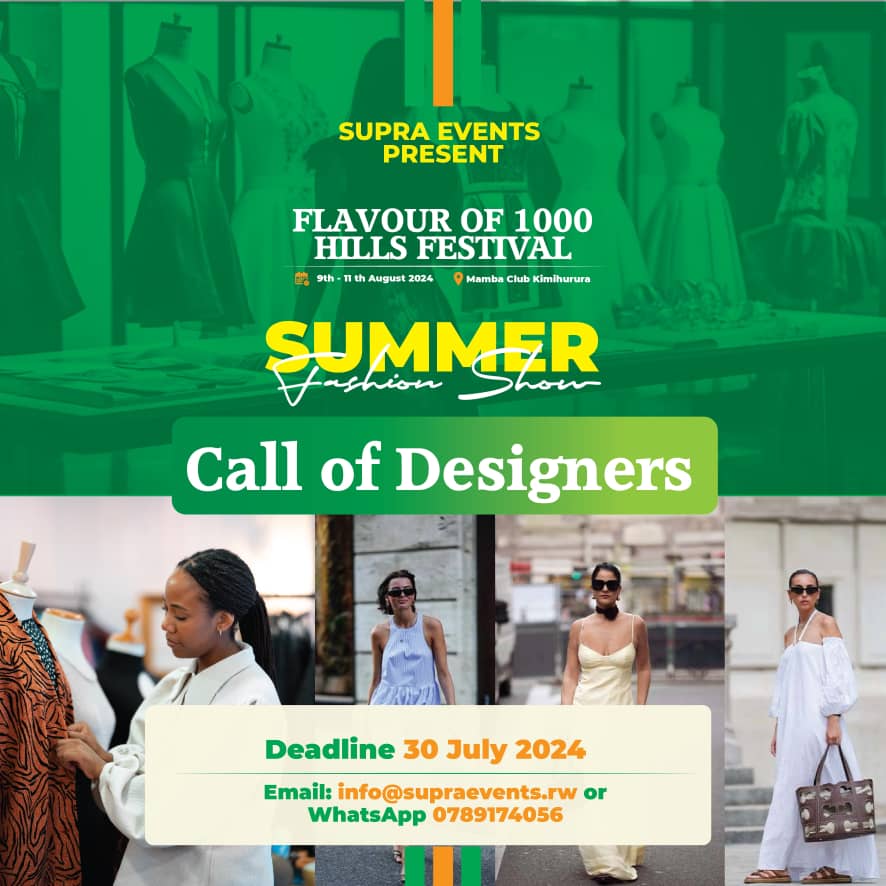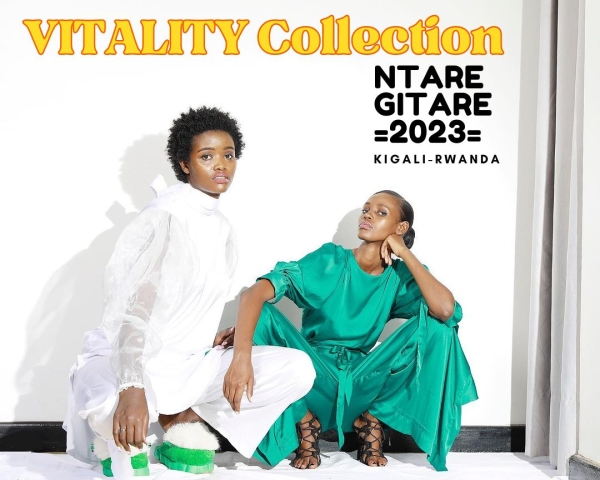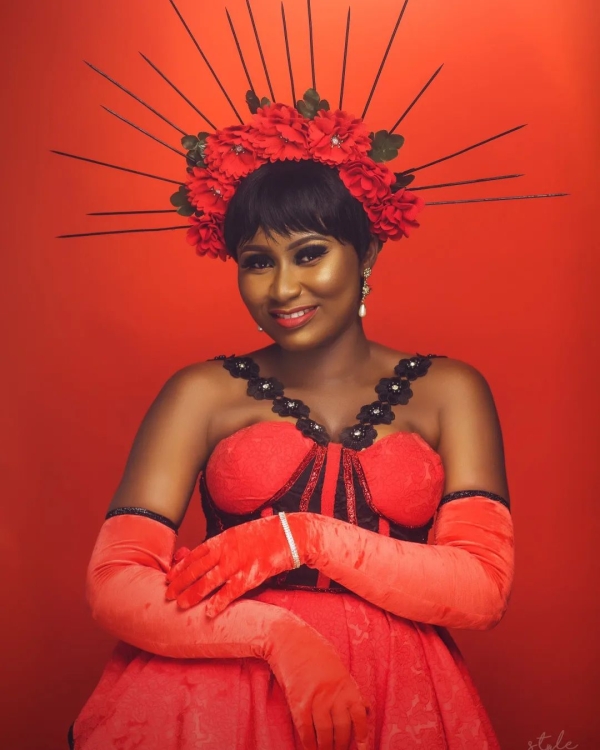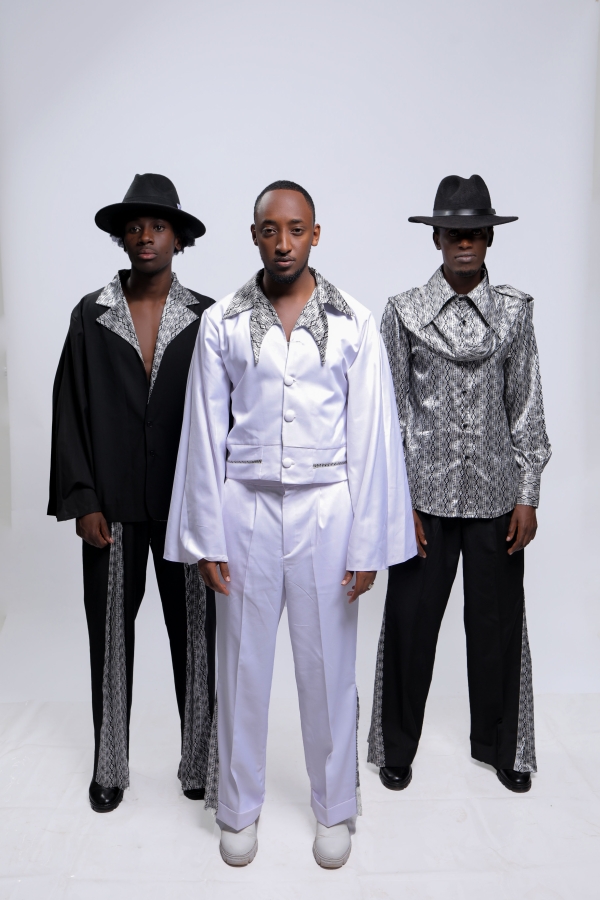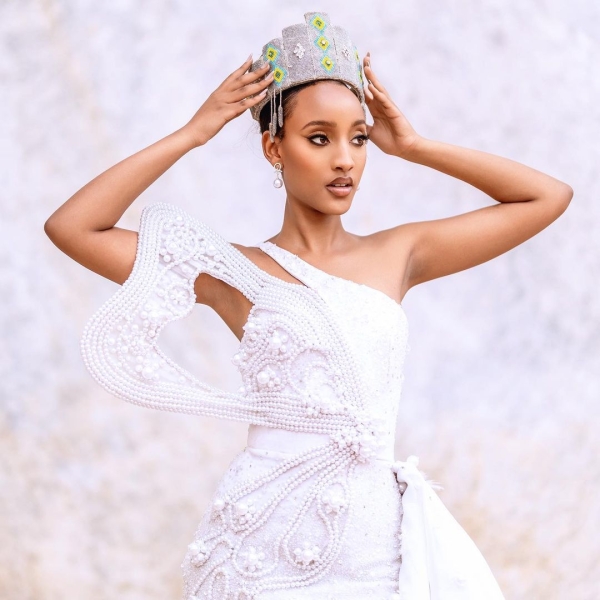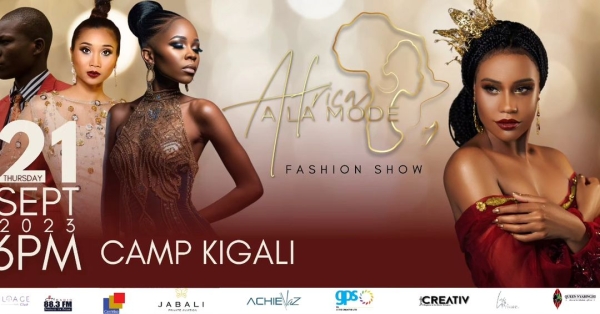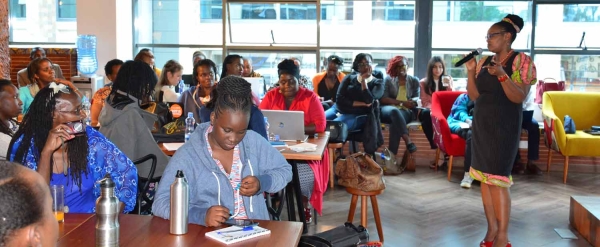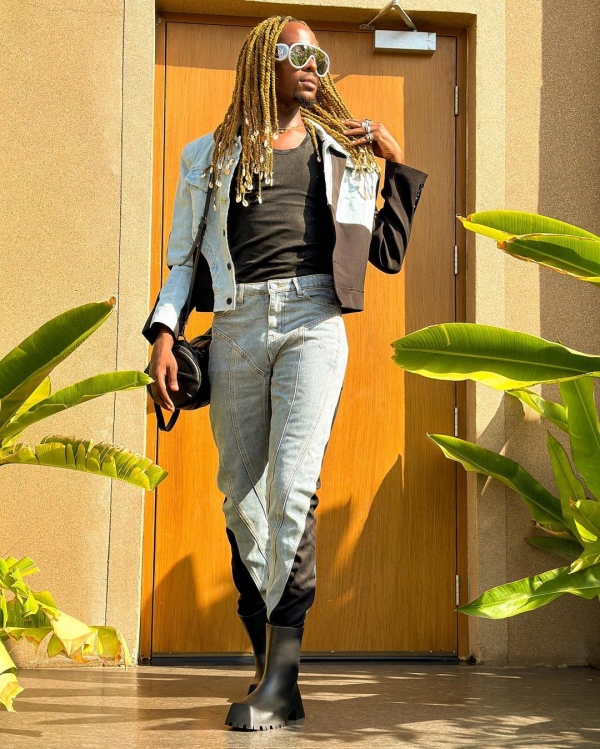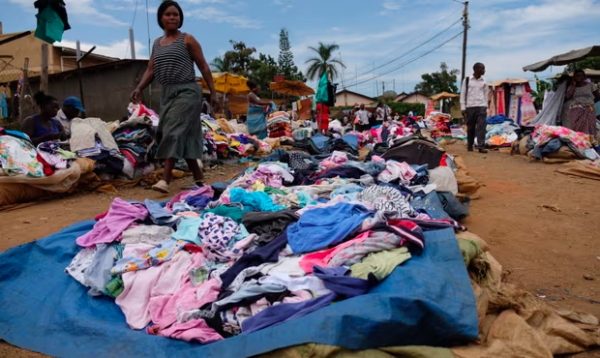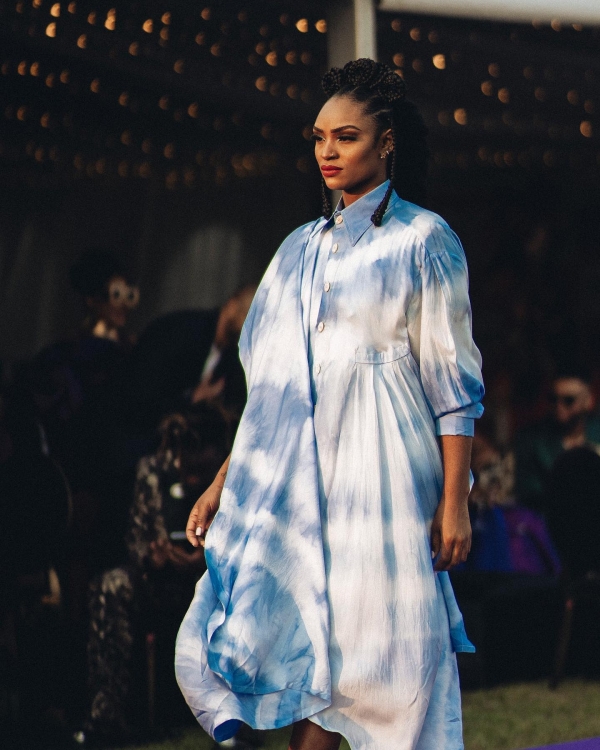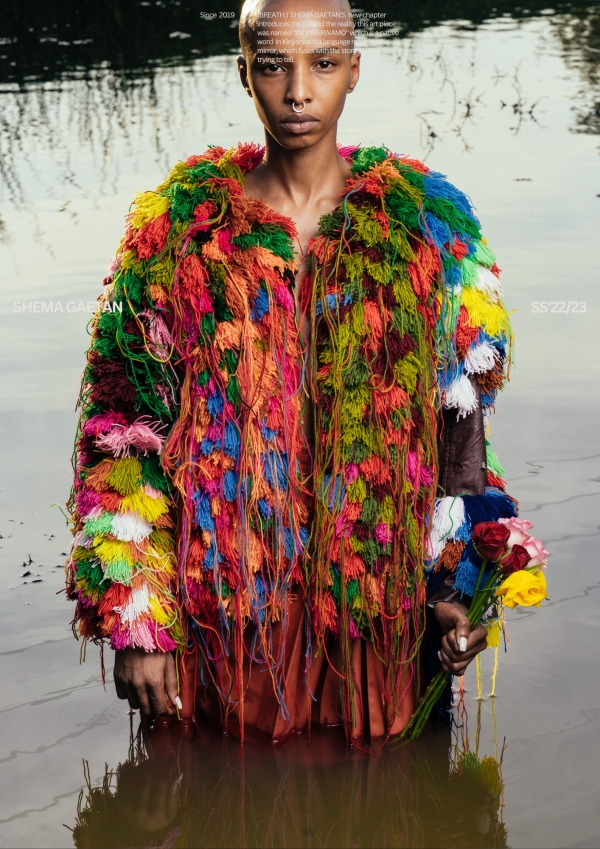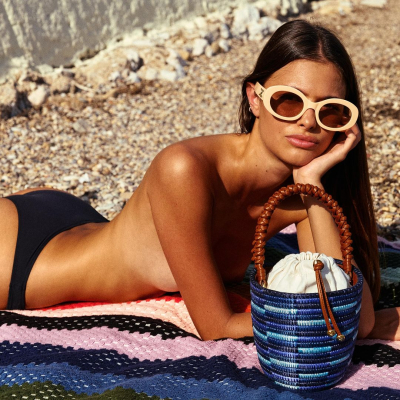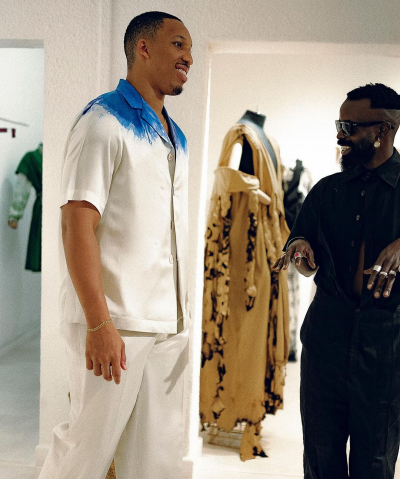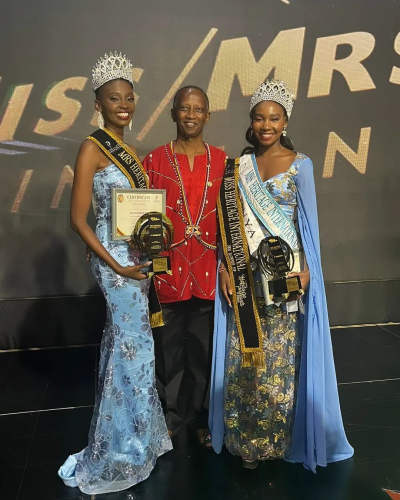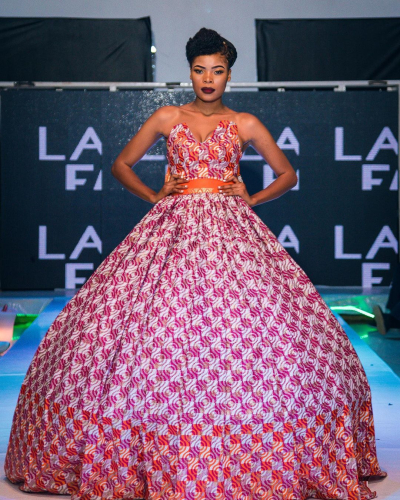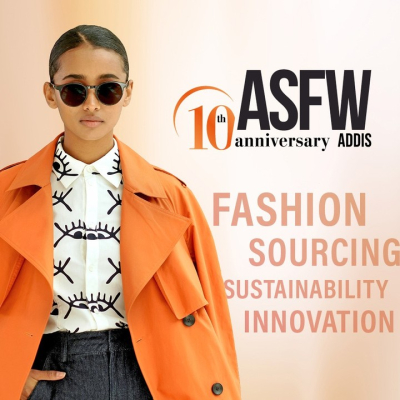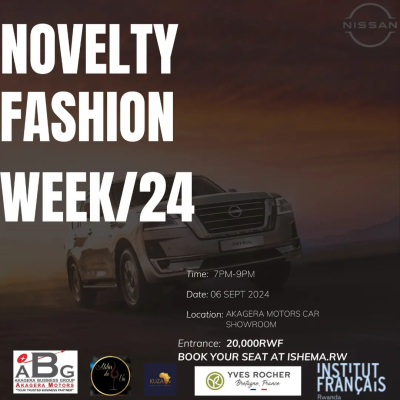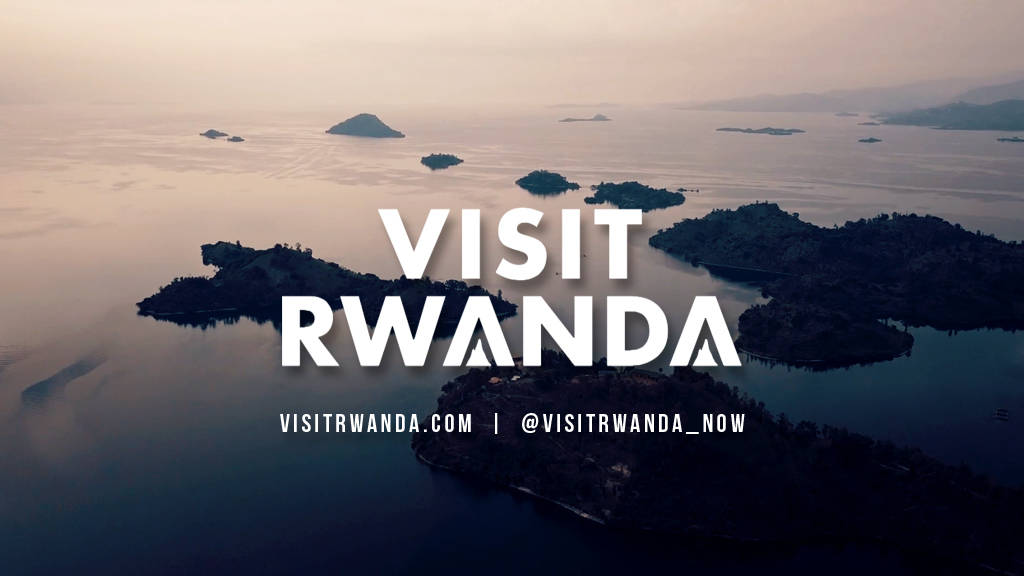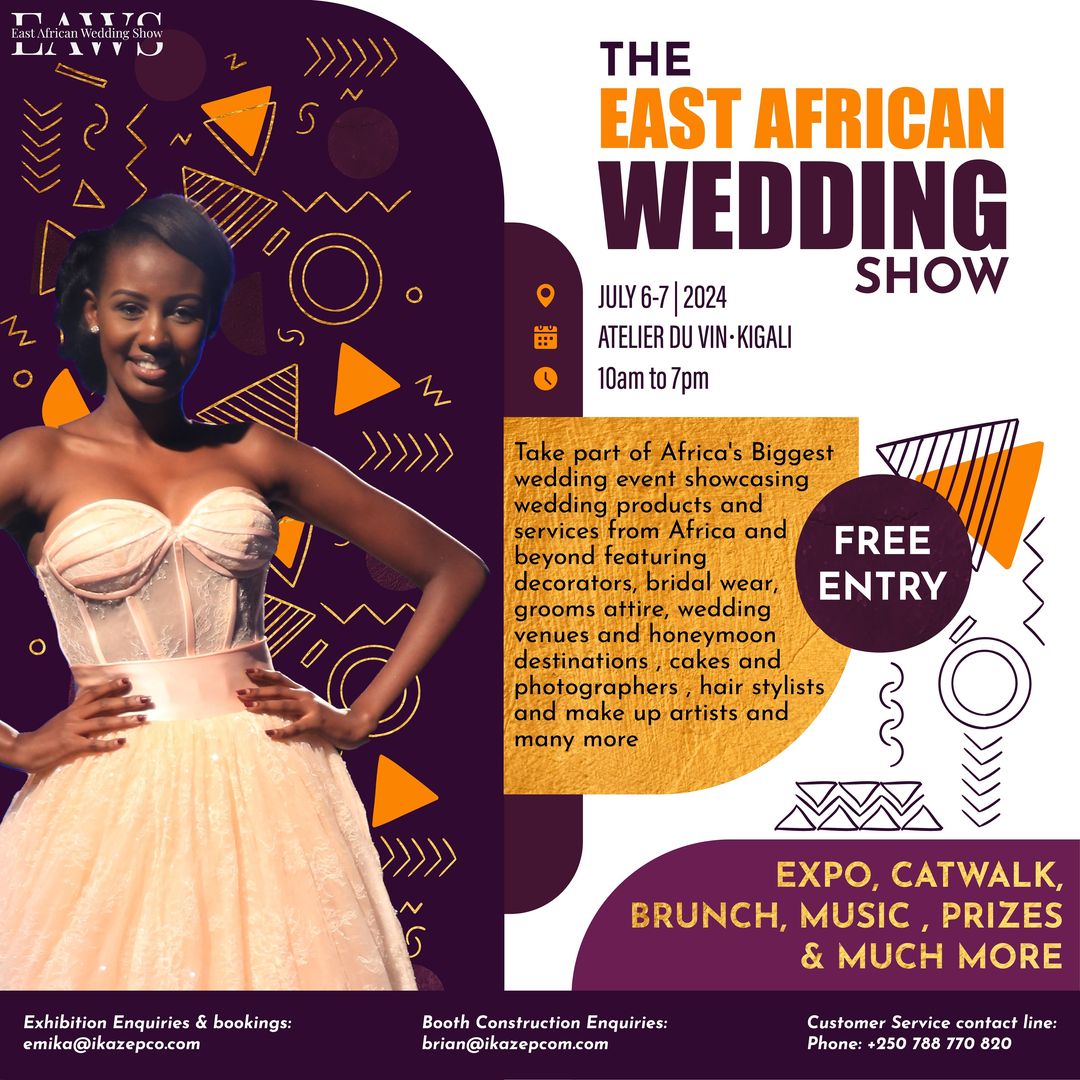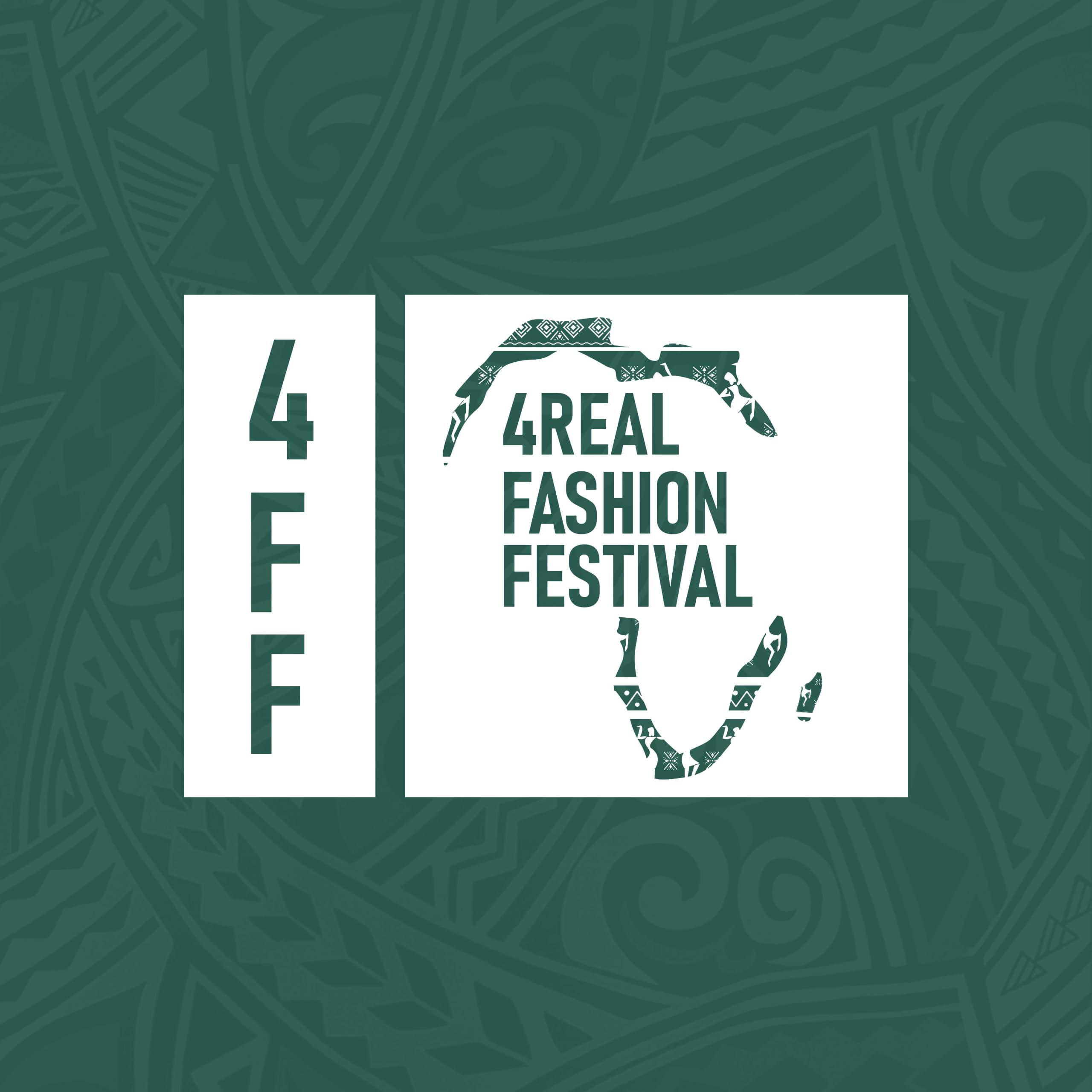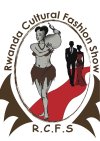
RCFS
"At NTARE GITARE we are very intentional with our designs, what kind of designs, what is it teaching the public, and what fabrics are we using like, for example, we focus on using fabrics that are eco friendly, namely Linen, cotton, and wool," said Ms. Angel Mutoni CEO & Creative Director of the NTARE GITARE
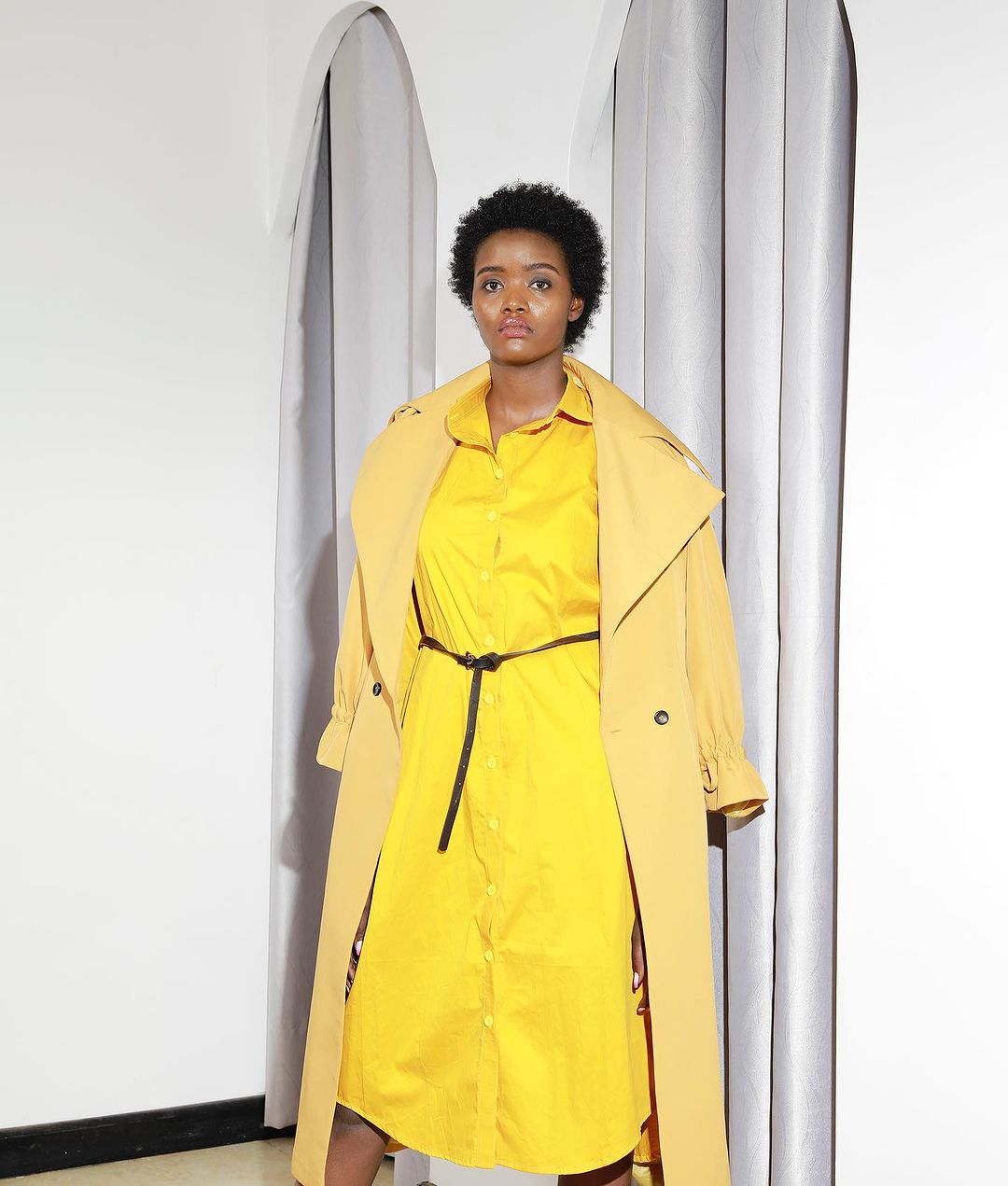 Made by NTARE GITARE clothing brand
Made by NTARE GITARE clothing brand
Ms Angel Mutoni is a Christian fashion designer/ Photographer based in Rwanda. Founded the NTARE GITARE, a clothing brand that started in 2020 during the COVID-19 pandemic in the days of lockdown. The brand specializes in luxury ready to wear for men and women. It focuses on craftsmanship, quality, innovation, and creativity.
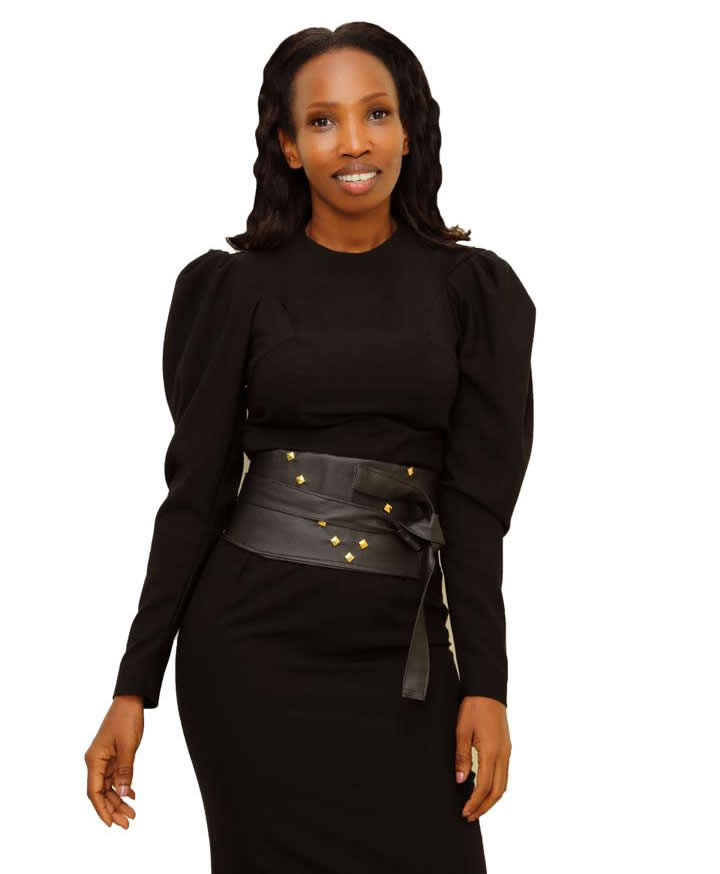
Ms. Angel Mutoni CEO & Creative Director of the NTARE GITARE
During the interview with the RCFS's Media, Ms Mutoni said that the origin of the idea of the NTARE GITARE clothing brand was built upon two facts: The first fact is to make products that are extremely intricate and pleasing to the eyes, unique and in colors that are complementary to human skin tones as far and as wide as that maybe.
 Miss Fiona Muthoni Naringwa wearing made by NTARE GITARE clothing brand
Miss Fiona Muthoni Naringwa wearing made by NTARE GITARE clothing brand
The second fact was for herself to quit wearing second hand clothes to wear made in Rwanda clothes which she said had become increasingly hard for her to find well tailored fitting quality outfits for work and also when attending different functions. Ms. Mutoni said that it was next to impossible to find something nice in the country and all of these made her dreams come into action of the NTARE GITARE luxury clothing brand was born.
"This was a problem I shared with many other people I talked to so it was that and the ban on second hand clothes which were always extremely expensive and yet worn out by other people, trashed them once they didn't want them anymore and then somehow brought to me to buy, never mind it was trash to begin, these I would say are the triggers that led me to start Ntare Gitare" said Ms Mutoni the Creative Director of NTARE GITARE
Journalist: What really inspired you to start the NTARE GITARE clothing brand?
During my high school days, I used to help my aunt to sell second hand clothes and I was always very curious about how they were made, I found so much joy in pairing outfits and altering their fitting and then hiking their prices as the pairing and a bit of changing how the fit suddenly changed and elevated the way they looked. I remember I used to draw wedding dresses as I remember vividly how I wanted them to look like. At that point I didn't know that there were people doing it as a career, I certainly wasn't trying to do it as a career, I didn't think about the production of my images they just looked visually intriguing to me and I loved being able to put my thoughts on paper where I could see them or read them in my spare time be it at school or elsewhere.
Also, I always felt uncomfortable wearing clothes which were previously owned by total strangers and were always on the lookout for the ones that looked brand new but from the second hand batch as I extremely hated the new Chinese ones where everyone else had a pair and which were of extremely low quality and in most cases extremely itchy.
With that I wanted to make outfits that showcase one's beauty and glory for myself and for professionals who are at the top of their game and find it hard to access well fitting outfits that are fashionable, People who appreciate brand new, quality clothing made well and by trustworthy companies, clothing which with my knowledge in the garment industry I would be proud to wear and sell.
 Made by NTARE GITARE clothing brand
Made by NTARE GITARE clothing brand
Journalist: What makes your fashion brand unique? What are your favorite colors?
At NTARE GITARE we are very intentional with our designs, what kind of designs, what is it teaching the public, and what fabrics are we using like for example we focus on using fabrics that are eco friendly, namely Linen, cotton, and wool. These are fabrics backed and recommended by the Bible on the side of Linen it talks about its healing properties, on the side of wool, Its ability to hold shape and keep you warm and cotton is breathable and moisture wicking which helps make you comfortable and prevent you from skin irritation that's why children should wear nothing but the above mentioned fabric.
Notwithstanding that, there are other fine fabrics but those should be left for older generations At least 20 years and above, and even then it's recommended by researchers to have 80% of your wardrobe should consist of the above mentioned fabrics as the rest are harmful to the skin and others are detrimental to the environment with the exception of few. Our brand makes clothes that compliment and revitalize your health at the same time keeping you stylish and classic with elements that are futuristic.
Whoop! My favorite colors? that's a hard one to answer. I see beauty everywhere and in all created things, I love color or the absence of it, am not sure I can pick just one color. Oh no!
 Made by NTARE GITARE clothing brand
Made by NTARE GITARE clothing brand
Journalist: What is your new Collection the VITALITY about?
Yes, we have a new collection out, inspired by love, Work, and excellence. We've called this collection VITALITY as it's filled with pieces that are made with exceptional craftsmanship, using environmentally friendly quality fabrics that last in your wardrobe, pieces you can style and restyle year in and year out and look different every time.
We have both our Women's and men's wear collection in our recently opened Kigali store already and we hope to invite the friends and family of the brand, people who have supported us from day one and continue to do so, to celebrate this milestone as we officially open our brand new and very first flagship store, we are so thankful to God.
 Made by NTARE GITARE clothing brand
Made by NTARE GITARE clothing brand
Journalist: How do you see the fashion industry in Rwanda?
From the time we are born, someone is pioneering and making decisions about what we should be dressed in, it only makes sense that someone is a local person familiar with our climate. Our culture and our resources In that light, fashion is growing as designers have taken the call to be different and original in producing our products. On the side of consumers some people have been ready for locally made for some time now while others are still learning and getting used to the fact that in Rwanda, locally made clothing can be exceptional and excellently made.
It Can be of good quality and it can compete with say European made or American made or Asian made. We are changing mindsets although we need more awareness of the craft, it's how we shape the younger generation showing them that there's pride in this line of work, that fashion is an exceptional career, it can pay well, it allows you to broaden your creativity and can get you and your family out of poverty. One of my goals is to give moral and economic dignity to these kinds of crafts.
 Made by NTARE GITARE clothing brand
Made by NTARE GITARE clothing brand
Journalist: But some people say that made in Rwanda is poorly designed and no income for fashion designers.
Some of the people who say that fashion is a poor man's job need to seriously evaluate how much money they spend on clothing yearly in contrast to other areas of their lives not forgetting how many times they've lost credibility because of how badly they've dressed. Someone worked hard to devalue the fashion industry in Africa like the other areas that generate a considerable revenue for any economy because he needed a market for what he doesn't need anymore but encouraged, even forced cotton farming. Meanwhile, elsewhere, it's a multibillion dollar industry that is so revered you don't just get in anyhow. It's our responsibility to correct false narratives about fashion and other jobs which are important in building our society. The time is far spent to continue to fuel such cruel lies.
There's a culture, held by the Jewish people, of buying from their own people even if the product is not fantastic. They will tell you to improve here and there but still buy from you so that you get the means to improve. We all know the results speak for themselves when it comes to the Jewish people.
 Made by NTARE GITARE clothing brand
Made by NTARE GITARE clothing brand
Journalist: Tell us, how do you see local fashion designers' collaboration?
As far as working together in terms of designing together, I haven't seen it really. In terms of fashion shows, there's just a lot of small groups that aim to do the same. I hope in the future, designers will have a central platform or two at most that is not about 5 or 10 local designers who are not about growing just themselves and their small group but one that can host all talented designers who have proven themselves with their work without bias.
One that will continue to grow by adding in newcomers both local and international to showcase throughout an entire week basically from Monday through Saturday, have different hours and locations for those who can afford it but in that chosen same week very much like elsewhere in the fashion capitals like Milan, Paris, New York and Japan. With a regulated standard; 1. New designers will put in effort to be recognized by this platform, 2. people will be excited to attend fashion shows knowing that their time and money is not wasted. And 3. This will build the credibility of the fashion industry as a whole, from my point of view.
 Made by NTARE GITARE clothing brand
Made by NTARE GITARE clothing brand
Journalist: Has the NTARE GITARE organized a fashion show yet?
We haven't organized one yet as a fashion house but we are planning to have 2 fashion shows yearly depending on how people continue to receive and support our work.
Journalist: Any message you have for other local fashion designers in Rwanda?
You have to be really passionate about fashion and stay original. Fashion is a dignified vocation from the ages you are not just now inventing fashion, it's been part of life since Adam and Eve. Don't be swayed by reprobate agendas, don't believe everything you hear and see, learn from those who did what you are doing before you, have mentors that you can look up to, and mentees that you can pass the knowledge and skills you've acquired to, trust in your vision, aim for the best and above all, trust God.
 Made by NTARE GITARE clothing brand
Made by NTARE GITARE clothing brand
So far, the NTARE GITARE clothing brand participated in Mercedes Benz Fashion Week. It is a member of the Rwandan fashion designer's association. The shop is located in Kimihurura -Gishushu, KN 5, KK 226 airport RD, Kigali.
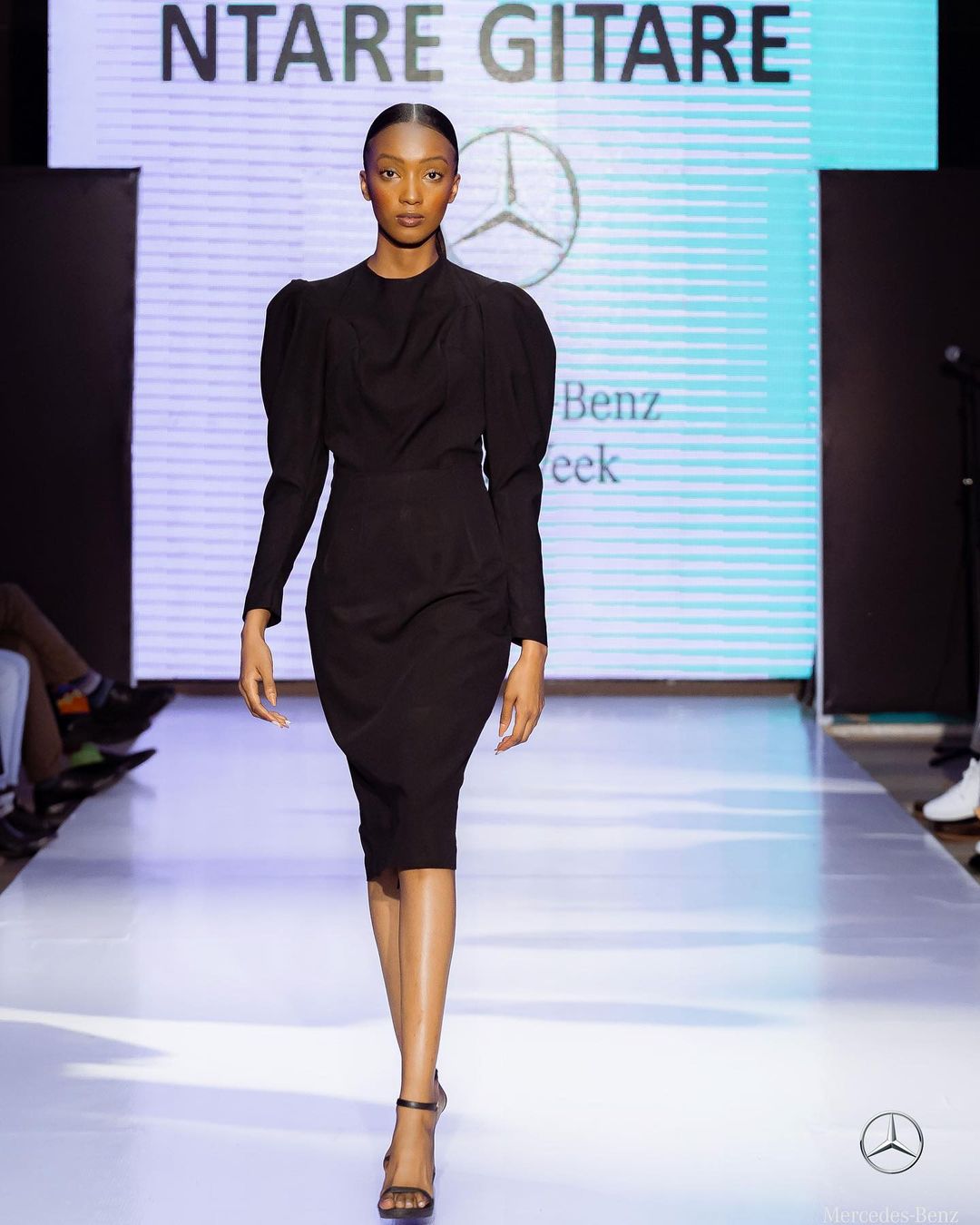
Made by NTARE GITARE showcased in the Mercedes Benz Kigali Fashion Week 2022
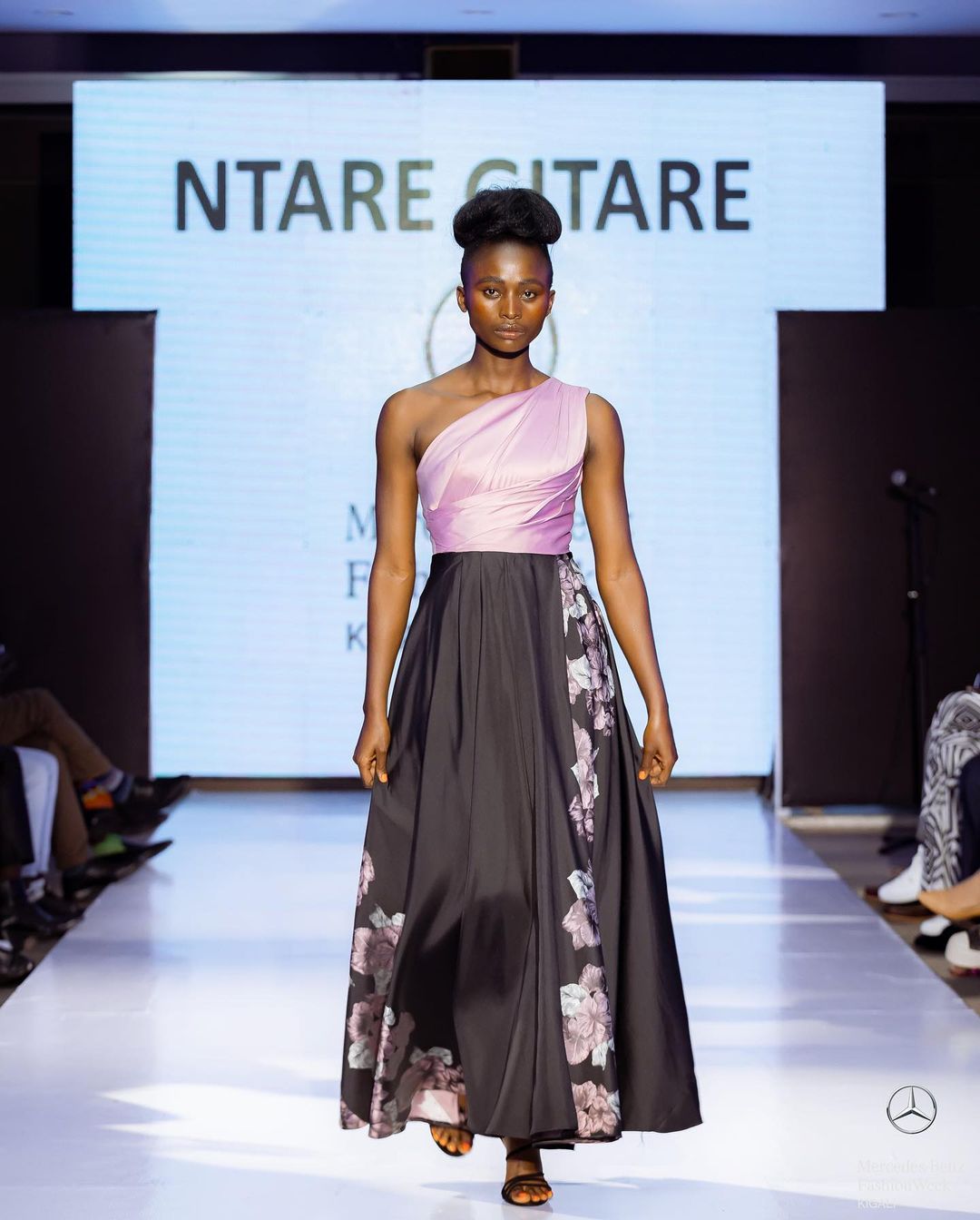 Made by NTARE GITARE showcased in the Mercedes Benz Kigali Fashion Week 2022
Made by NTARE GITARE showcased in the Mercedes Benz Kigali Fashion Week 2022
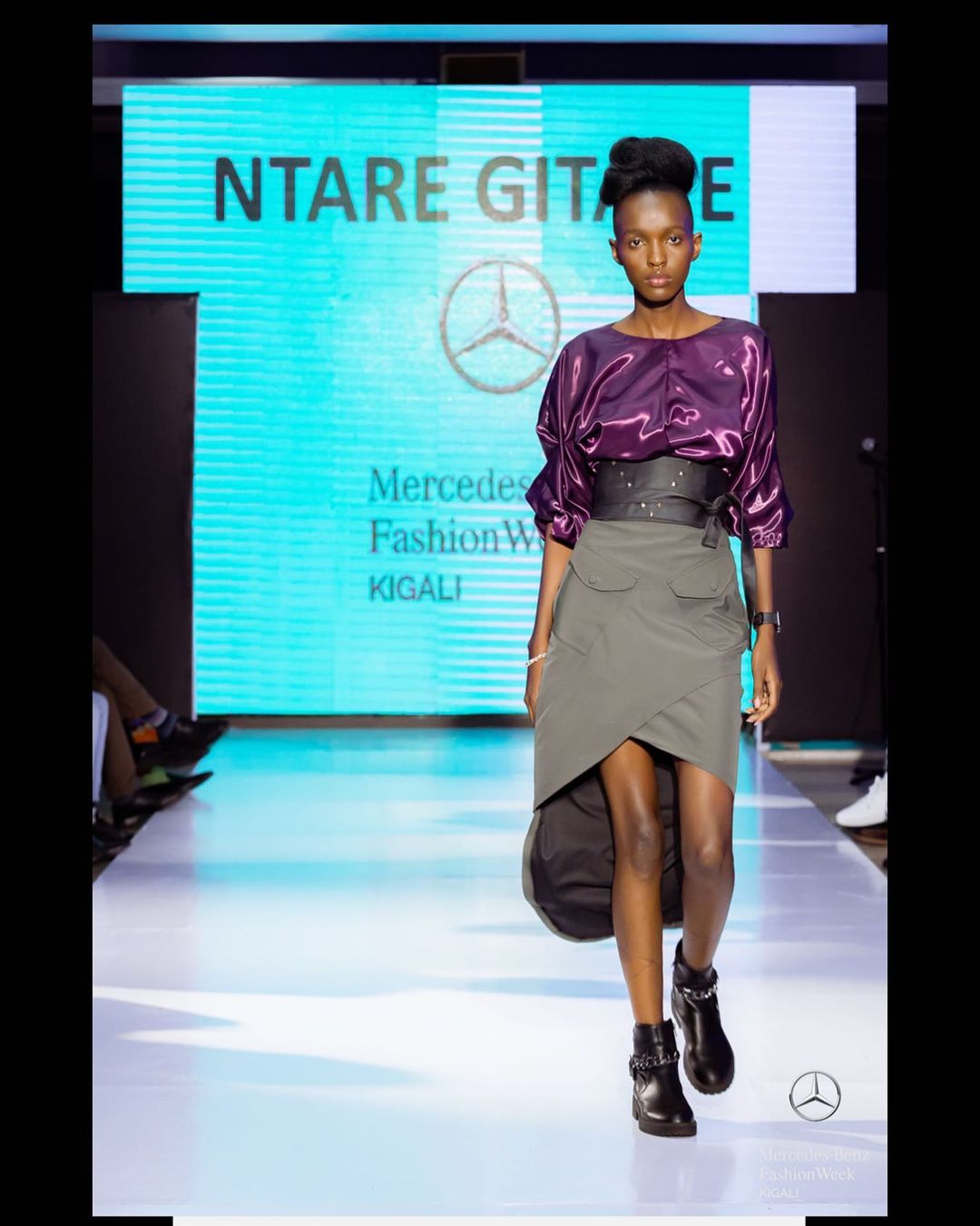 Made by NTARE GITARE showcased in the Mercedes Benz Kigali Fashion Week 2022
Made by NTARE GITARE showcased in the Mercedes Benz Kigali Fashion Week 2022
When Nigerian designer Gift Raji found out that her clothing and accessory designs had won Fashionomics Africa’s(link is external) $3,000 prize for sustainable fashion, it wasn’t only the cash prize that had her excited. The founder and creative director of Lagos-based brand Lohije said she saw the win as an opportunity to bring Africa’s sustainable styles to the world.
“It’s more than money, it is about the mentorship. When I learned that I won, I saw possibilities – that Fashionomics Africa will open up possibilities for discovering more textiles here in Africa, that we can produce and export,” Raji said about the African Development Bank program.

Designs Made by LOHIJE
“The Bank has more strength and connections that expand beyond the shores of Africa – they will be key to connect to those possibilities,” she added.
The Fashionomics Africa online contest honors African fashion brands working to change how fashion is produced, bought, used, and recycled, to encourage more sustainable consumer behavior. The competition panel comprised an African Development Bank representative, competition collaborators the United Nations Environment Program, strategic communications agency BPCM, Parsons School of Design, and the Ellen MacArthur Foundation, who collectively reviewed 199 entries from 33 African countries, then selected three finalists: Reform Studio (Egypt), Lohije (Nigeria) and Diakwu Cloth (Nigeria). The public chose Lohije as the winner via an online vote on FashionomicsAfrica.org earlier this year.
The judges noted Lohije’s use of biodegradable buttons made from discarded coconut shells instead of plastic, and the weaving of fibers into headpieces made from the water hyacinth plant – an invasive species that clogs waterways and threatens aquatic life. They said these are examples of the sustainable practices that took the boutique design firm into the final round. The public agreed – Lohije won the online vote by a 13% margin.
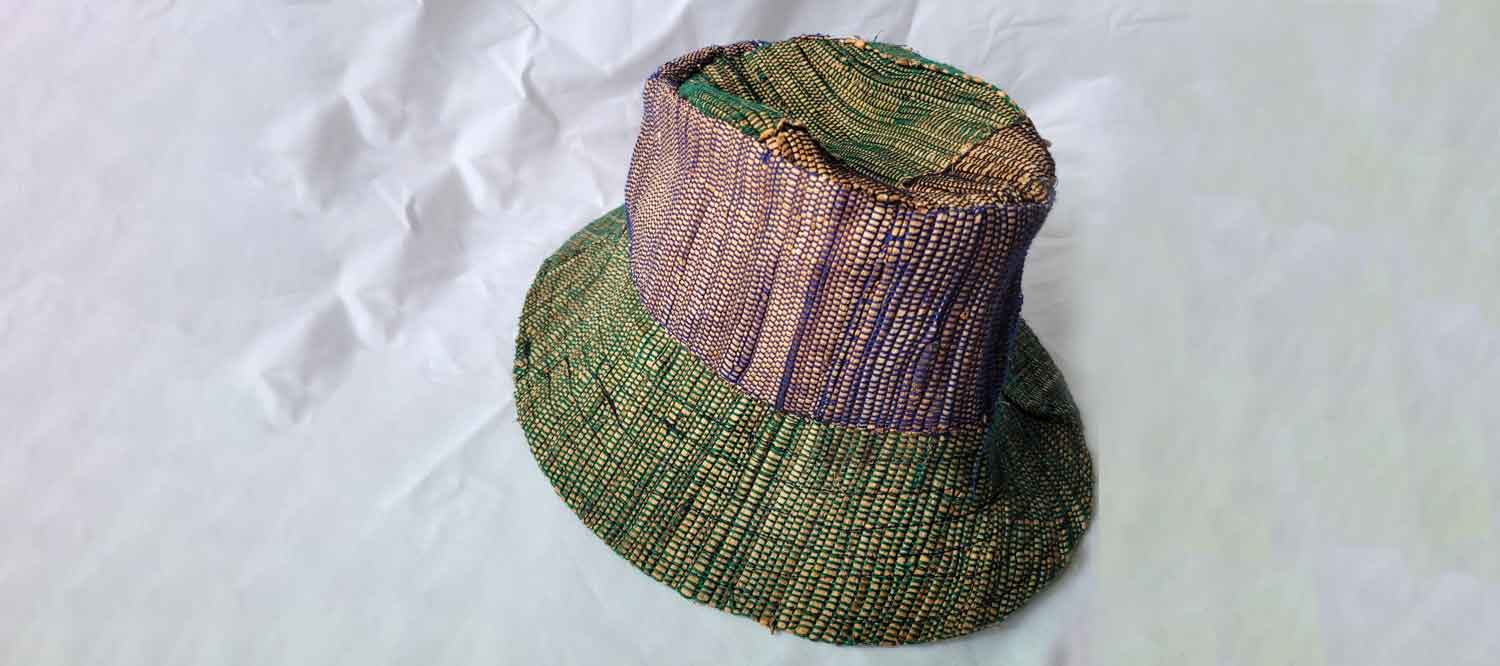 This Lohije hat is partially made from dried fibers from the water hyacinth plant, an invasive species that blocks sunlight and reduces oxygen levels in Lagos riverine areas, posing a serious threat to marine life.
This Lohije hat is partially made from dried fibers from the water hyacinth plant, an invasive species that blocks sunlight and reduces oxygen levels in Lagos riverine areas, posing a serious threat to marine life.
“The competition offers some insight into the creativity of Africa’s fashion industry players to combine natural resources and ingenuity to make environmentally conscious decisions. Fashionomics Africa’s objective is to find equally innovative ways to support and assist them,” said Amel Hamza, Division Manager at the Bank’s Gender, Women, and Civil Society Department.
Fashionomics Africa presented a $3,000 cash prize to Lohije, and $2,000 each to the other competition finalists. Lohije will also receive a new branding package, networking, and mentoring opportunities from the competition collaborators, as well as media opportunities via the Bank.
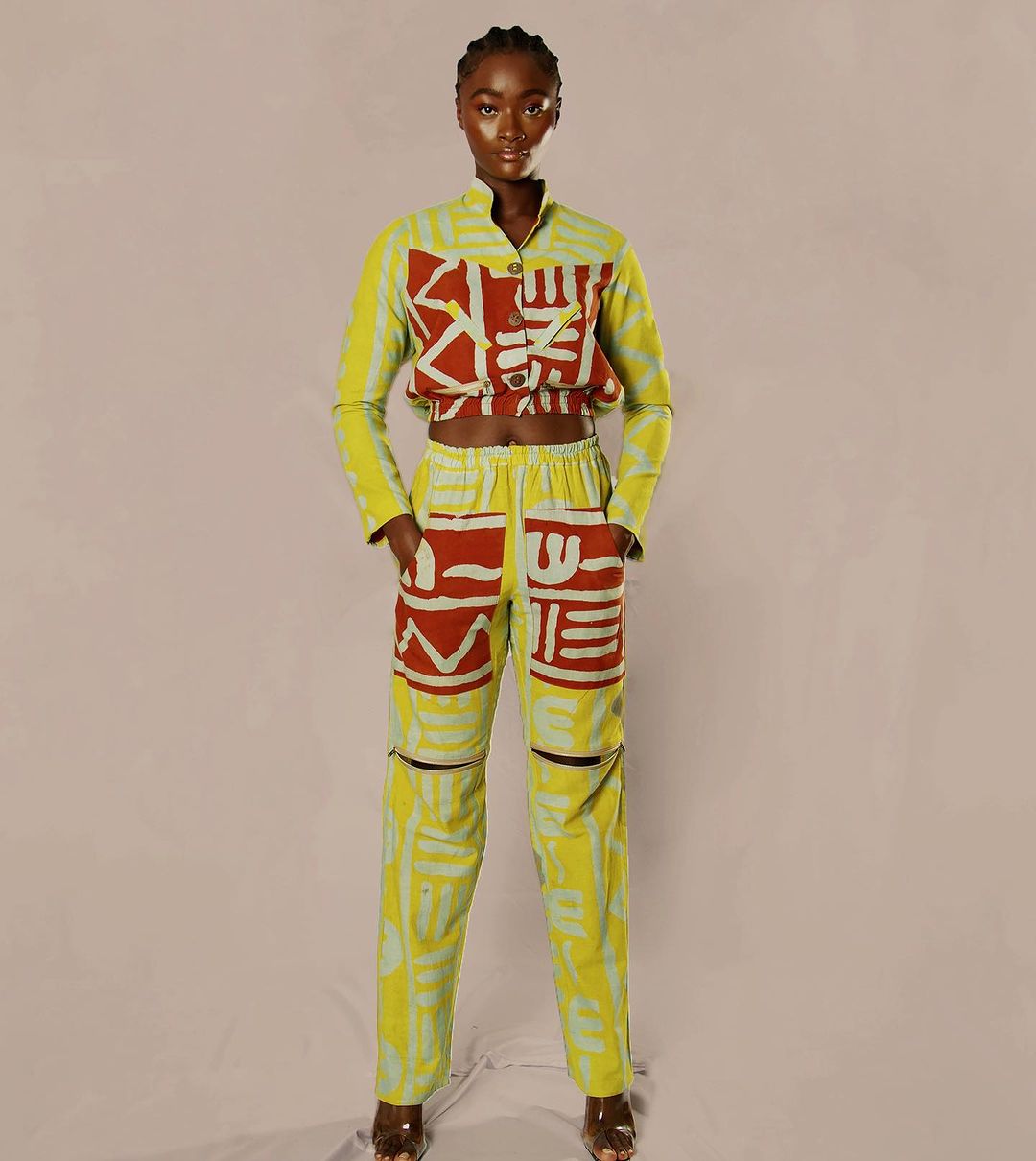 Designs Made by LOHIJE
Designs Made by LOHIJE
“We feel honored to be the winners…It has encouraged me and the team to keep believing in the brand’s vision of being at the forefront of the global fashion community, celebrating African craft and her artisans through our artistically curated garments, and upholding the basis of conscious fashion while at it,” Raji said.
Raji said Lohije would use about half of the prize funds to purchase industrial-quality machines to reinforce garment seams, buttons, and components, relocate to larger production facilities and generators for more reliable power supply. The remainder will go toward enhancing marketing and communication efforts, and researching and locally sourcing sustainable materials, including hand-woven, eco-friendly, biodegradable fabrics created in communities representing the diversity of Nigeria’s cultures.
The Ellen MacArthur Foundation has invited Lohije and Diawku Cloth to Kigali to participate in the Foundation’s four-day learning, networking and site visit workshop in October, to explore applications of the circular economy in Africa. The circular economy is generally defined as a model of production and consumption that involves sharing, leasing, reusing, repairing, refurbishing and recycling existing materials and products.
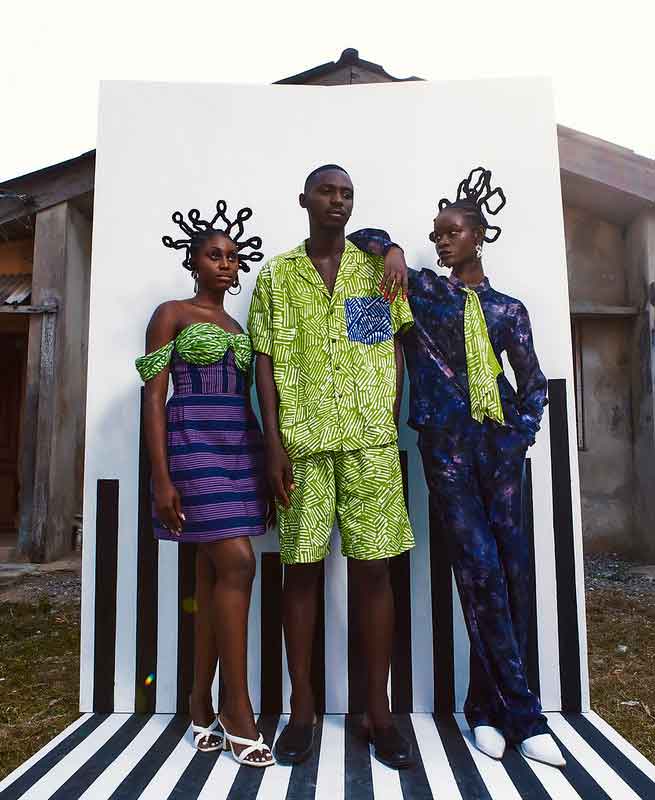 Designs Made by LOHIJE
Designs Made by LOHIJE
“This initiative reminded us and our collaborators of the importance of continuing our work towards incubating African fashion businesses at their early stages and assisting them in implementing more circular economy actions in their business models through this process,” said Emanuela Gregorio, Fashionomics Africa Coordinator and economist at the African Development Bank.
“Selecting this year’s winner for the Fashionomics Africa contest was a complicated task, given the extremely high quality of the submissions. Lohije’s thoughtful approach to material selection, local inspiration and sustainable practices makes them an amazing winner for this year’s edition,” said Francois Souchet, Global Head of Sustainability and Impact at BPCM.
To learn more about the sustainability and circular aspects of Lohije, Diakwu Cloth and Reform Studios, view our photo gallery(link is external).
Fashionomics Africa(link is external) is an initiative of the African Development Bank to increase Africa’s participation in the global textile and fashion industry value chains – with an emphasis on women and youth.
To learn more about the Fashionomics Africa online competition, click here(link is external).
UMUHETO Fashion House was founded in 2020 by Olvier Harerimana AKA Talento UMUHETO. Mr Talento is a talented upcoming fashion designer who has been showcasing unique creations and his brand is inspired by culture and environment. Different fashion lovers in Kigali started to give him attention after styling well-known Rwandan singer, songwriter, actor, and performing artist Man Martin, in his recent concert.
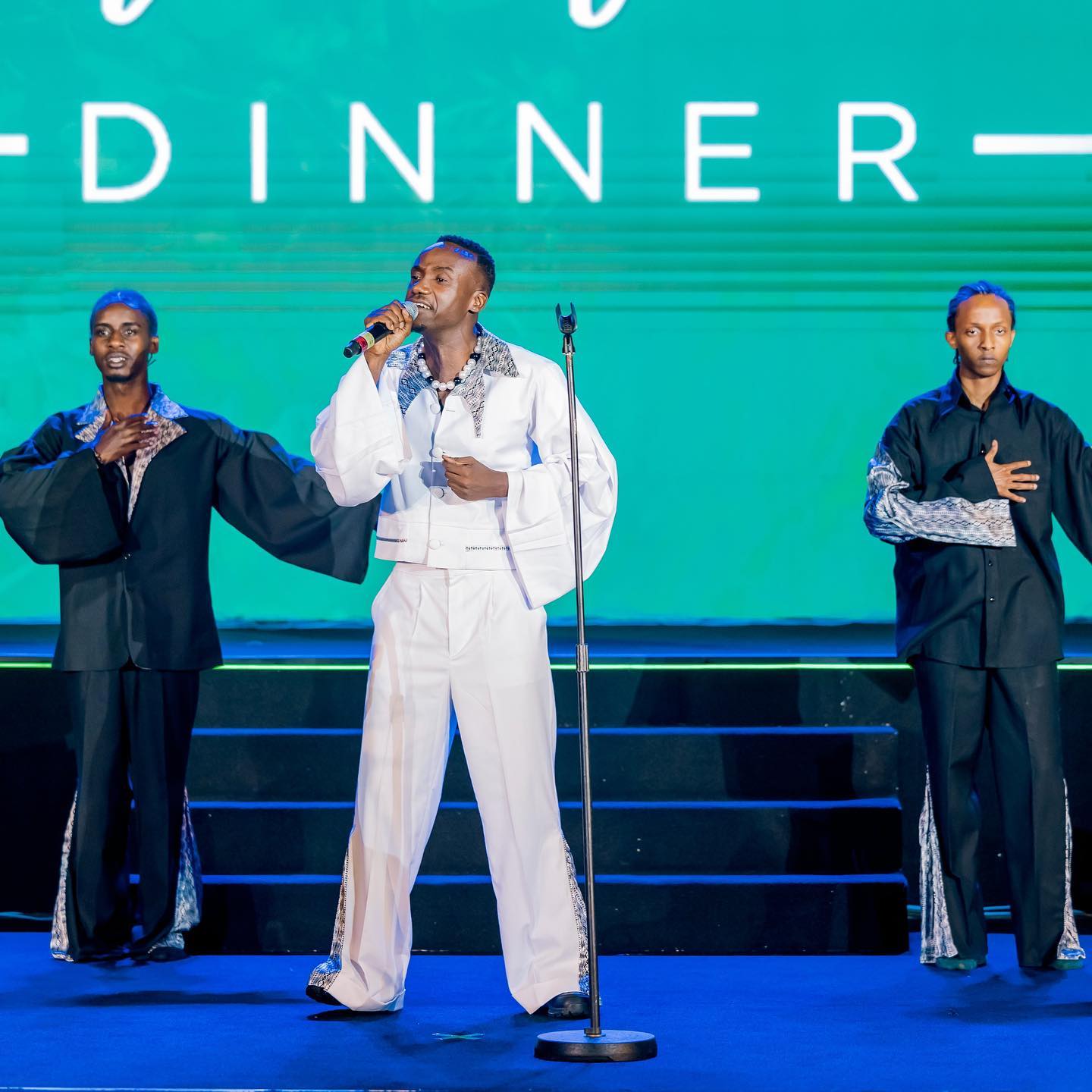 Man Martin Rwandan singer, songwriter, actor, and performing artist. in his recent concert- Kigali, in Made by UMUHETO Fashion House
Man Martin Rwandan singer, songwriter, actor, and performing artist. in his recent concert- Kigali, in Made by UMUHETO Fashion House
“UMUHETO fashion house is a brand that is built from the inspiration of our culture as Rwandans and as Africans as well as the environment around us. We want to create a variety of designs so that when a client comes in our shop is able to find what she or he wants” said Talento UMUHETO.
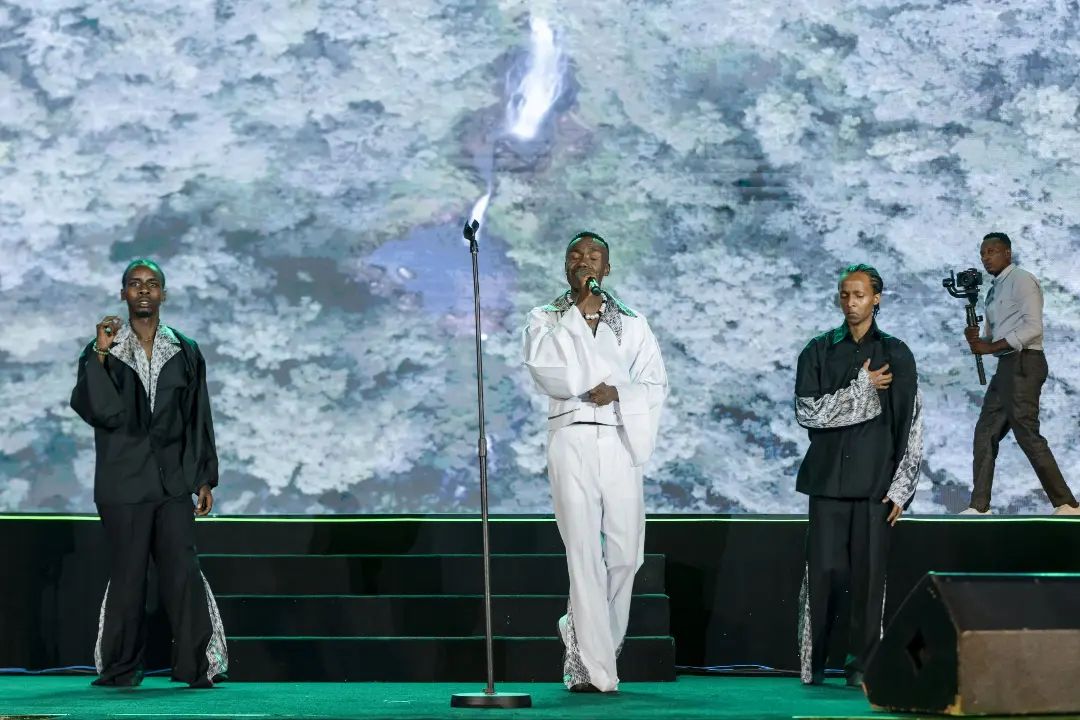 Man Martin Rwandan singer, songwriter, actor, and performing artist. in his recent concert- Kigali, in Made by UMUHETO Fashion House
Man Martin Rwandan singer, songwriter, actor, and performing artist. in his recent concert- Kigali, in Made by UMUHETO Fashion House
“We send a message to our community through the clothes and styles we make. We want to also inspire the community around especially when they see our designs. My colors are black, green and brown. We mix them and we also allow our clients to choose which color combinations they want” Added Talento UMUHETO
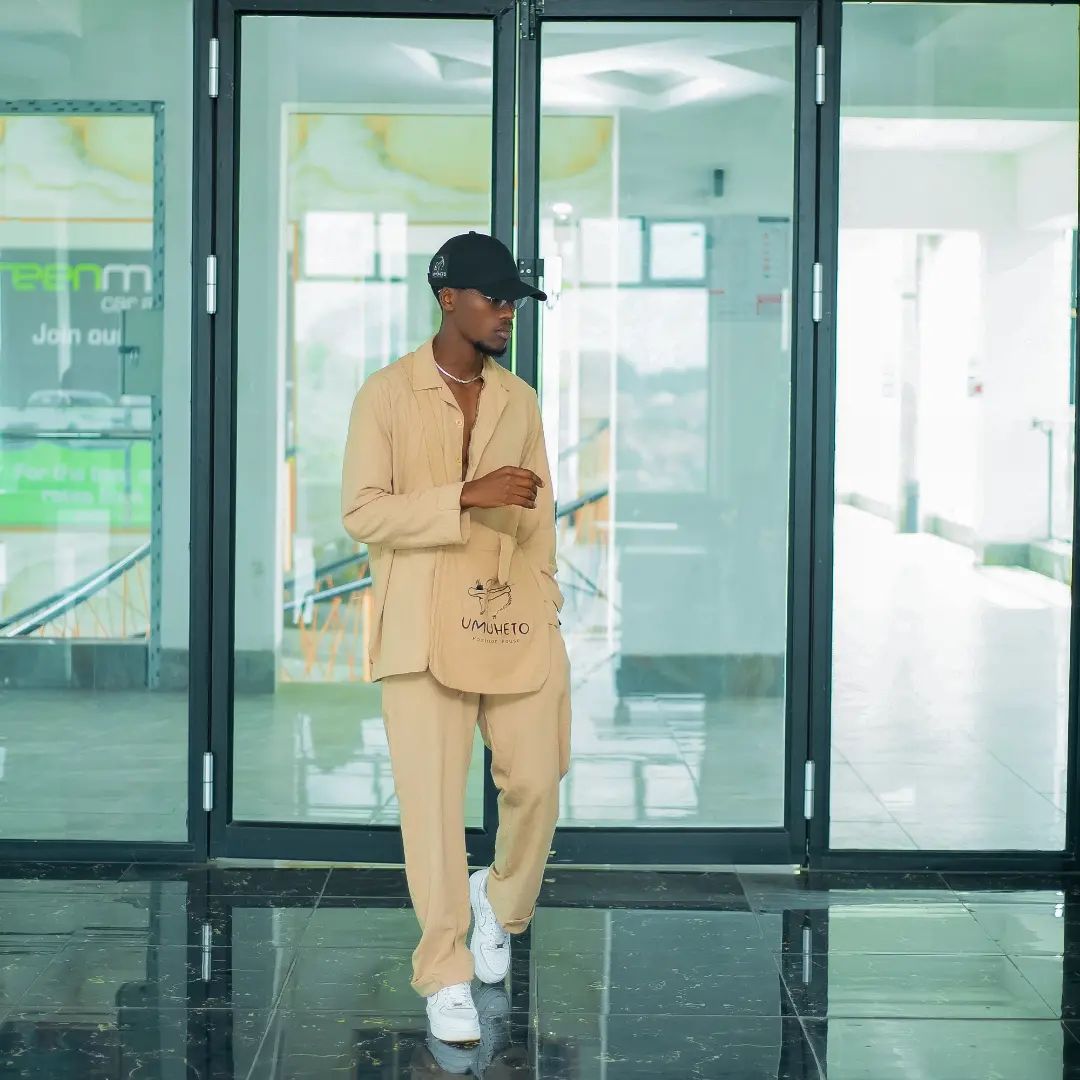 Mr. Talento UMUHETO , the CEO and Creative Director of the UMUHETO Fashion House in his designs
Mr. Talento UMUHETO , the CEO and Creative Director of the UMUHETO Fashion House in his designs
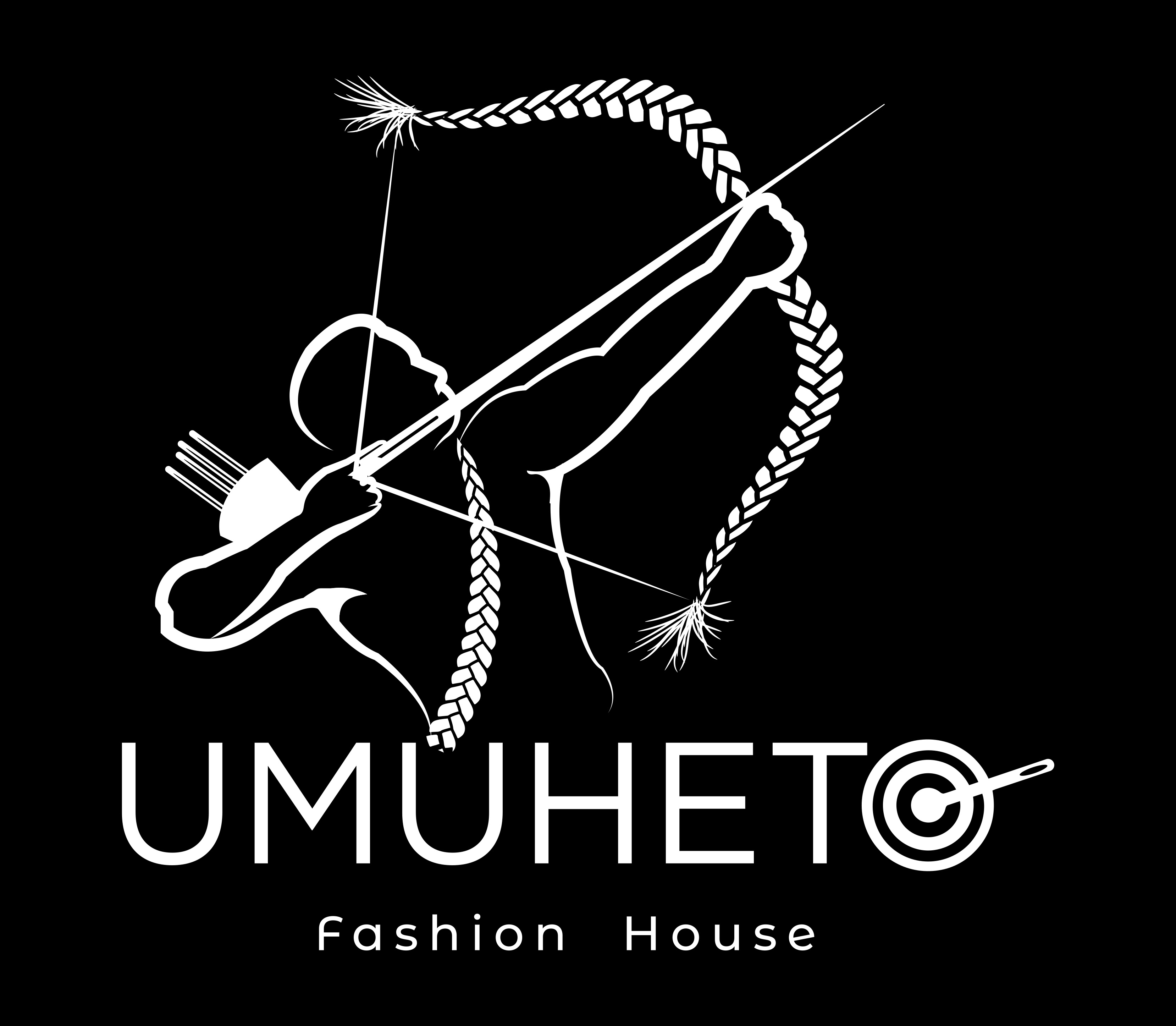 Logo of the UMUHETO Fashion House brand
Logo of the UMUHETO Fashion House brand
Mr. Talento UMUHETO sees the Rwanda fashion industry developing.
“The fashion industry is developing faster, there are many new fashion brands that are establishing and they have talent and unique fashion designs. Rwandans in general value made-in-Rwanda products including the clothes we make. You can see that from the Government officials everyone is supporting local fashion designers. They are wearing made in Rwanda. I see that there is hope for the future when our fashion industry will be competing on the international markets” said Talento UMUHETO
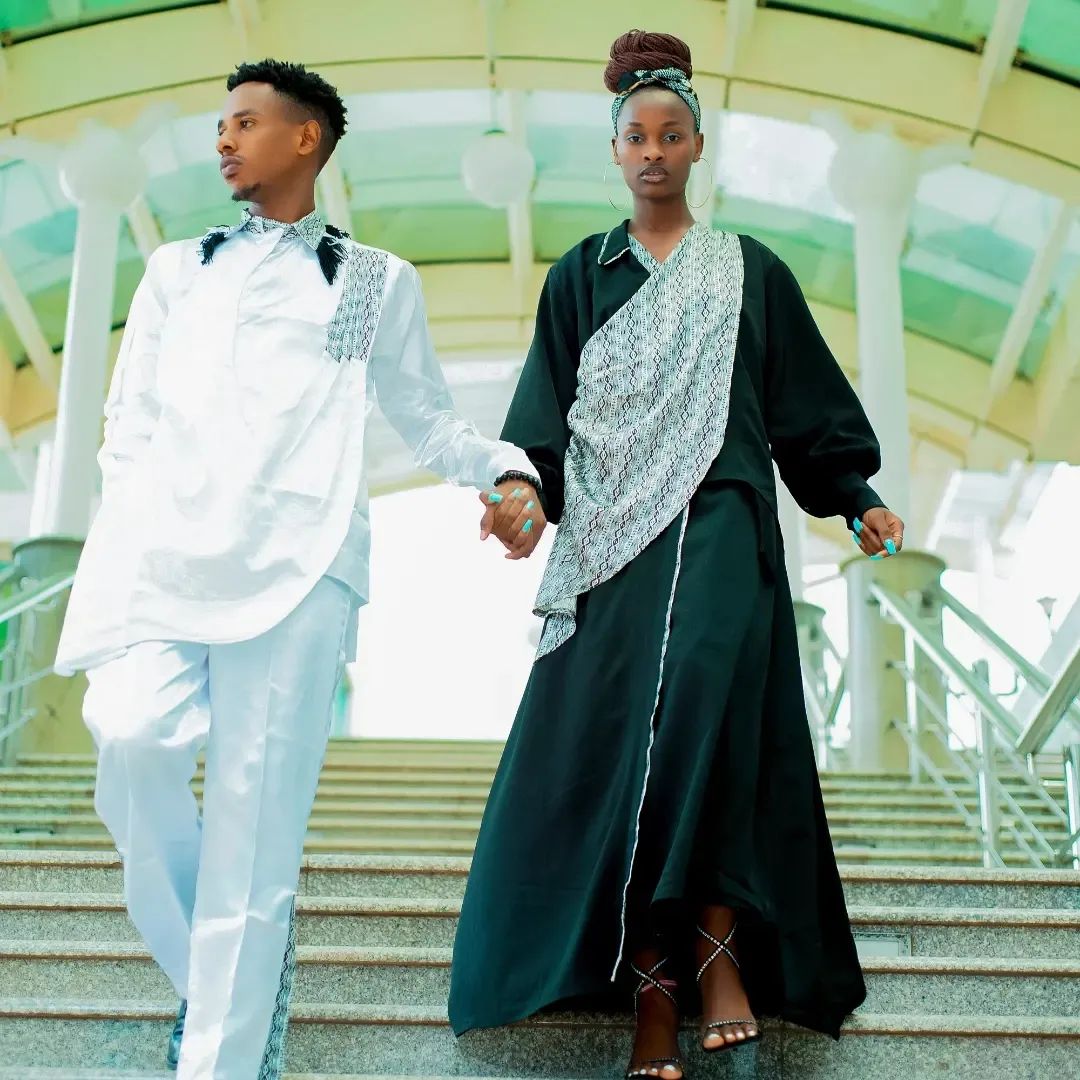 Made by UMUHETO Fashion House
Made by UMUHETO Fashion House
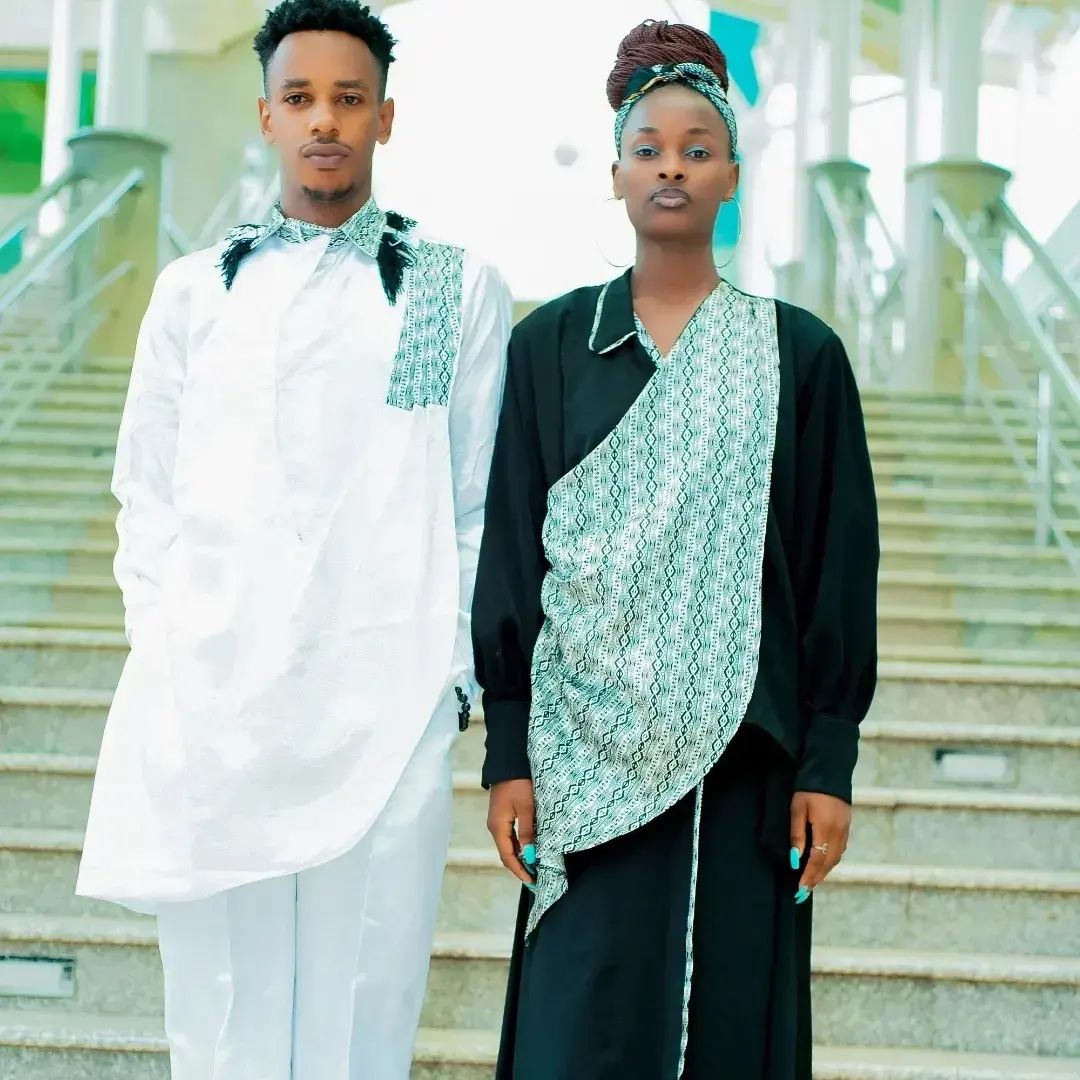 Made by UMUHETO Fashion House
Made by UMUHETO Fashion House
Even though Mr. Talento UMUHETO believes that the Rwanda fashion industry is going to reach far to compete in the international markets. He still sees a slow collaboration between known fashion brands and established, with young and upcoming fashion designers.
“ I can say that there is a collaboration among fashion designers but those who are on the same level. Upcoming fashion designers, we are in collaboration. But our sisters and brothers who have been here more than 7 to 10 years don’t collaborate. They don’t support their young and upcoming fashion designers. We need a platform that can bring together all established fashion designers and upcoming fashion designers. This will help to build a strong fashion industry where unity can be seen even among fashion entrepreneurs” Said Talento UMUHETO
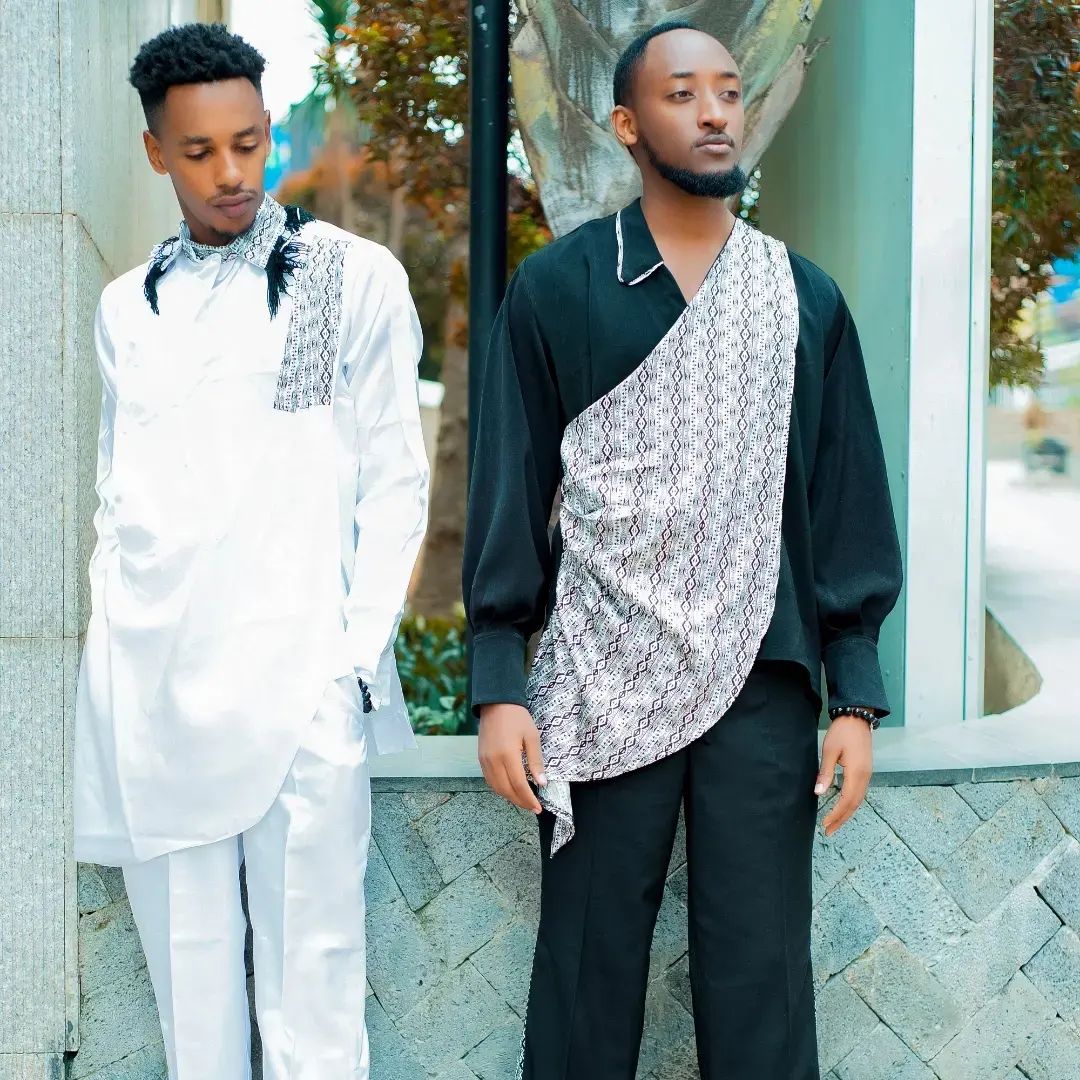 Made by UMUHETO Fashion House
Made by UMUHETO Fashion House
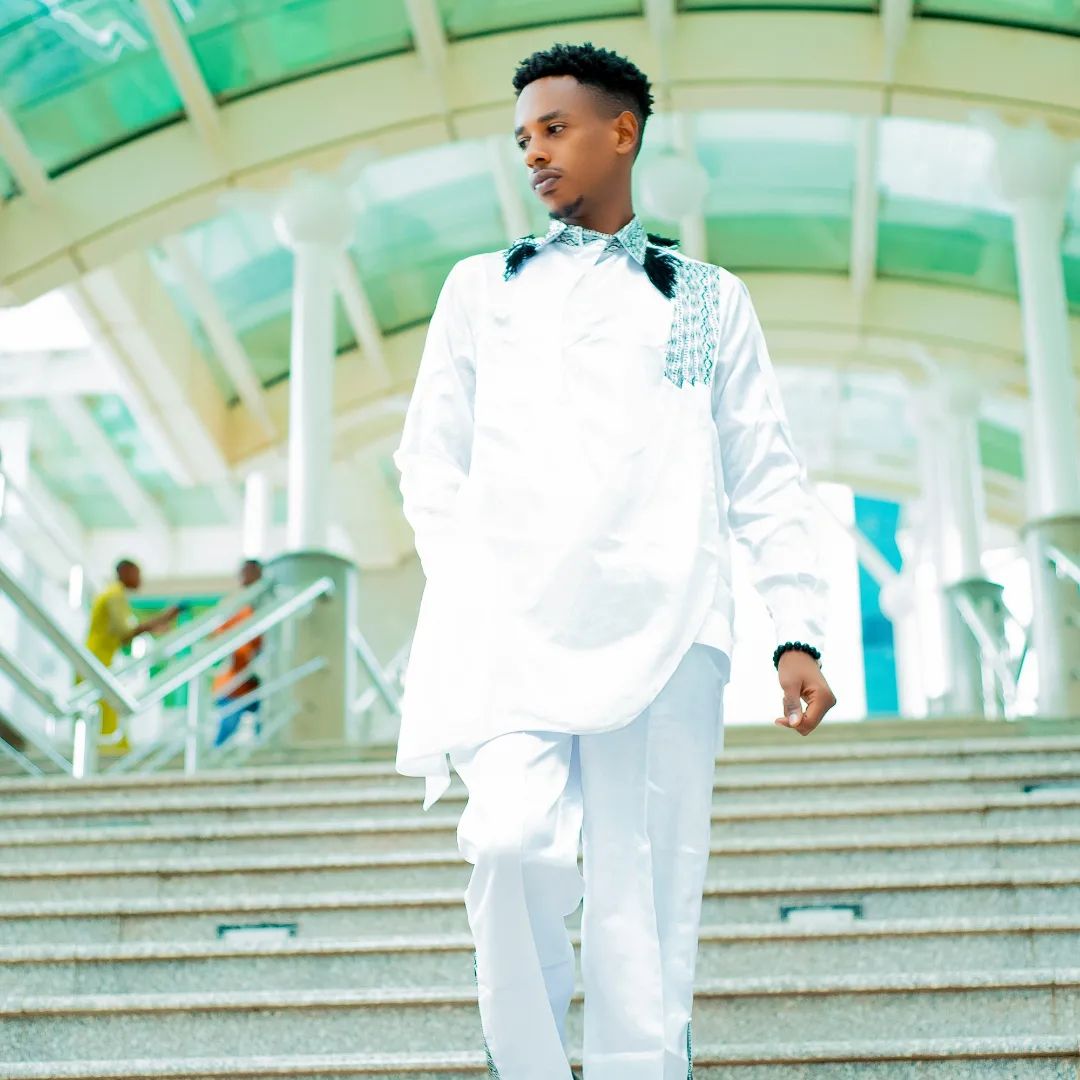 Made by UMUHETO Fashion House
Made by UMUHETO Fashion House
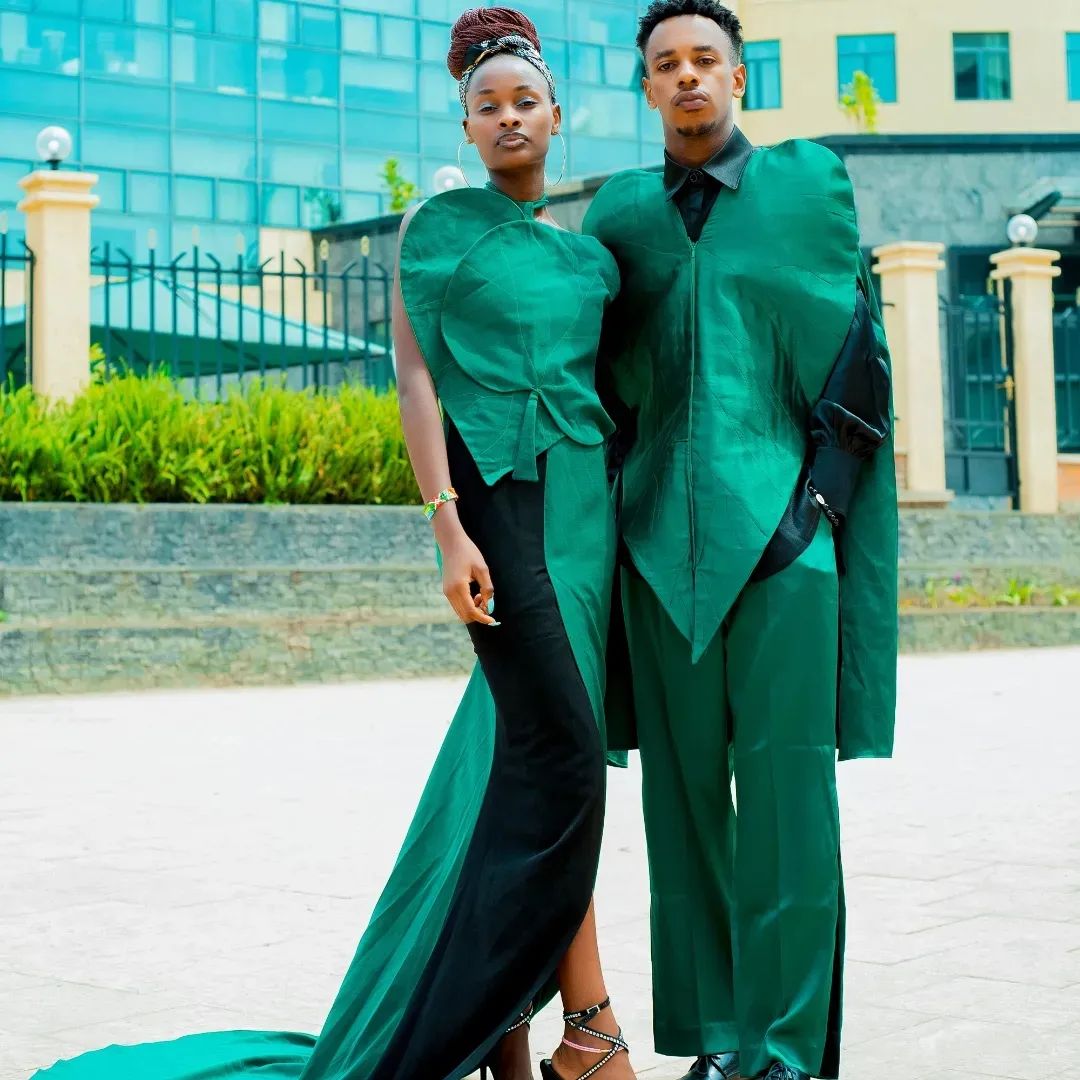 Made by UMUHETO Fashion House
Made by UMUHETO Fashion House
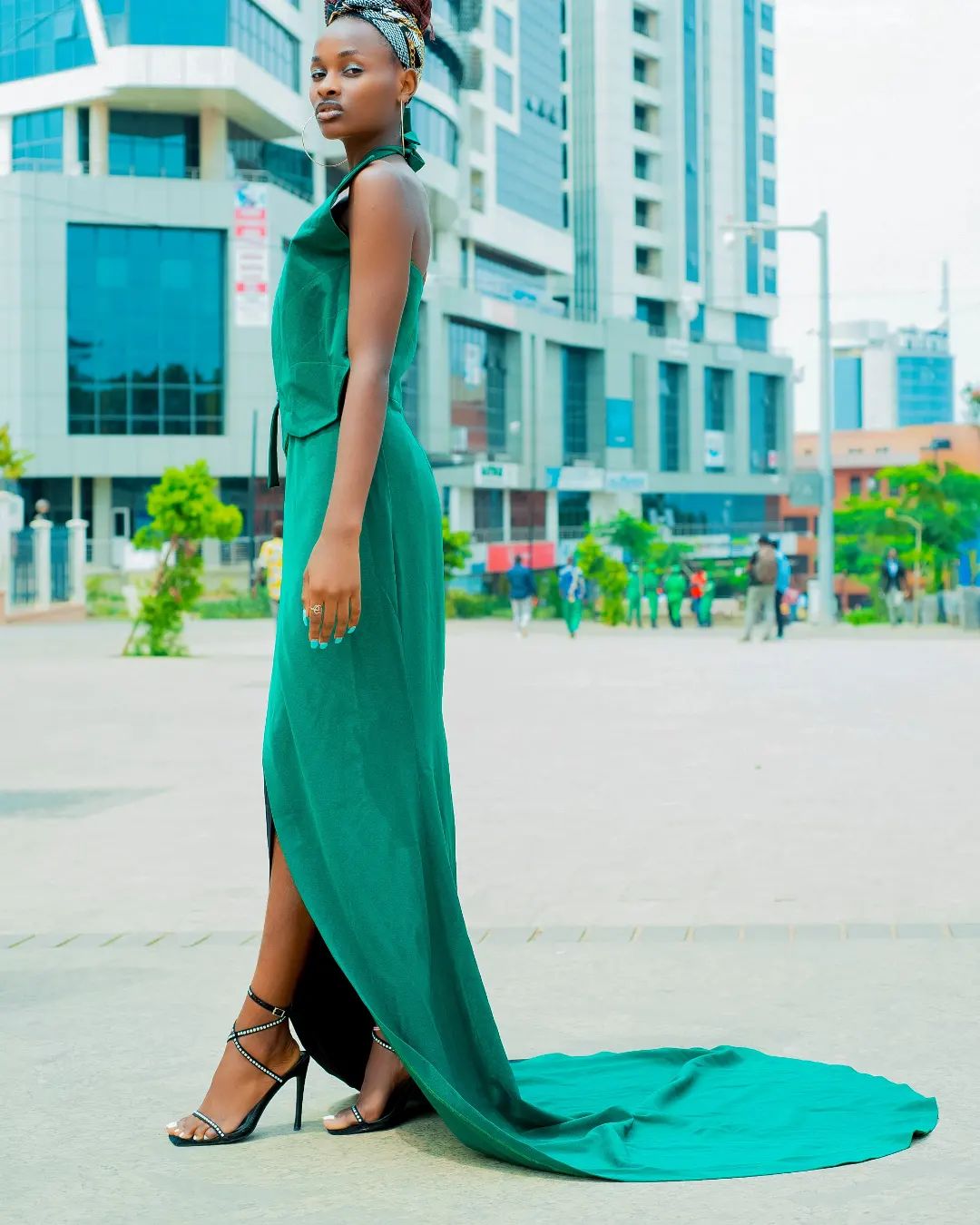 Made by UMUHETO Fashion House
Made by UMUHETO Fashion House
To continue to inspire and support each other, Mr Talento UMUHETO joined the RANDA Collective which is a group of different local fashion designers who won the competition organized by Arts Rwanda Ubuhanzi. After being selected as the winners, they started their fashion journey and they hope their unity will help maintain their different brands.
“We are 11 fashion designers, we make different products such as clothes, bags, and shoes. Our association has very talented fashion designers. As most of us, we are new. We haven’t attended big fashion shows. But in our plan, we are organizing our big fashion event that will showcase our different creations and designs. We will inform fashion lovers, of a specific plan, the month, and the date soon” said Talento UMUHETO
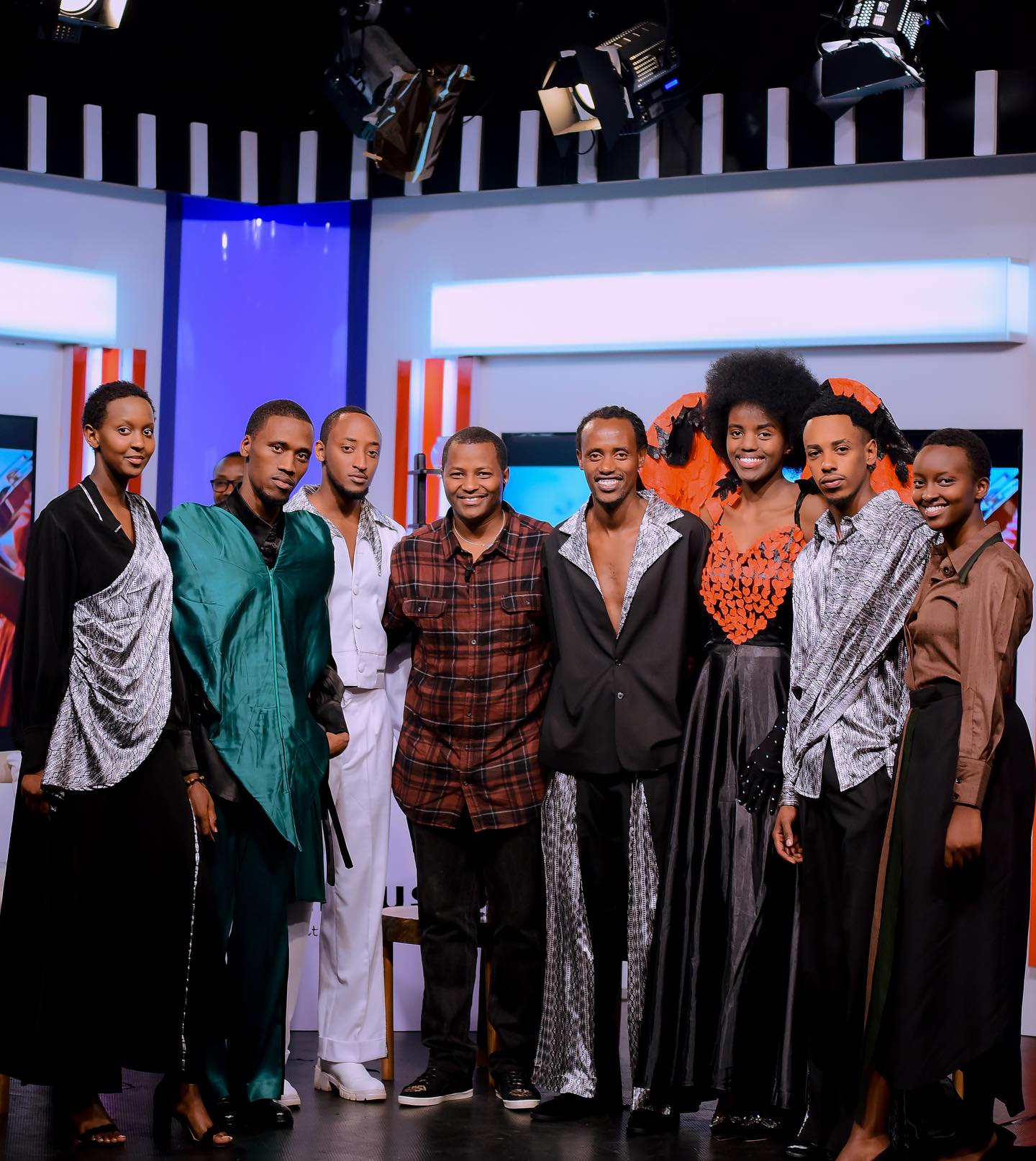 Mr. Talento UMUHETO at the Rwanda Television with his team models after showcasing live on the RBA
Mr. Talento UMUHETO at the Rwanda Television with his team models after showcasing live on the RBA
Other photos of the UMUHETO Fashion House in the Department of costume designs for Movies and Theatres
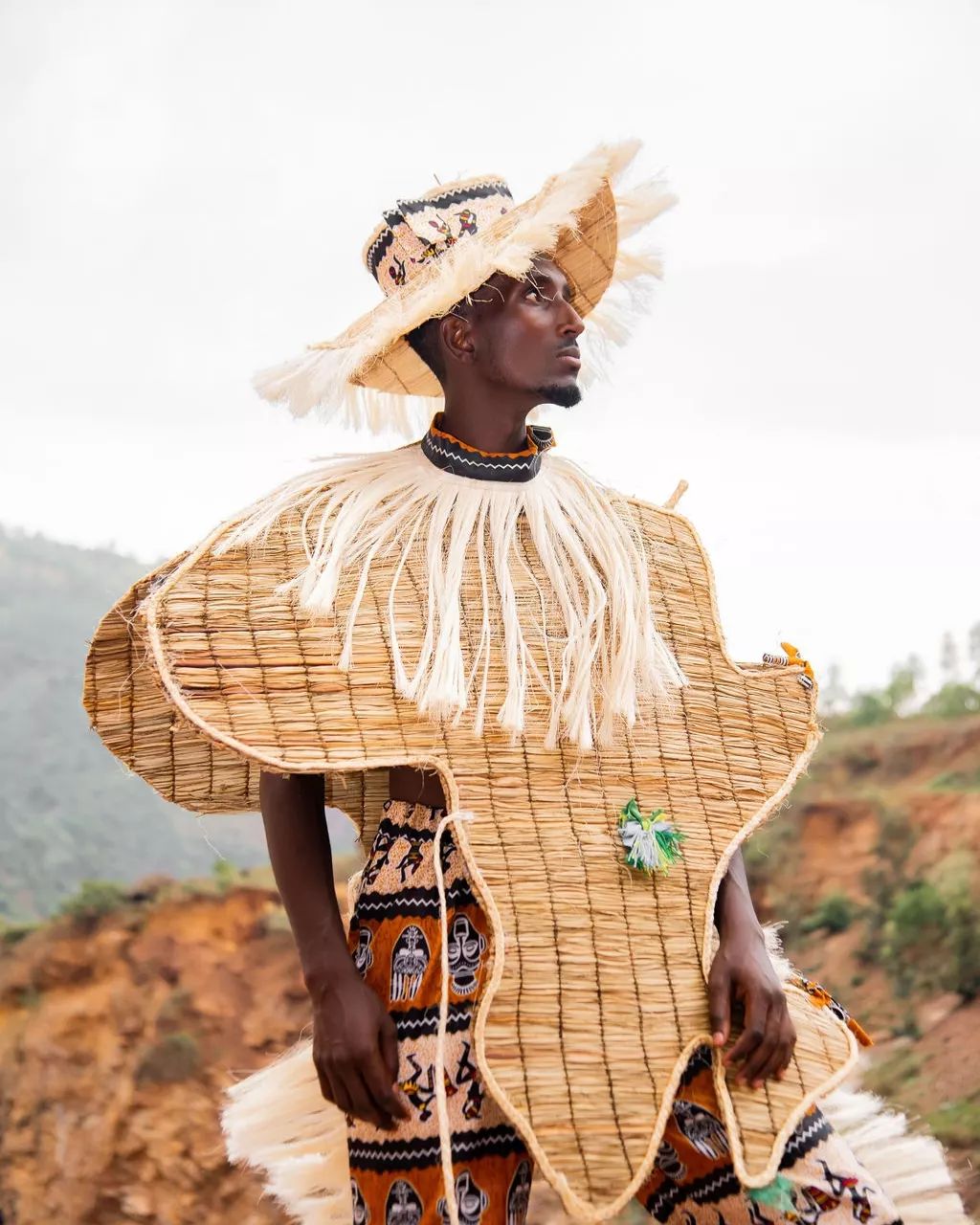
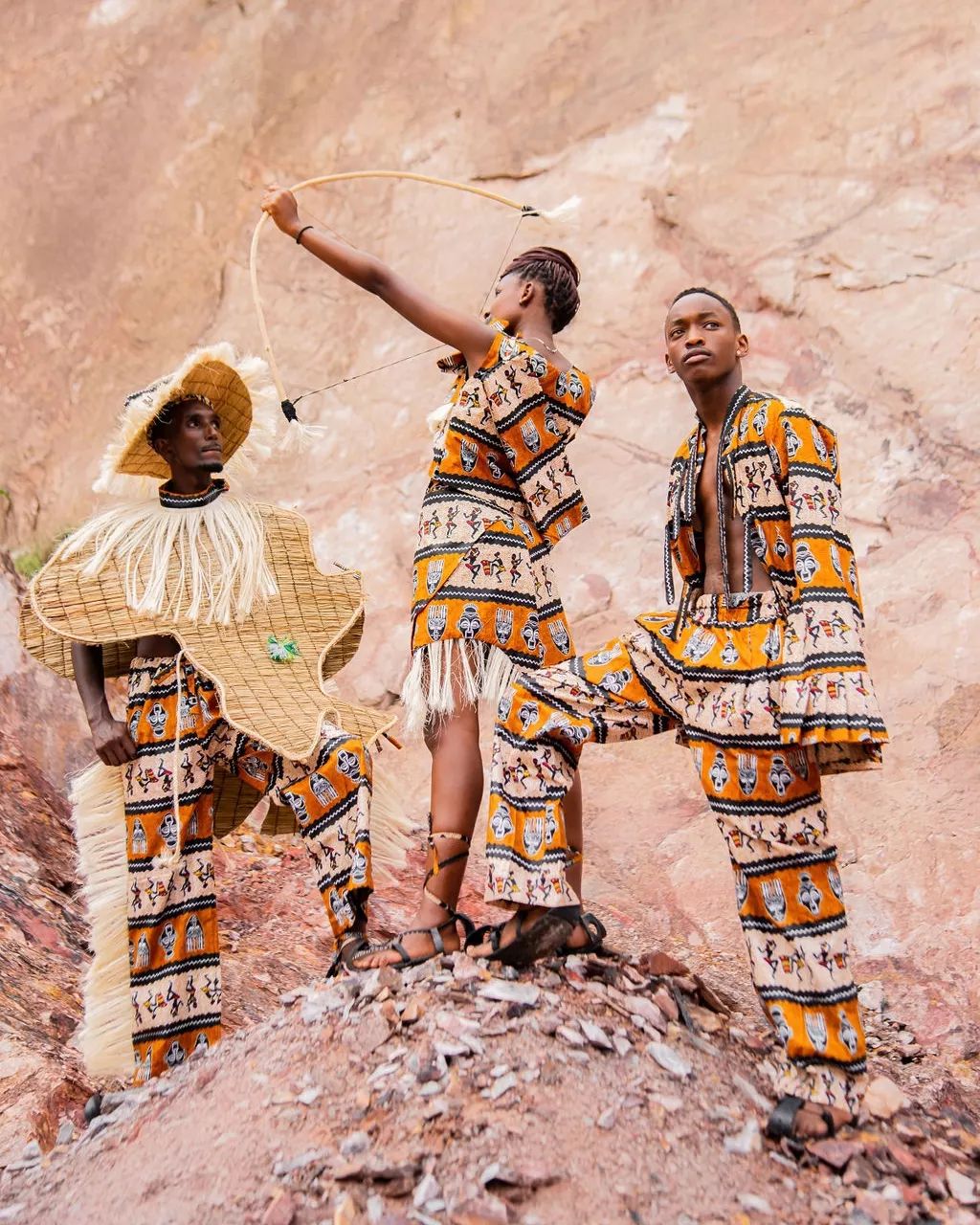
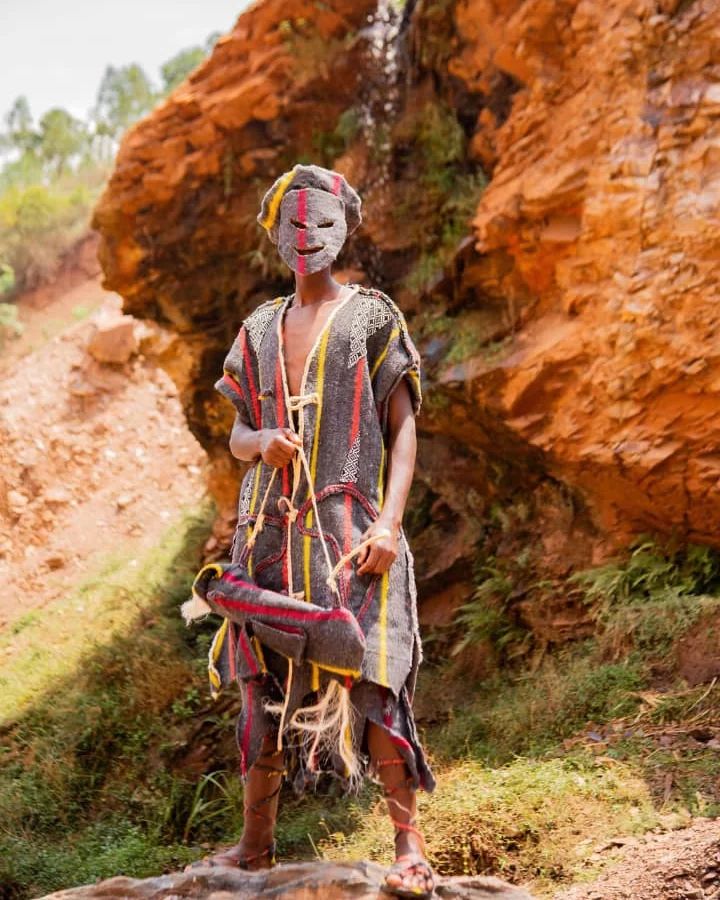
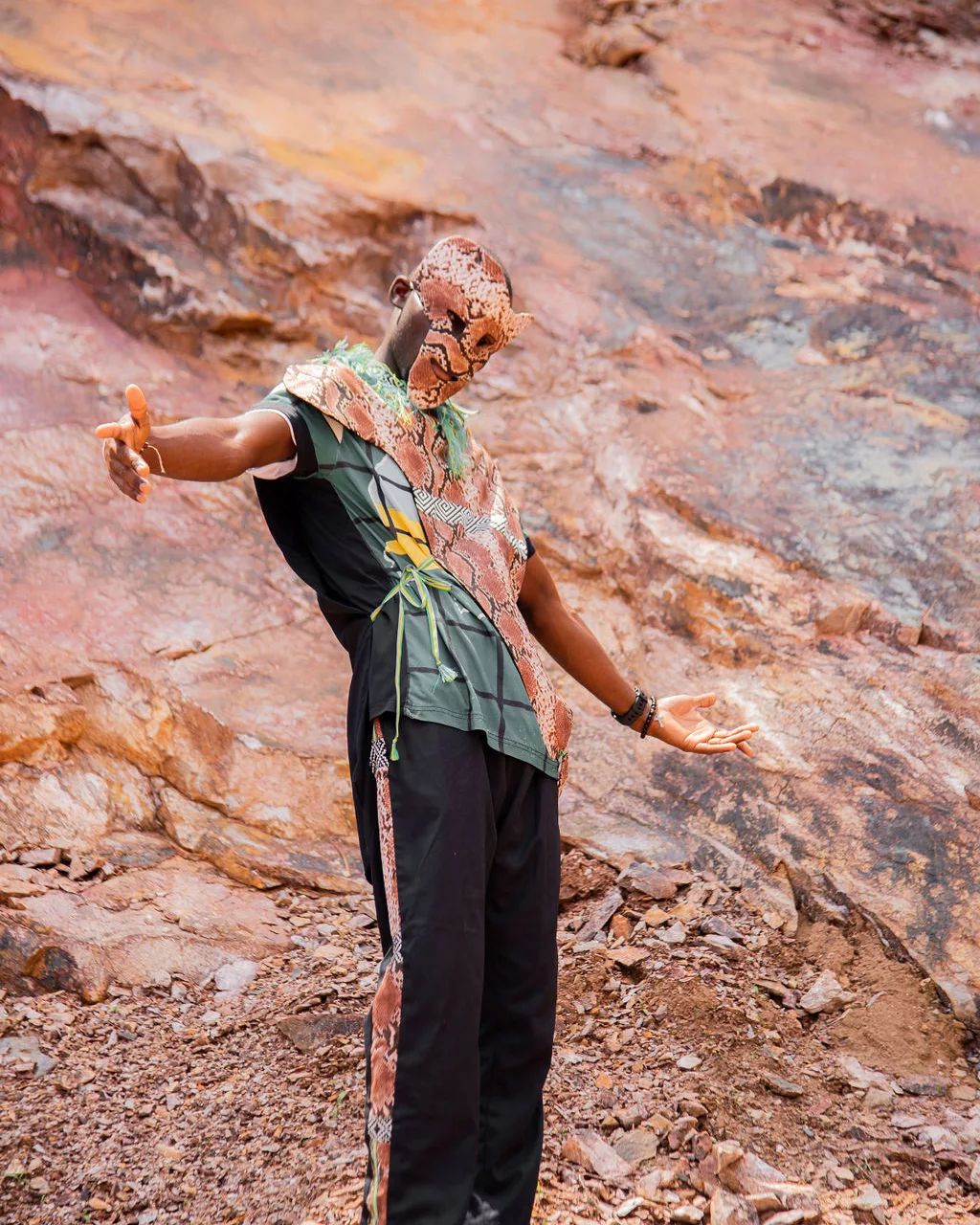
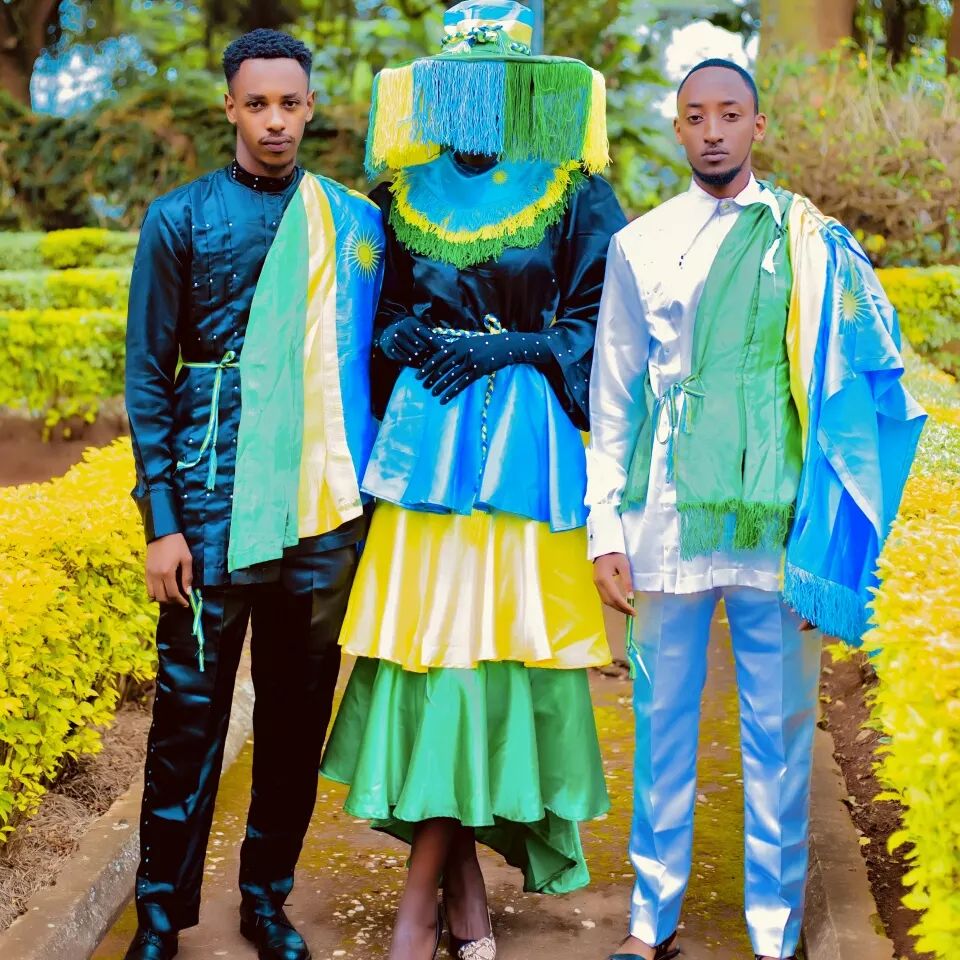
The slogan of the UMUHETO Fashion House is #INTEGO NI UKUMASHA in Kinyarwanda .Which means " Our target is to hit success "
In Africa, a lot has changed since the start of the COVID-19 pandemic. Like any other sector, the pandemic had a huge impact on the fashion industry. However, It was also an opportunity for African fashion designers to gain visibility, especially for those who immediately took advantage of social media.
The African Development Bank has been investing in fashion and textiles on the continent, according to Ms. Bintou Diallo, a cultural and creative industries expert from the African Development Bank-ADB and a member of Fashionomics Africa. They have been organizing master classes to help young and upcoming, established fashion designers reach more audiences.
"This master class will help you take advantage of social media to optimize your business but also try digitally," said Ms. Bintou in her remarks during the opening of this session.
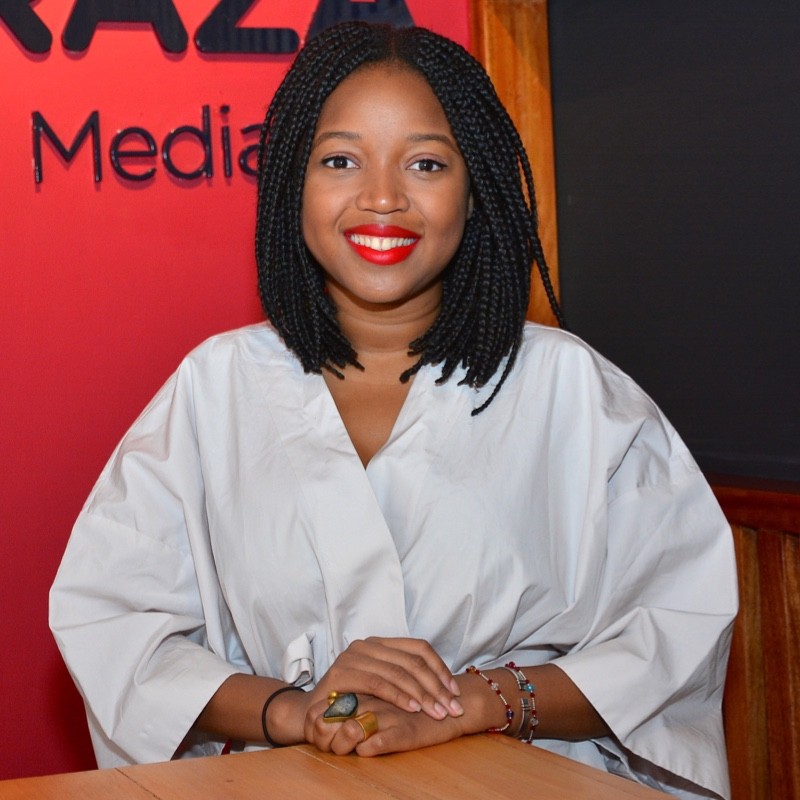 PHOTO: Bintou S. Diallo, the Cultural & Creative Industries at ADB & Fashionomics
PHOTO: Bintou S. Diallo, the Cultural & Creative Industries at ADB & Fashionomics
The master class for fashion entrepreneurs was organized in partnership with Google and presented with very experienced speakers. The RCFS's Media journalist attended the master class and we find it useful for fashion entrepreneurs in Africa as many young and upcoming fashion designers continue to struggle to keep their business alive.
“This initiative celebrates fashion diversity, fosters cultural exchange, promotes local economies, empowers local designers, and champions sustainable practices. Bringing it to Kigali made sense as we recognize that Africa is the cradle of life, we wanted to bring it to the roots” said Corhinn Brunot Chief Executive Officer of Africa A La Mode.
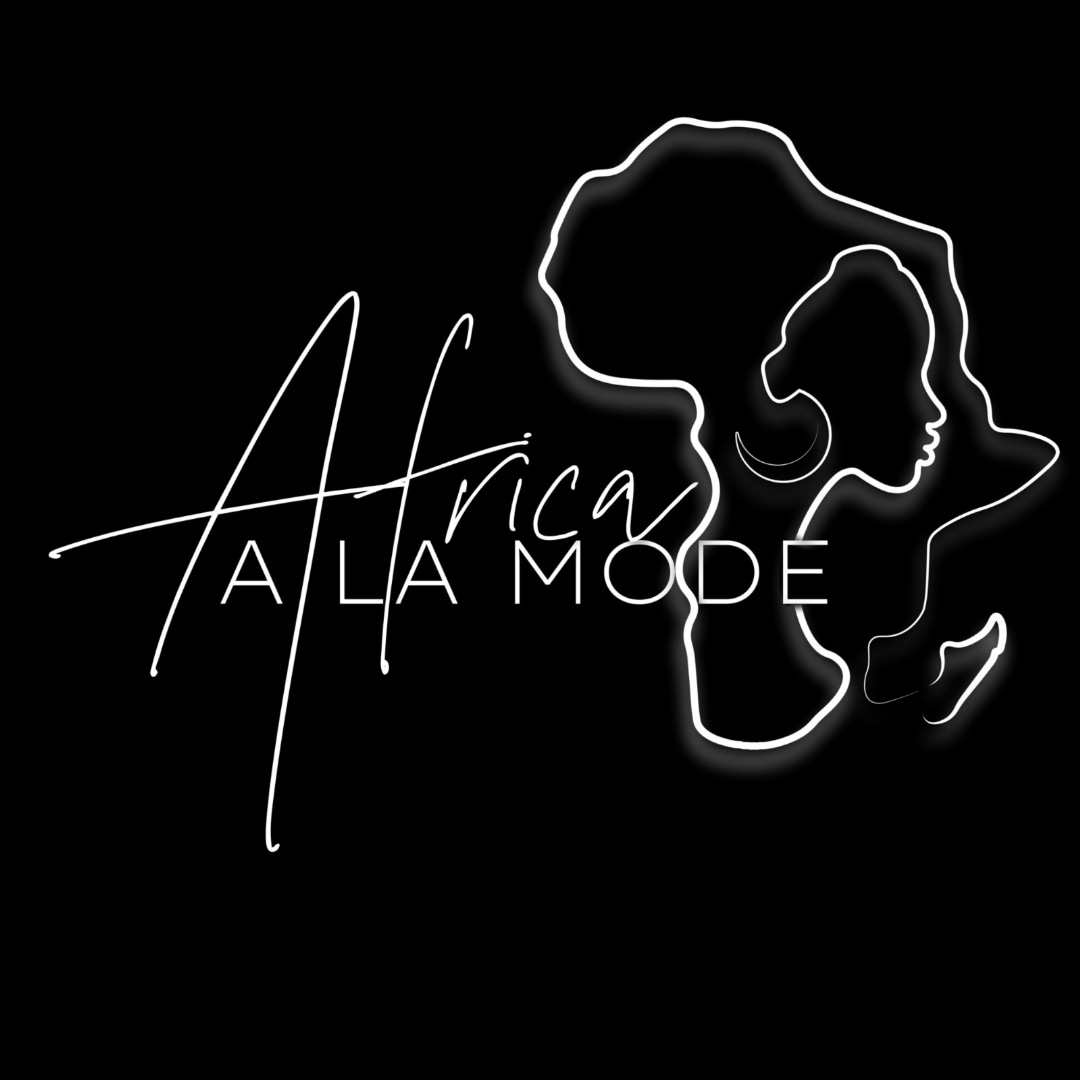 PHOTO: Logo of the Africa A La Mode
PHOTO: Logo of the Africa A La Mode
Fashion lovers in Rwanda especially those who will be around in Kigali this month of September should be ready for this. According to the organizers of the Africa A La Mode , the event will be a unique and intercultural exchange platform for local and international fashion designers to showcase their designs and creations.
“We have at least 4 international designers coming from the United States of America and a dance group coming from Haiti. Though it is our first time in Kigali putting on such a production, it is not our first rodeo putting up events of such magnitude. We expect that our first impression would exude Luxurious Culture” said Corhinn Chief Executive Officer of the Africa A La Mode.
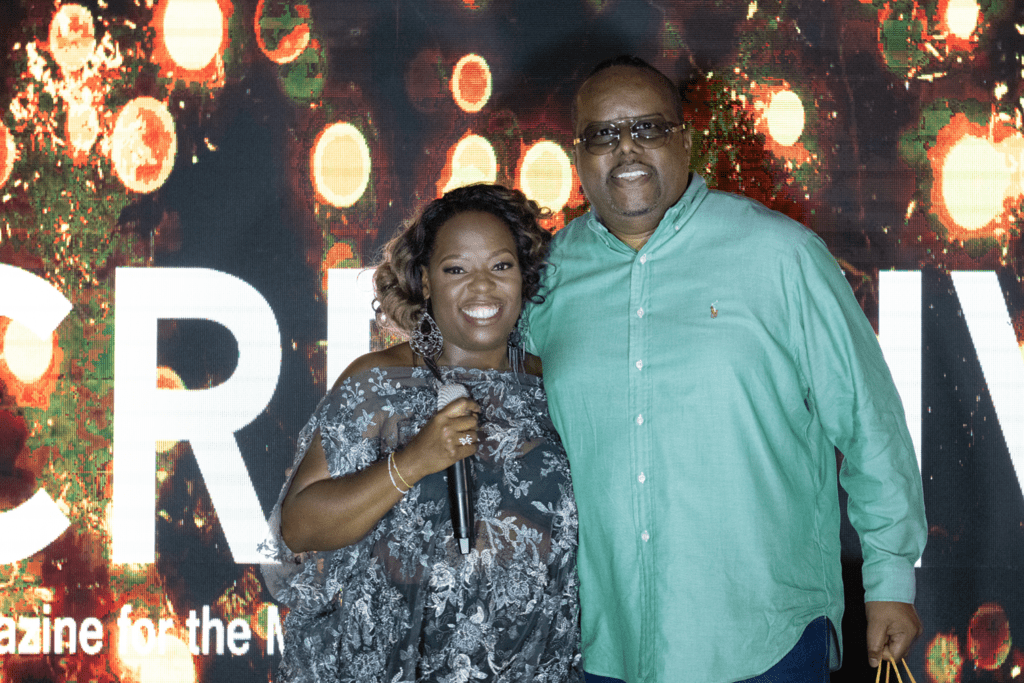 Jimmy Moise {Right) and Corhinn Brunot {Left), the founders of the Africa A La Mode - PHOTO: SIMPSONS PHOTOGRAPHY
Jimmy Moise {Right) and Corhinn Brunot {Left), the founders of the Africa A La Mode - PHOTO: SIMPSONS PHOTOGRAPHY
Africa A La Mode is a dynamic fashion production project that spotlights talented designers from around the world in selected African cities. Through fashion shows, designer residencies, workshops, marketplaces, and cultural events, it seeks to create a global stage for African and international fashion.
Founded by Jimmy Moise and Corhinn Brunot of NeoBo|CREATIV Magazine after creating a special edition in 2022, in honor of the Haiti Rwanda Initiative event. With over 20 years in the fashion industry, the realization of an opportunity to expand in a different continent presented itself. Subsequently introduced to Mrs. Karen Uwera founder of TALIF the Textile Apparel and Leather Investment Forum a decision was made thus Africa A La Mode was born.
Ms. Karen Uwera who is one of the founders of the Africa A la Mode, is the Managing Director of ACHIEVAZ Ltd the company organizing TALIF 2023 a first of its kind sector specific investment forum where Africa a la Mode will be an affiliate event, this year’s edition of TALIF is organized in partnership with the East African Business Council, during the event EABC will be launching the Arts and Creative platform which aims at supporting the creative industry across East Africa. Register here to participate in the TALIF 2023
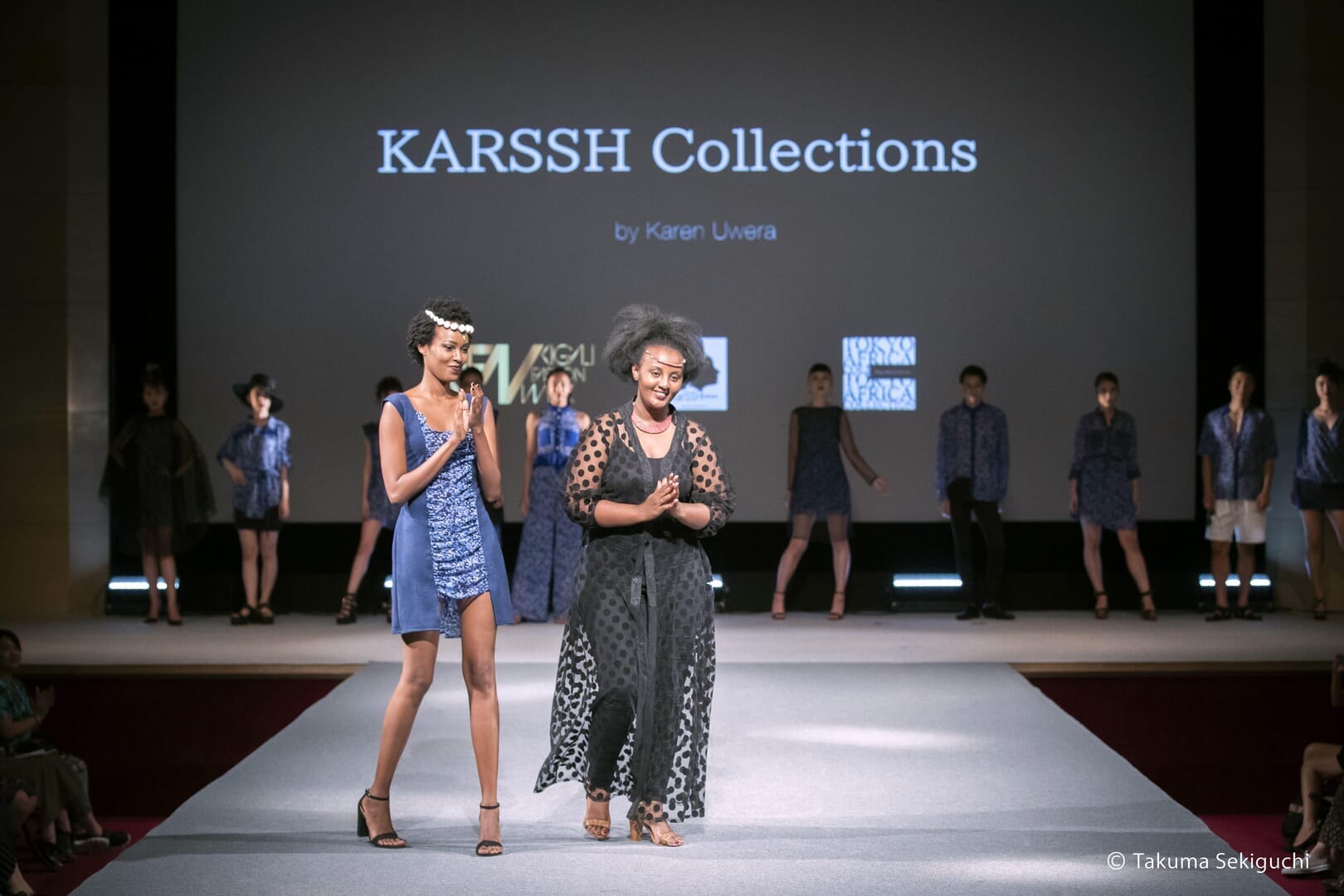 PHOTO: Ms. Karen showcasing in Tokyo Africa Collection 2019, in Japan (From right In black )
PHOTO: Ms. Karen showcasing in Tokyo Africa Collection 2019, in Japan (From right In black )
Other than being in the corporate world Karen is also a Rwandan fashion designer & creative director for KARSSH Collections and the currently elected Chairperson of the Rwanda Fashion Designers Association.
Ms. Karen believes that AFRICA a la Mode will elevate the Rwandan fashion industry on the international scene as it brings along world class capacity building for fashion players like Fashion designers, models and fashion photographers who will receive training/masterclasses by experts from Italy, South Africa, Zimbabwe, and Haiti.
During the interview with the RCFS’s Media, our journalist asked other questions about this unique event of the Africa A La Mode and what should fashion lovers expect.
Journalist:
- Can you tell us more about the Africa A La Mode, the Kigali edition?
“Africa A La Mode, the Kigali edition is the first of its kind. It is scheduled for 21st September, at Kigali Cultural Village (Camp Kigali), from 6 pm. However, we hope the outcome will be spectacular. This has yet to be determined, Model castings are underway with over 100 models registered and tickets are available on our website africaalamode.com” said Corhinn Chief Executive Officer of the Africa A La Mode.
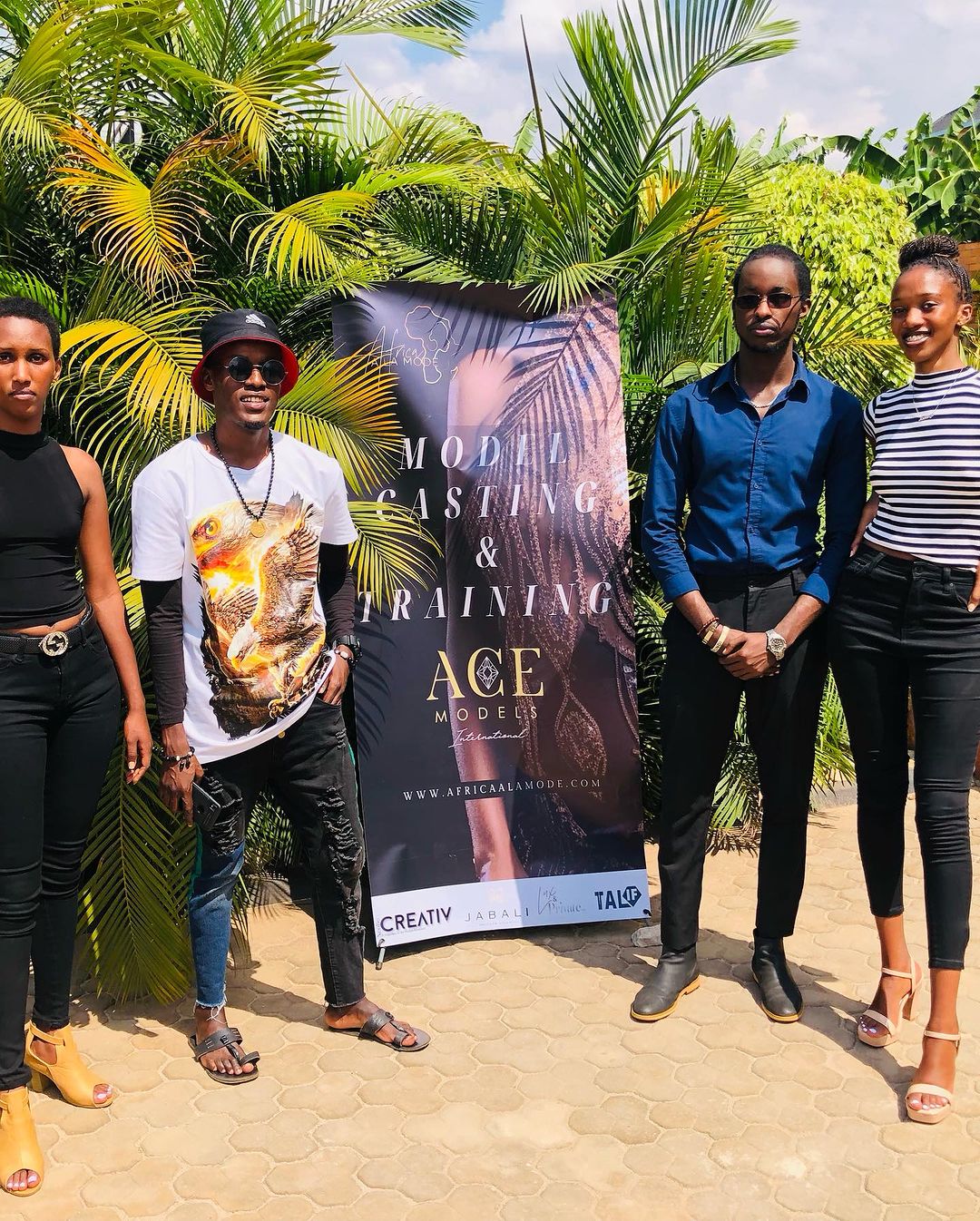 PHOTO: Runaway Models during the casting of the Africa A La Mode, in Kigali
PHOTO: Runaway Models during the casting of the Africa A La Mode, in Kigali
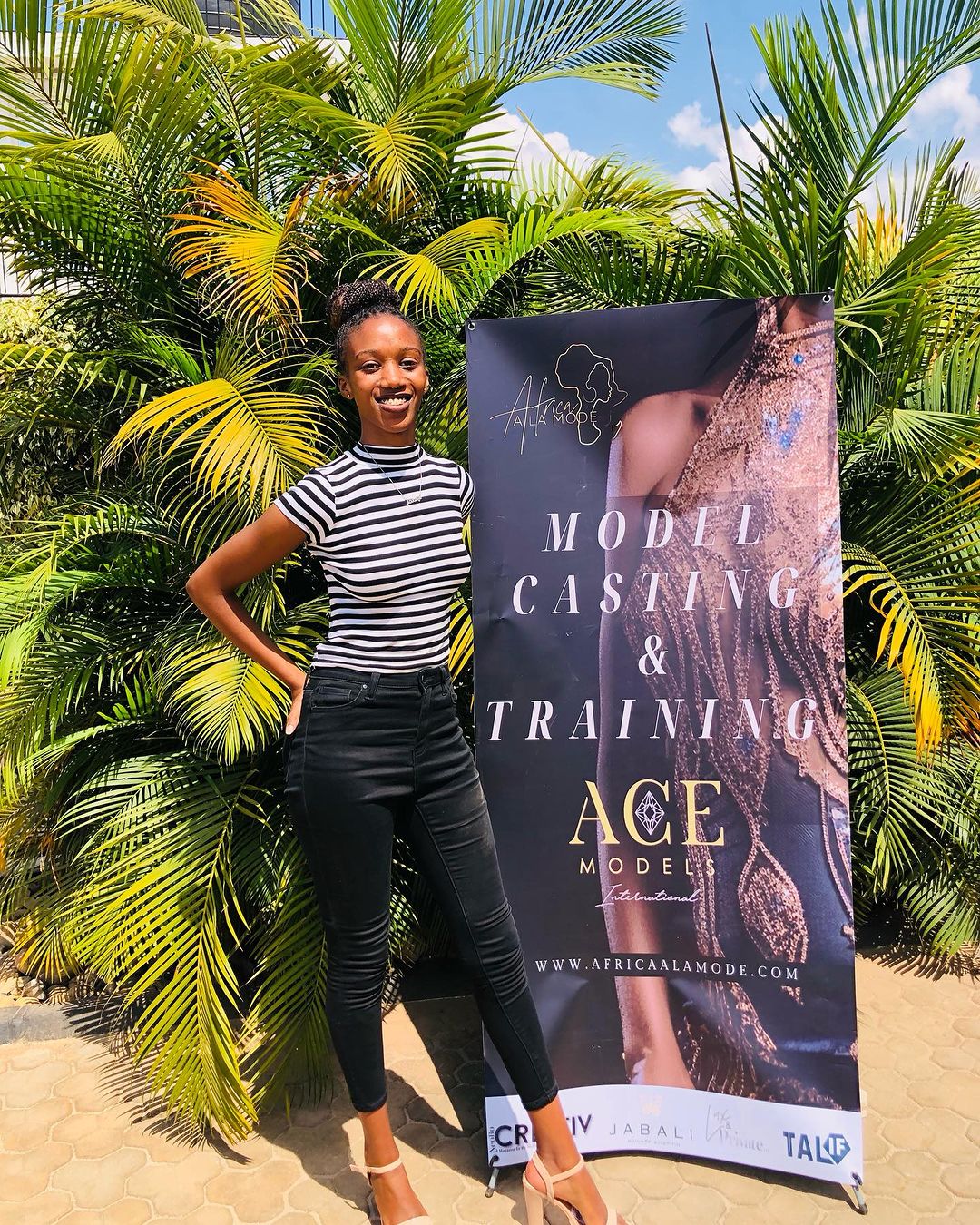 PHOTO: A runway model during the casting of the Africa A La Mode, in Kigali
PHOTO: A runway model during the casting of the Africa A La Mode, in Kigali
Journalist:
- What is your perspective of the Rwanda Fashion Industry?
“We found that the Rwanda fashion industry is on an upward trajectory, driven by a combination of creative talent, cultural richness, and a growing interest in sustainable fashion. Why not share it with the world” said Corhinn Chief Executive Officer of the Africa A La Mode
Journalist:
- What is Africa A La Mode's uniqueness that makes it unique in fashion show event?
“Though it is our first time in Kigali putting on such production, it is not our first rodeo putting up events of such magnitude. We expect that our first impression would exude Luxurious Culture” said Corhinn Chief Executive Officer of the Africa A La Mode
Journalist:
- Do you have designers registered already? Which countries do they come from?
“Three designers are coming from the United States and one from a neighboring country of Rwanda. We are excited about the turnout” said Corhinn Chief Executive Officer of the Africa A La Mode
Journalist:
- What messages do you have for local fashion designers who want to participate in the fashion show? Any participation fees for them? if yes, how much?
“Of course, Local designers are welcome. Their fees would be much lower than designers coming from abroad all this information can be found on our website africaalamode.com” said Corhinn Chief Executive Officer of the Africa A La Mode
Other photos from the Africa A La Mode Model Casting
 Models from the RIFI Fashion Agency were among those who attended the casting of the Africa A La Mode
Models from the RIFI Fashion Agency were among those who attended the casting of the Africa A La Mode

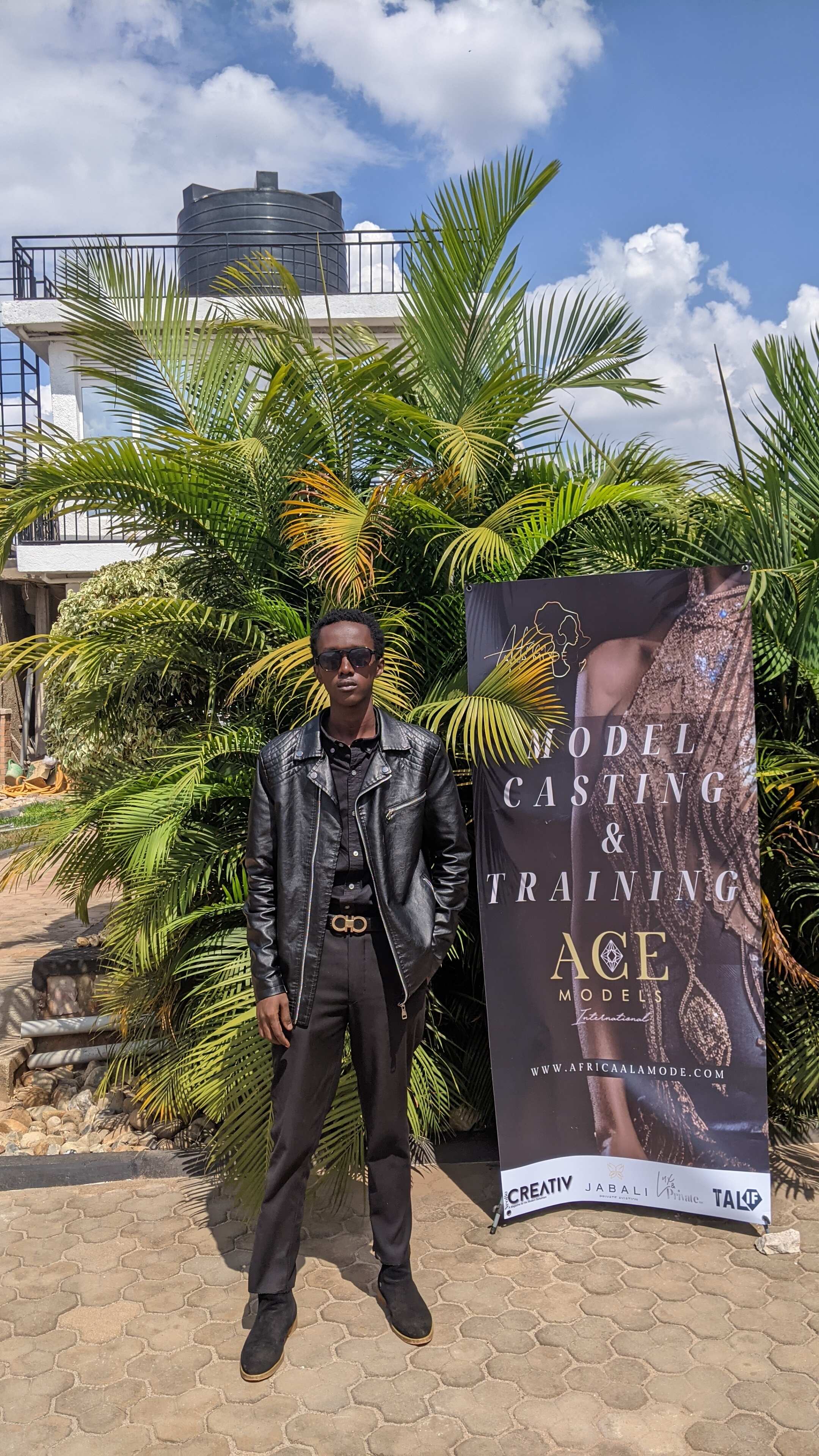
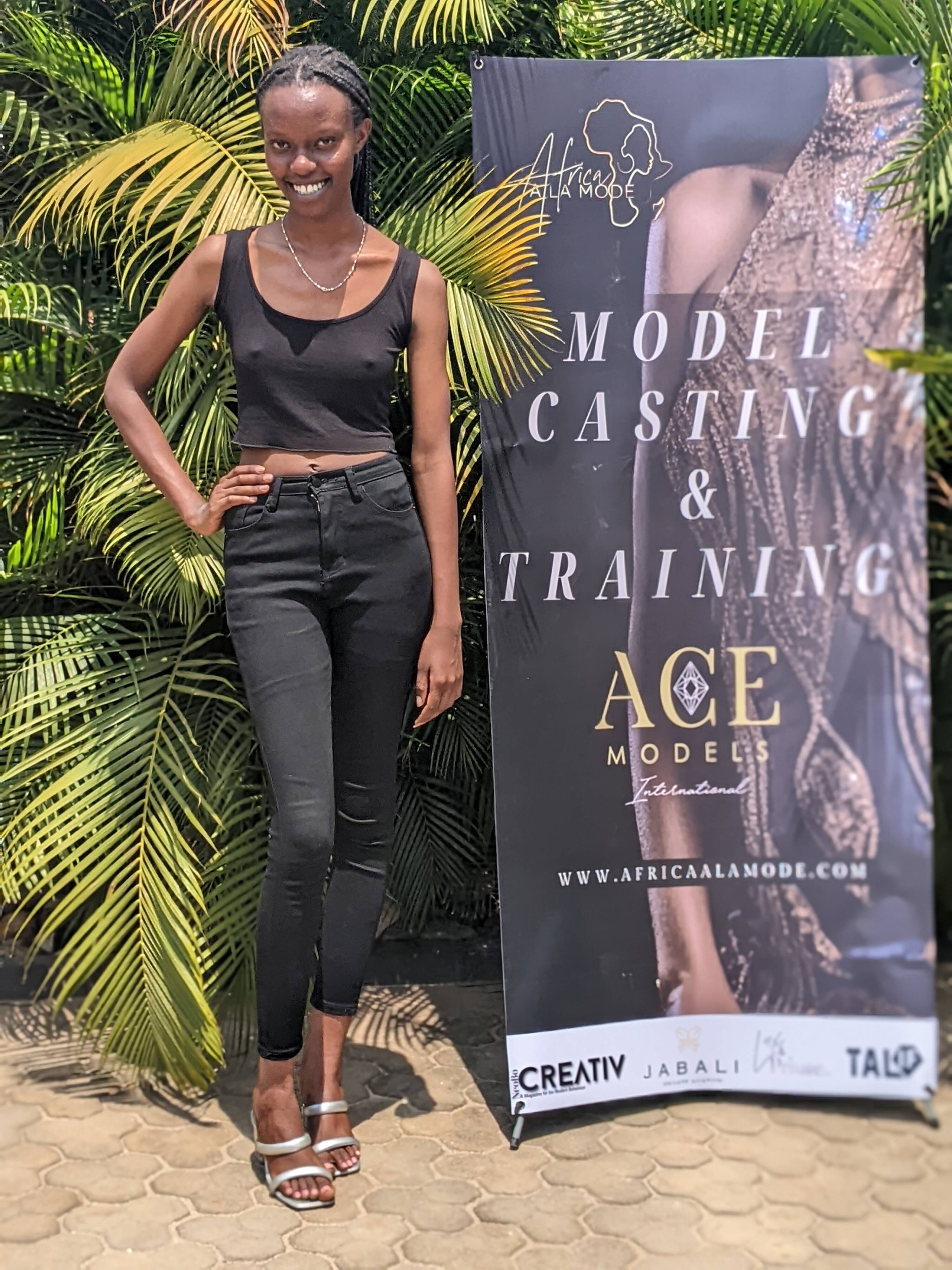
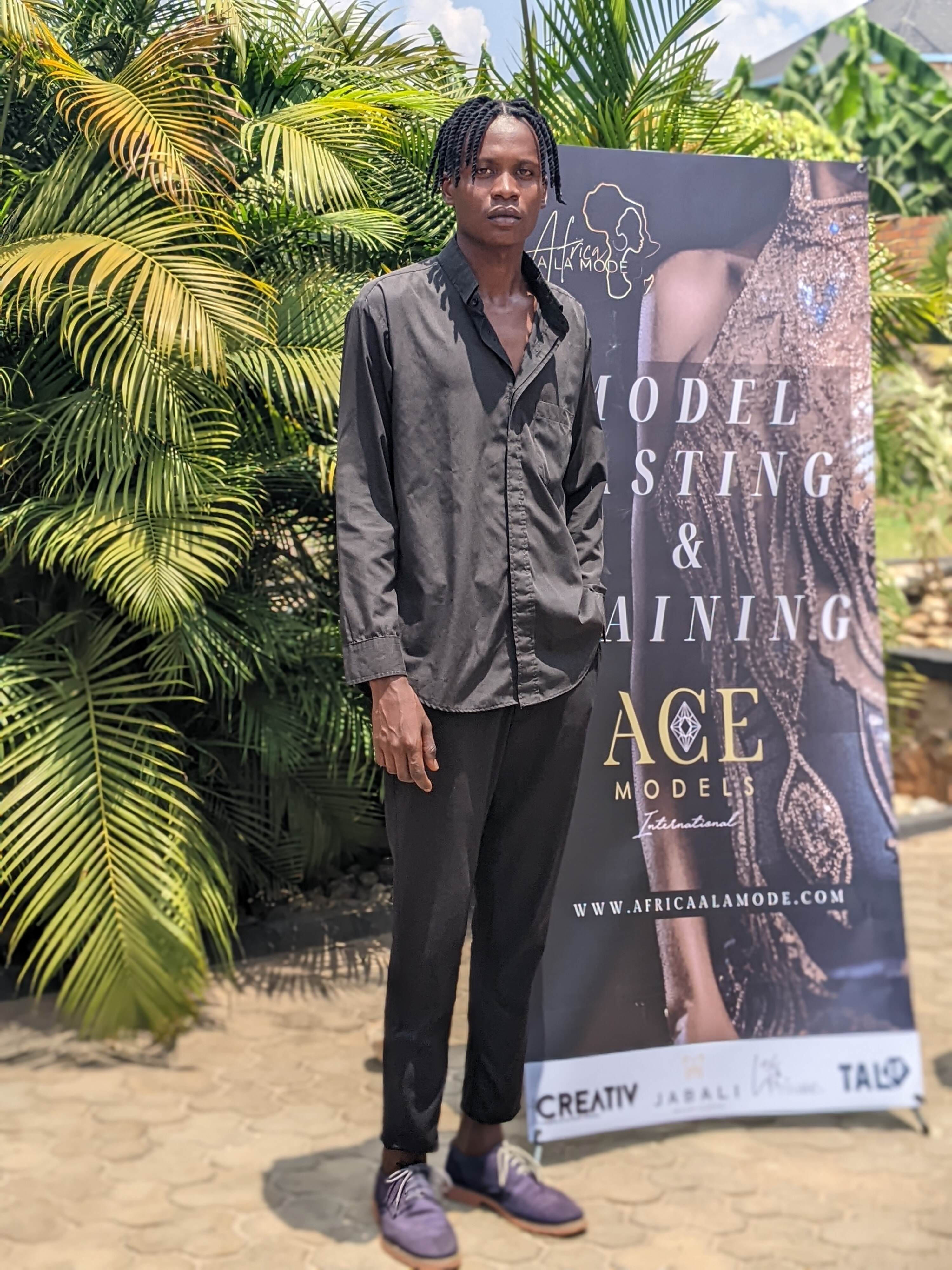
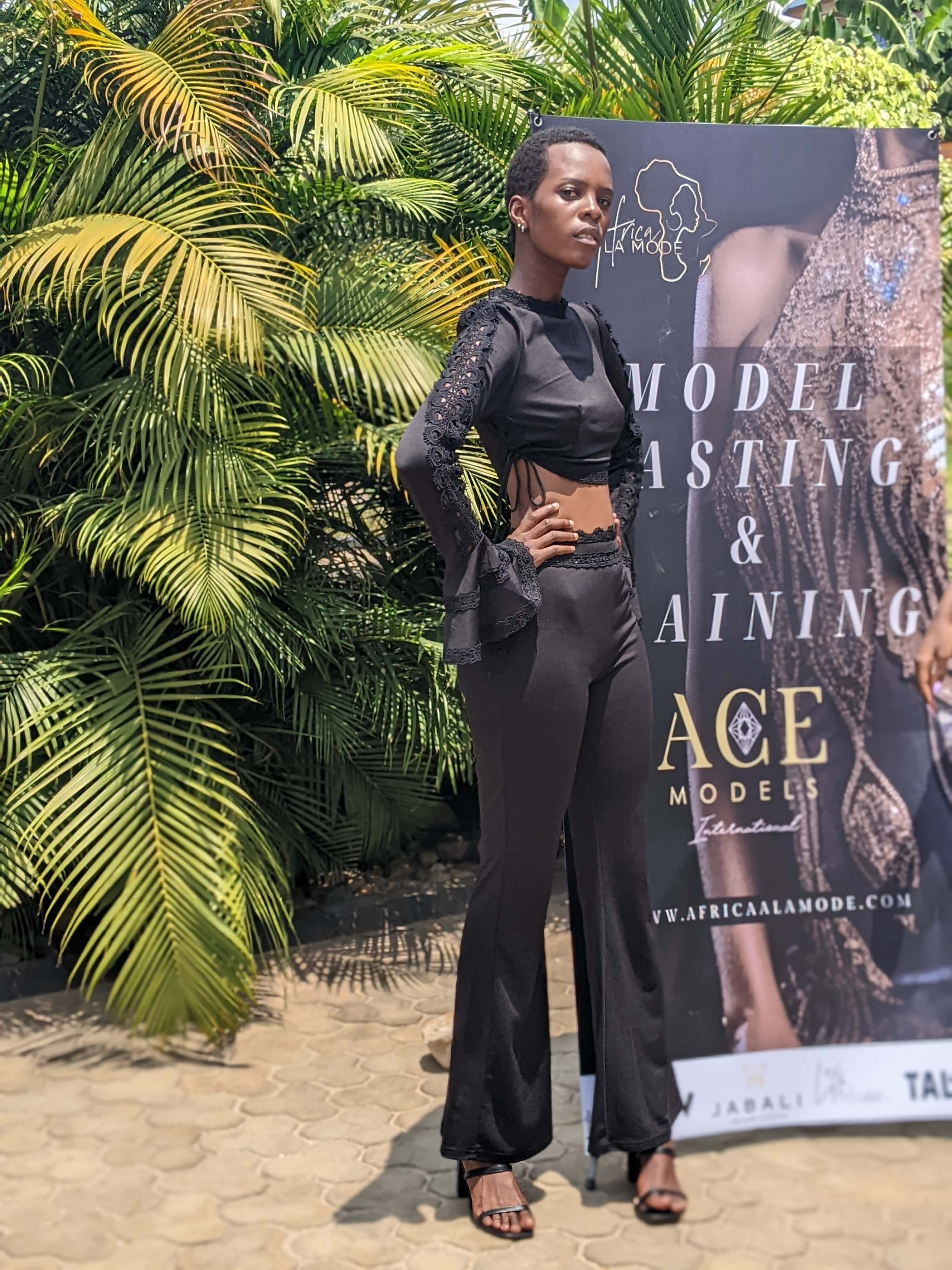
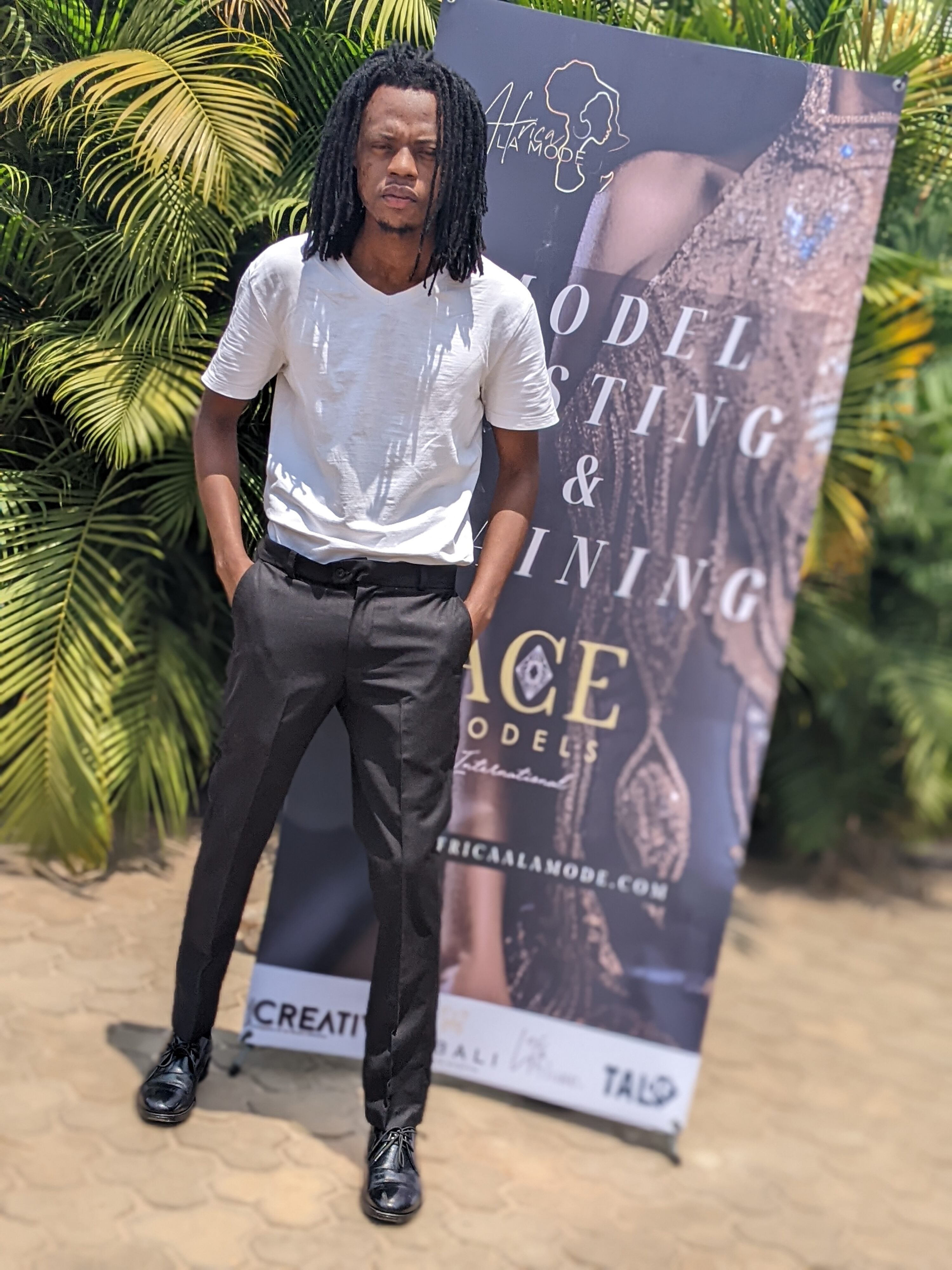
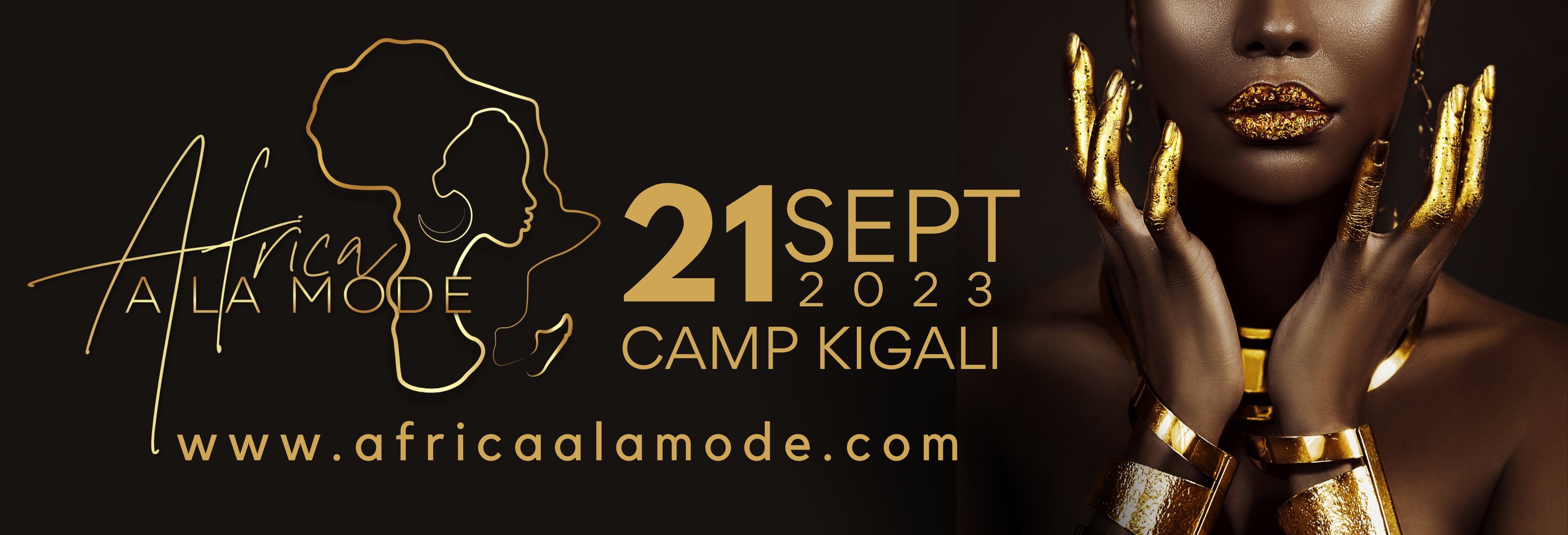
Buy Your Ticket at https://www.africaalamode.com/
Editor’s note: this blog originally ran in “Textiles” magazine, the subscriber-based publication of the Textiles Institute in the United Kingdom
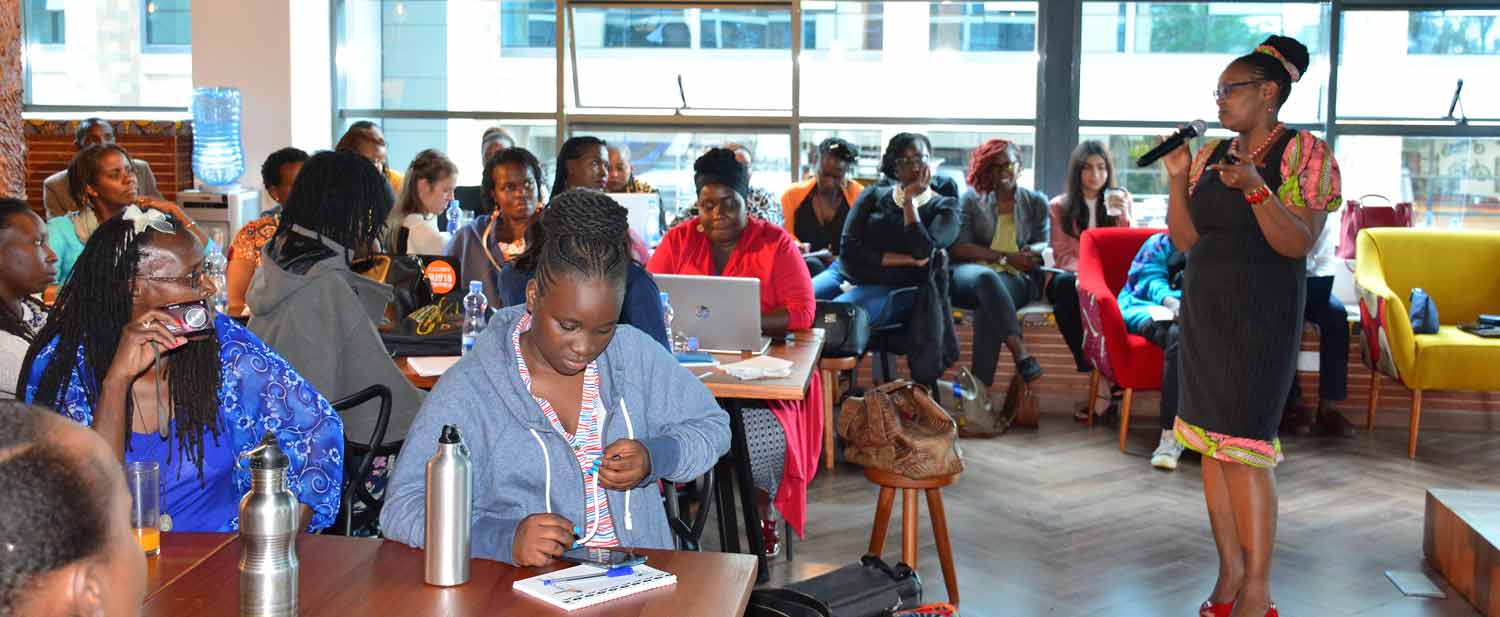 PHOTO: A recent Fashionomics Africa masterclass held in Nairobi
PHOTO: A recent Fashionomics Africa masterclass held in Nairobi
In Africa the fashion and textile industry is the second largest sector after agriculture. With an estimated market value of USD$31 billion in 2020 it is growing every year. Africa’s fashion industry has the potential to create jobs for millions, especially for women and youth.
The fashion and textile sector in Africa faces many challenges. There is a distinct lack of capital; small and medium-sized enterprises make up 90% of Africa’s fashion industry, yet their growth has been hampered by lack of access to, or inadequate, finance.
According to Statista, the development of the fashion industry in Africa is hampered by several challenges negatively impacting its ability to compete with regions such as Europe and Asia. These include low production capacity, low-quality standards, skill shortages, lack of industry-specific training centers and inadequate local and regional textiles and apparel production facilities. In fact, Africa produces 6% of the world’s cotton and is home to 60% of the world’s uncultivated arable land – yet most of the textiles used in Africa are imported.
 PHOTO: Made by Lohije
PHOTO: Made by Lohije
Despite these challenges, we believe African fashion has a lot to offer to the global textiles and apparel sector. It has the potential to become a USD$15.5 billion industry as personal incomes increase and the continent’s middle class grows.
Africa offers considerable opportunities; from design to production, sourcing and marketing, as well as leveraging digital tools and technologies. This highly profitable industry also offers the opportunity to promote the diversity and uniqueness of African cultures across the continent, allowing Africans to fully own and tell their own narrative. African designs deliver on consumer demand for unique, authentic, quality and affordable products.
Fashionomics Africa
The African Development Bank’s Fashionomics Africa program is promoting investments in the fashion industry, whilst taking a value chain approach to building a “made-in-Africa” brand. Fashionomics Africa fosters trade expansion within Africa and internationally with a particular focus on empowering women- led businesses. The program aims to target key market failures in the African fashion industry, by increasing access to finance and to markets, market intelligence and capacity building for entrepreneurs - while promoting incubation and acceleration for start-ups.
The Fashionomics Africa program is part of the Bank’s flagship initiative, Affirmative Finance Action for Women in Africa (AFAWA). AFAWA aims to bridge the estimated $42 billion financing gap faced by Africa’s women-led small and medium enterprises. Fashionomics Africa extenuates AFAWA’s mandate to assist women entrepreneurs and to leverage African culture and creativity as a unique selling point as well as a resource for job creation, foreign exchange and value addition.
As part of our work to increase access to research in Africa’s textile, apparel and accessories industry, Fashionomics Africa conducts studies with an emphasis on meeting the needs of African fashionpreneurs. One example is our upcoming study about stimulating investment in Africa’s jewelry manufacturing value chain. This study provides insight on the industry’s potential for job creation for women and youth in Sierra Leone, Zimbabwe and the Republic of Guinea.
Partnering with Facebook, DHL, Google Digital Skills for Africa, the International Trade Center, the Tony Elumelu Foundation and others, Fashionomics Africa hosts masterclasses offering fashionpreneurs a better grasp on how to establish and build a fashion brand – from idea to execution. More than 2,500 textile, apparel and accessories entrepreneurs completed the training, of whom 65% were women, held in six countries.
More recently, Fashionomics Africa launched its Incubator and Accelerator Programs set up to address limitations in
the investment readiness and growth potential of early-stage, and growth-stage African fashion businesses. More than 5,000 entrepreneurs from 40 African countries participated in the online eight-week training, which was offered in four languages, followed by mentoring, coaching, and networking sessions.
Standout entrepreneurs pitched their business plan to industry experts and investors – six of them went home with USD$20,000 in seed money each.
“We are a whole lot more than fashion contests.”
Fese Ndumbe Eyoh, one of the seed money earners runs a Cameroon-based luxury fashion brand “Eloli.” It produces African-inspired clothing and accessories. “The Fashionomics Africa program gave me time to pause for a second and rethink my strategy. Now, I understand my brand holistically,” Eyoh said. “With the tools I have received from this program, I know I have everything I need to succeed as an established brand,” she added.
Lohije
 PHOTO: A hat made by Lohije
PHOTO: A hat made by Lohije
Rowing through Nigeria’s labyrinth of rivers, collecting water hyacinth plants to make designer hats may seem an unusual way to make a mark in the world of fashion however, Lagos-based design house Lohije’s award-winning woven dried water hyacinth fibre headpieces gave the start-up the edge to generating new business opportunities for Africa’s textile and apparel industry entrepreneurs.
Lohije founder and creative director Gift Raji snagged top prize in the African Development Bank’s Fashionomics Africa sustainable fashion competition. The judging panel and public vote-driven competition celebrates African fashion brands working to change how fashion is produced, bought, used and recycled to encourage more sustainable consumer behavior.
Raji’s fashions also feature biodegradable buttons made from discarded coconut shells instead of plastic. Her start-up emphasizes employing local artisans, using traditional textiles and indigenous techniques while infusing innovation to satisfy a growing taste for contemporary fashion.
Raji used the modest competition cash prize to move to a larger production facility and to purchase new machinery to increase production, as well as a bigger generator to power through frequent electricity outages.
“I would say that my business began when I won the Fashionomics Africa contest,” she says of her two-year-old business. “I saw possibilities that Fashionomics Africa will open up in discovering more textiles here in Africa that we can produce and export. The African Development Bank has more strength and connections that expand beyond the shshores of Africa,” she added.
 PHOTO: Lohije founder and creative director Mrs Raji
PHOTO: Lohije founder and creative director Mrs Raji
Raji received personalized training from the United Nations Environment Programme’s fashion and textile experts on eco-innovation methodologies and resources related to fashion and textile sustainability. She also benefited from business communication strategy training from global strategic consulting and communications agency BPCM.
As one of the competition finalists, Raji traveled to Rwanda and participated in a “From Linear to Circular” workshop organized by competition partner The Ellen MacArthur Foundation. The four-day learning, networking and site visit event explored applications of the circular economy in Africa.
“The best part for me was the very interactive sessions which made for easy networking with team members. I got to learn about what the circular economy is and how it is different from sustainability,” Raji said.
The competition and the larger Fashionomics Africa program were born out of the African Development Bank’s recognition of the potential of the continent’s cultural and creative industries to contribute to Africa’s economic transformation and diversification. Africa’s textile, apparel and accessories sectors make up a niche value chain of great opportunities for both women and young entrepreneurs.
Bintou Sadio Diallo is a development practitioner specialising in the cultural and creative industries and serves as Acting Coordinator of the African Development Bank’s Fashionomics Africa program. Her focus lies in nurturing small and medium enterprises within the textile and fashion sector.
“August and September are mine. When you are a fashion designer you are there also to inspire others especially the community around how to style. Some people don’t know how to choose colors or how to match different colors. I am happy to inspire fashion lovers” said Olivier Niyitanga, the founder of Tanga Designs
 PHOTO: Made by Tanga Designs for its CEO and founder Olivier Niyitanga
PHOTO: Made by Tanga Designs for its CEO and founder Olivier Niyitanga
Rwanda is known to be the center of events and conference organizers. The capital city Kigali is a vibrant city especially when there are big events around the city. In the months of August and September Rwanda hosted two big events; the Continental Giants of Africa tournament and the Kwita Izina Ceremony which brought together many people to these unique events.
In terms of fashion, as always, many Celebrities and supper stars are among to see and expect to look fashionable at these events. From Singers artists, dancers, DJs, MCs, performers, and guests. In these two events, among the guests included Olivier Niyitanga, the founder of Tanga Designs whose fashion style raised the emotions of fashion lovers around Kigali when the; continental Giants of Africa tournament took place and Musanze District where the 19th Kwita Izina took place.
- Olivier Niyitanga, the founder of Tanga Designs in BK Arena-Kigali (Continental Giants of Africa tournament)

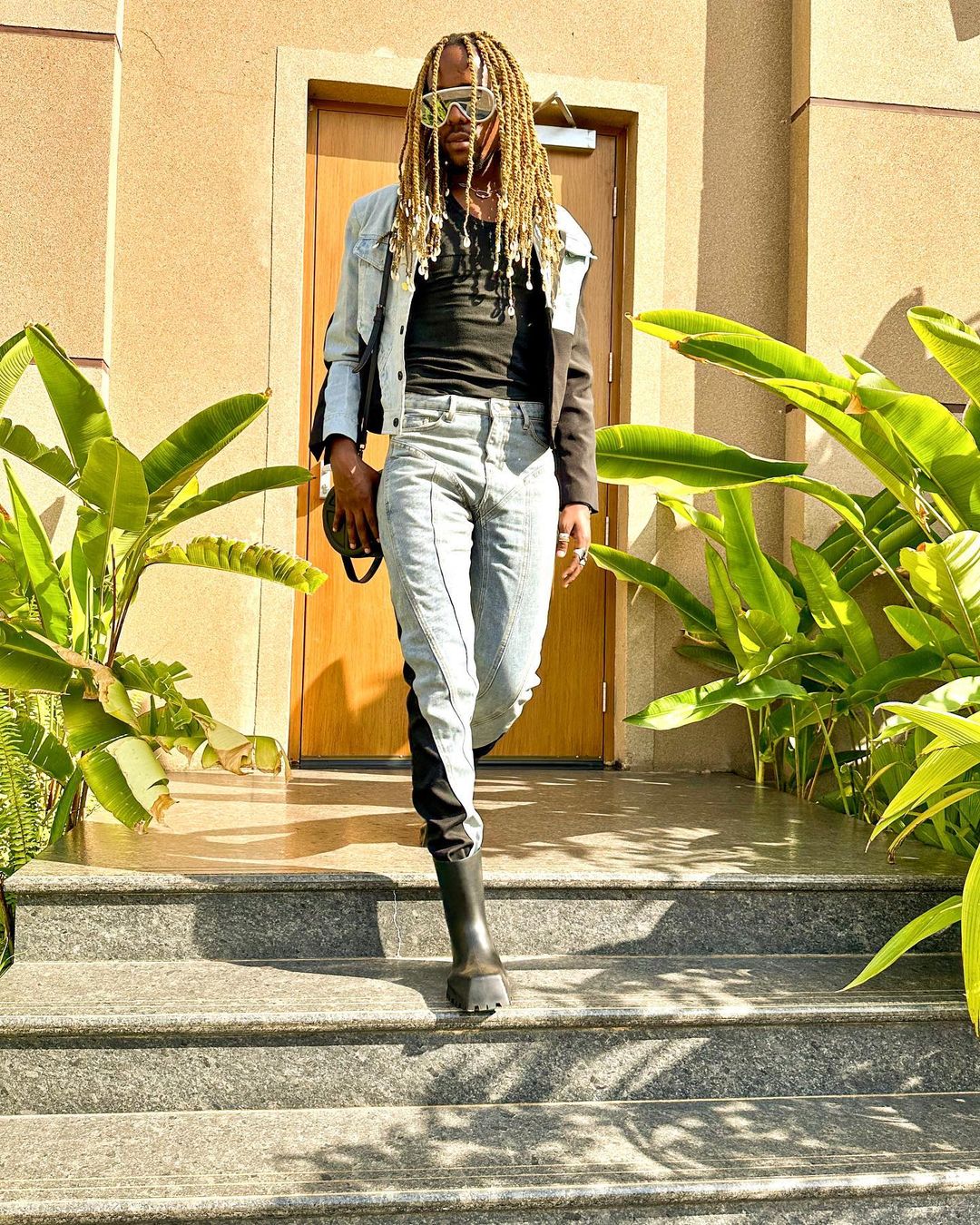

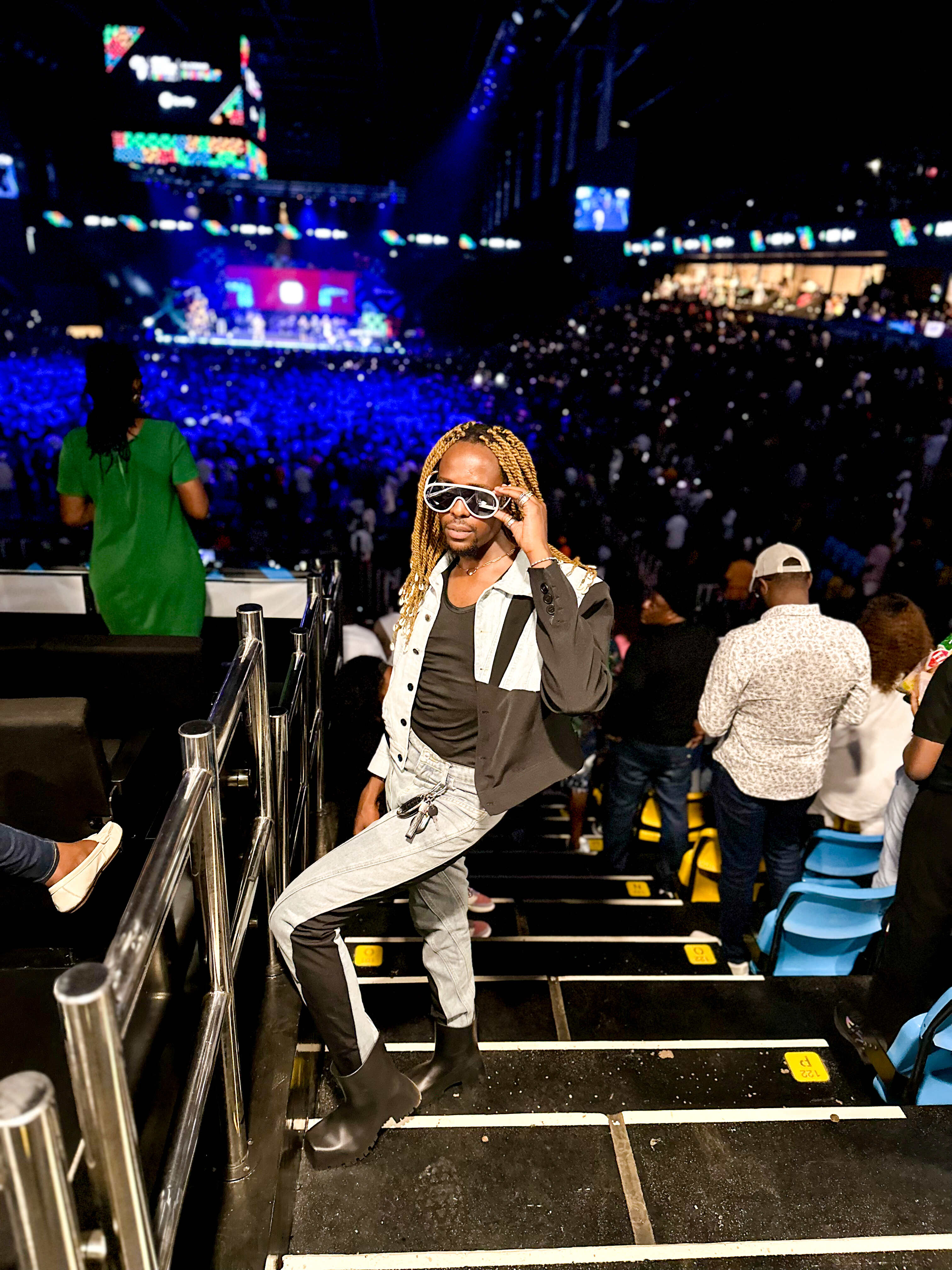
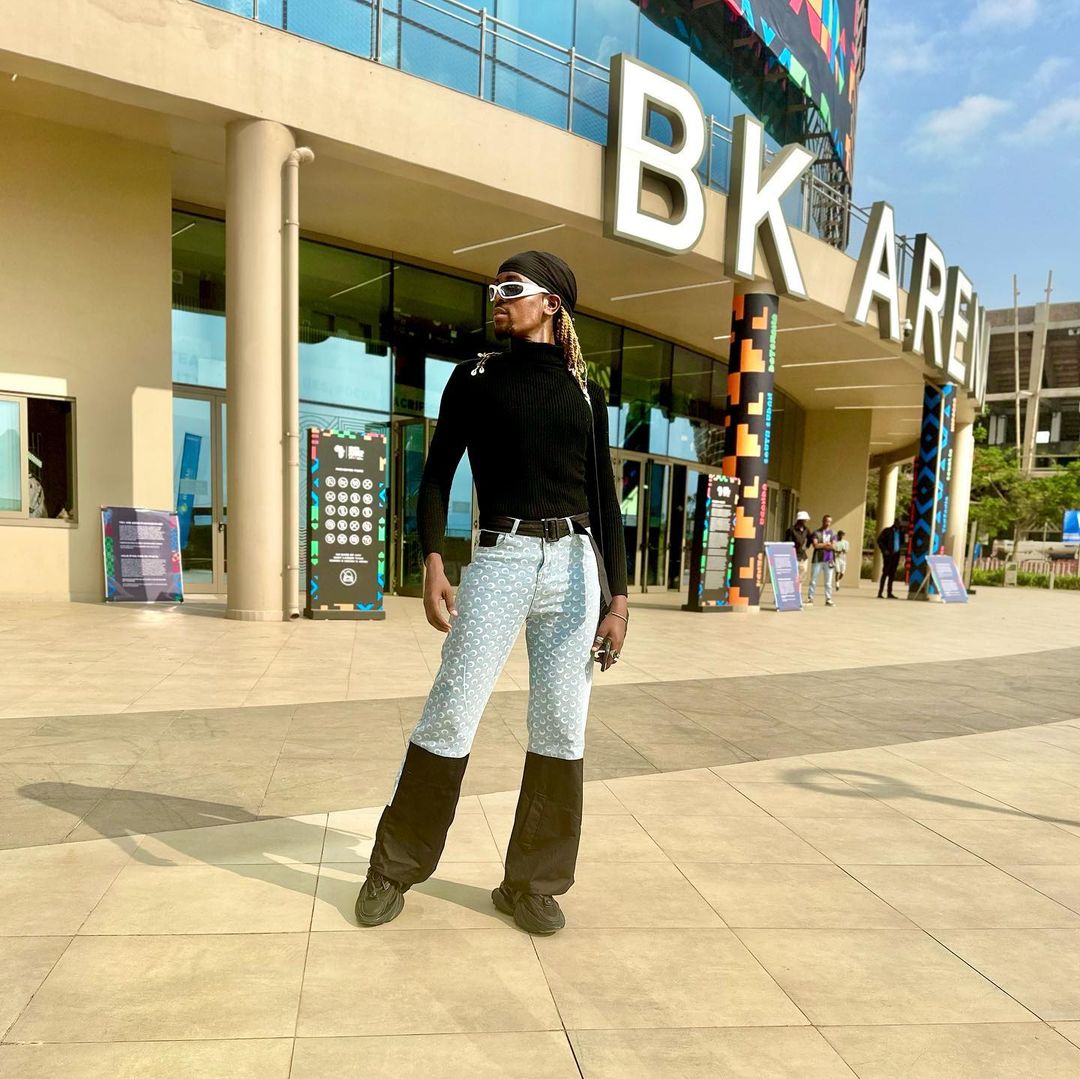

Also read: TANGA DESIGNS: LOVE AND SUSTAINABLE FASHION - NEW COLLECTION 2023
- Olivier Niyitanga, the founder of Tanga Designs in Musanze (Kwita Izina ceremony)
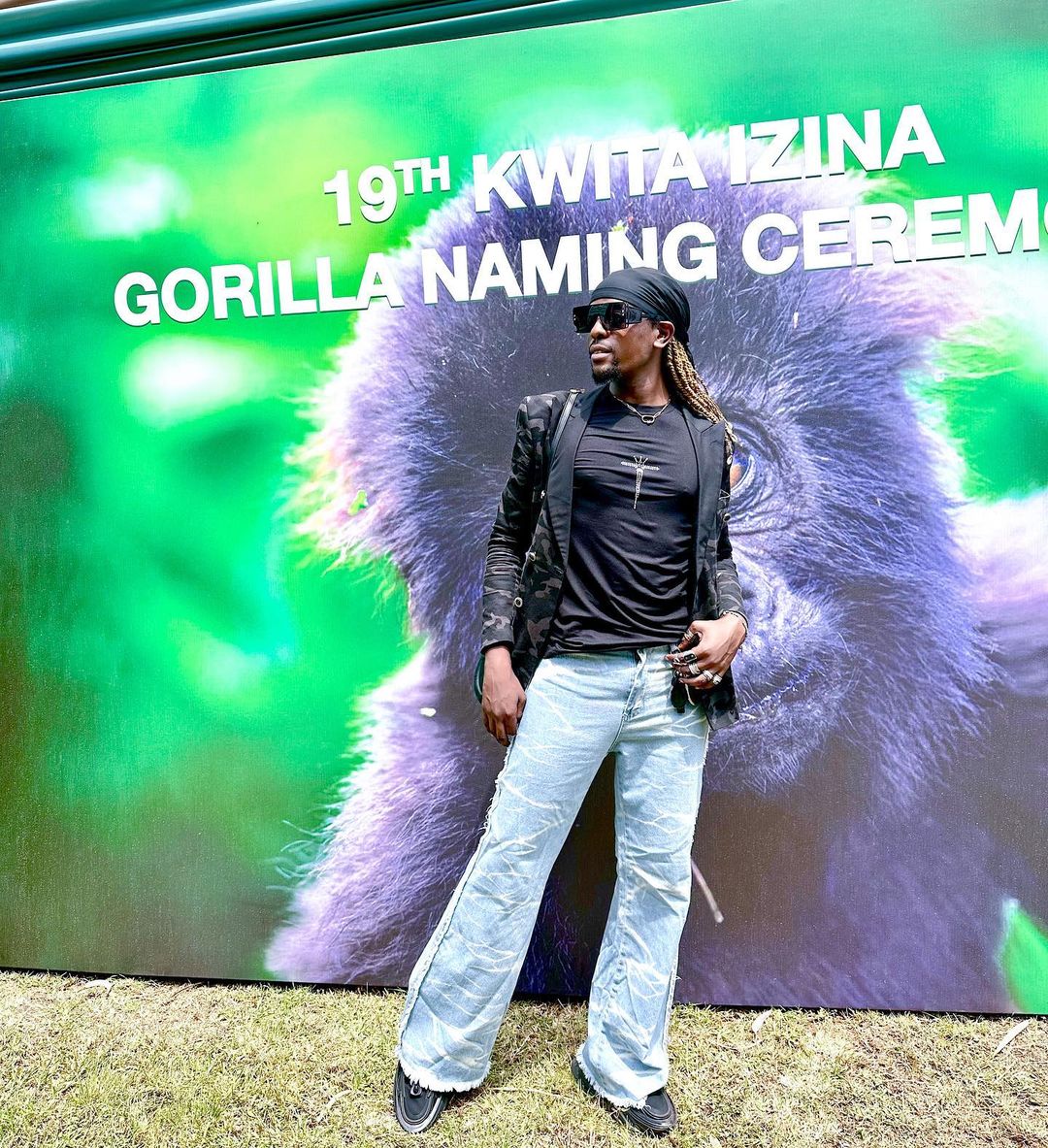
PHOTO: Made by Tanga designs for its CEO & Founder Olivier Niyitanga
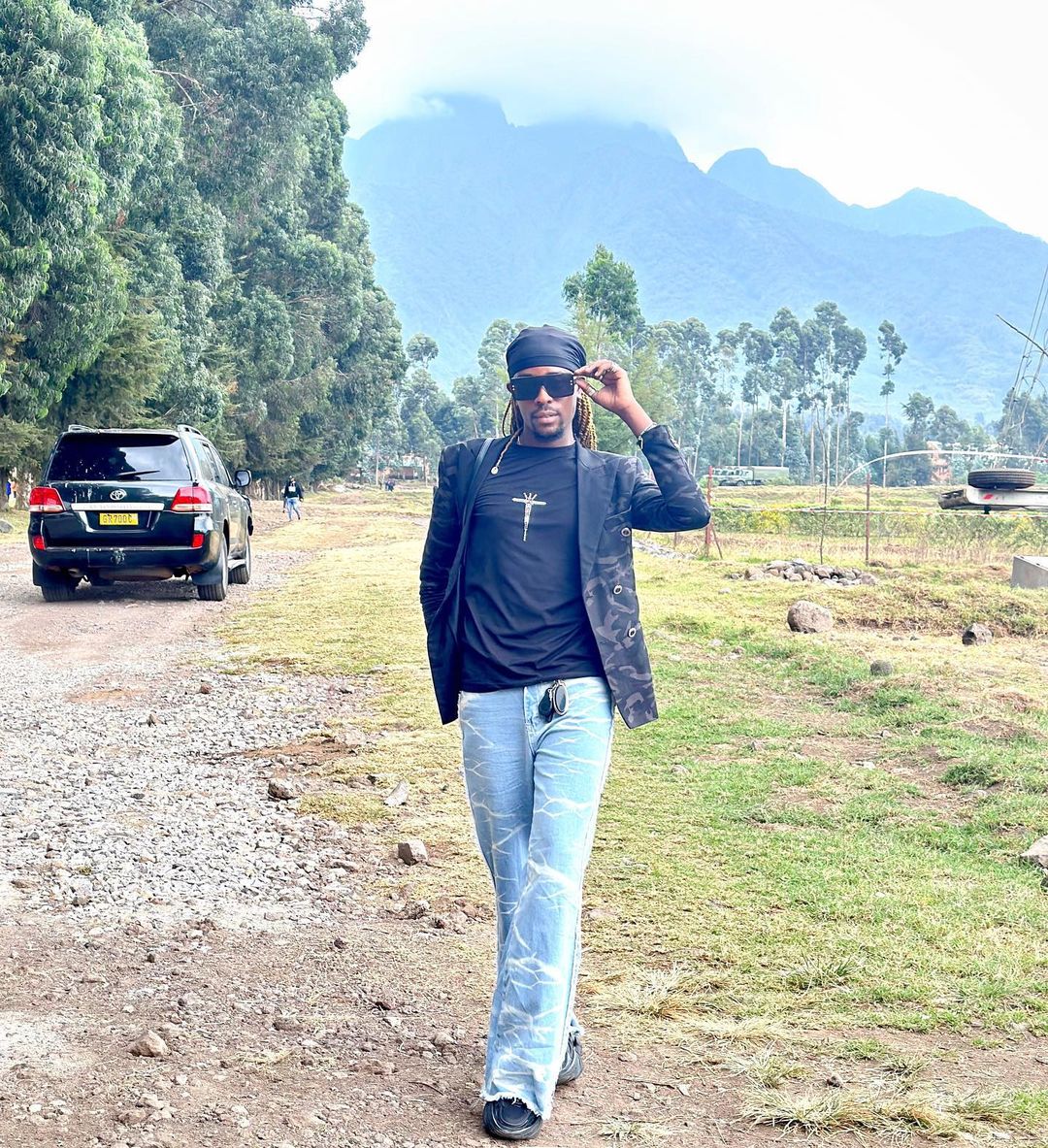
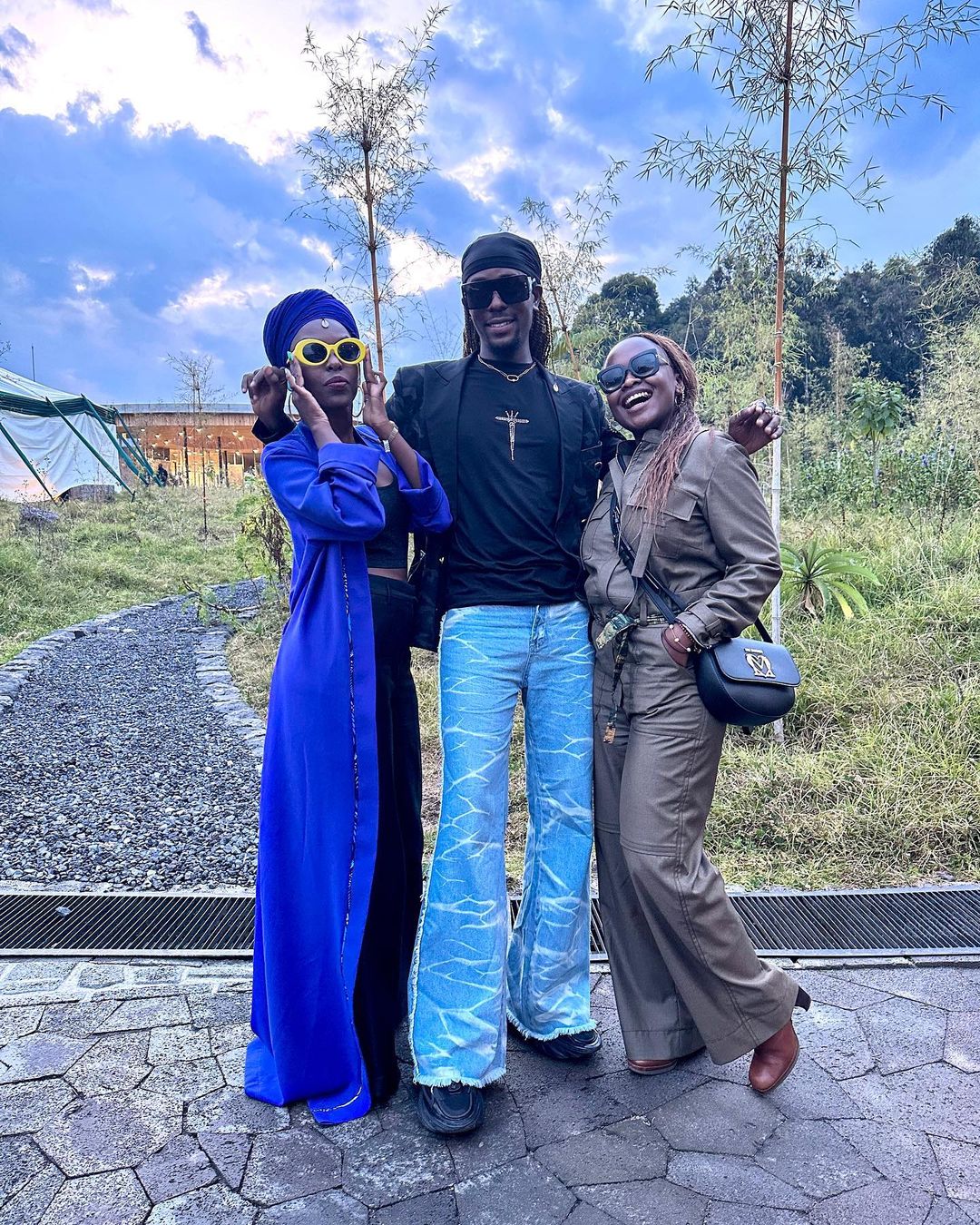
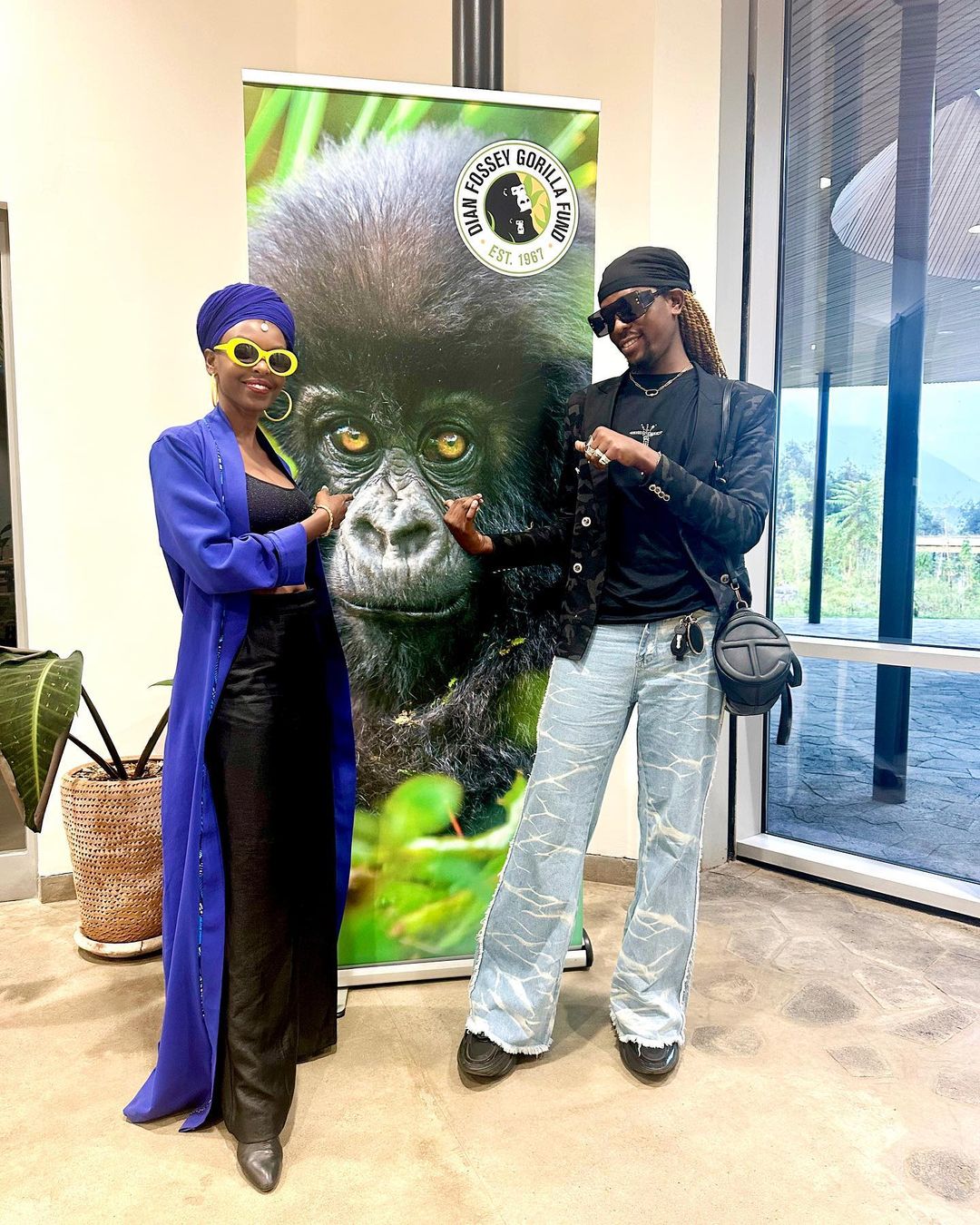
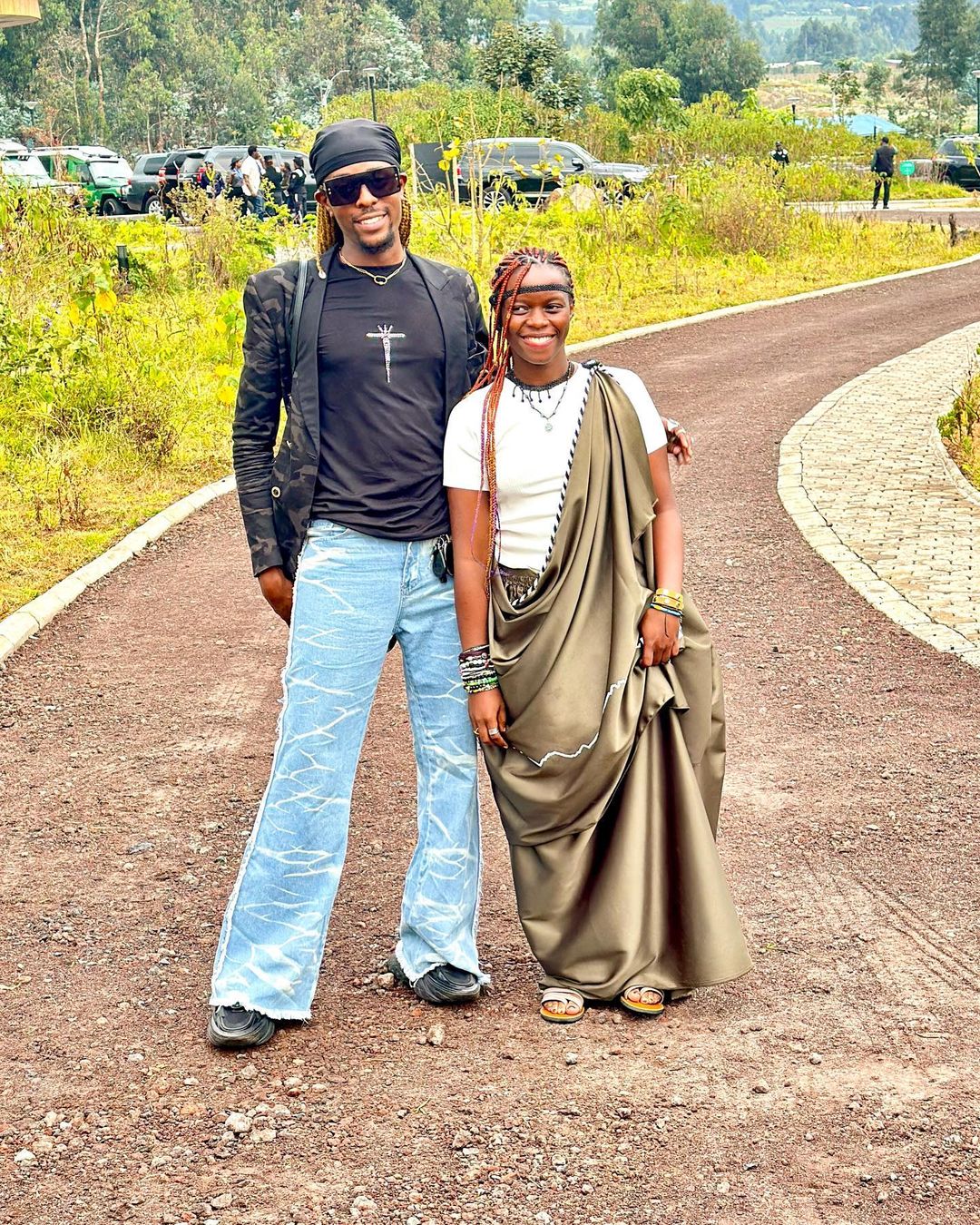
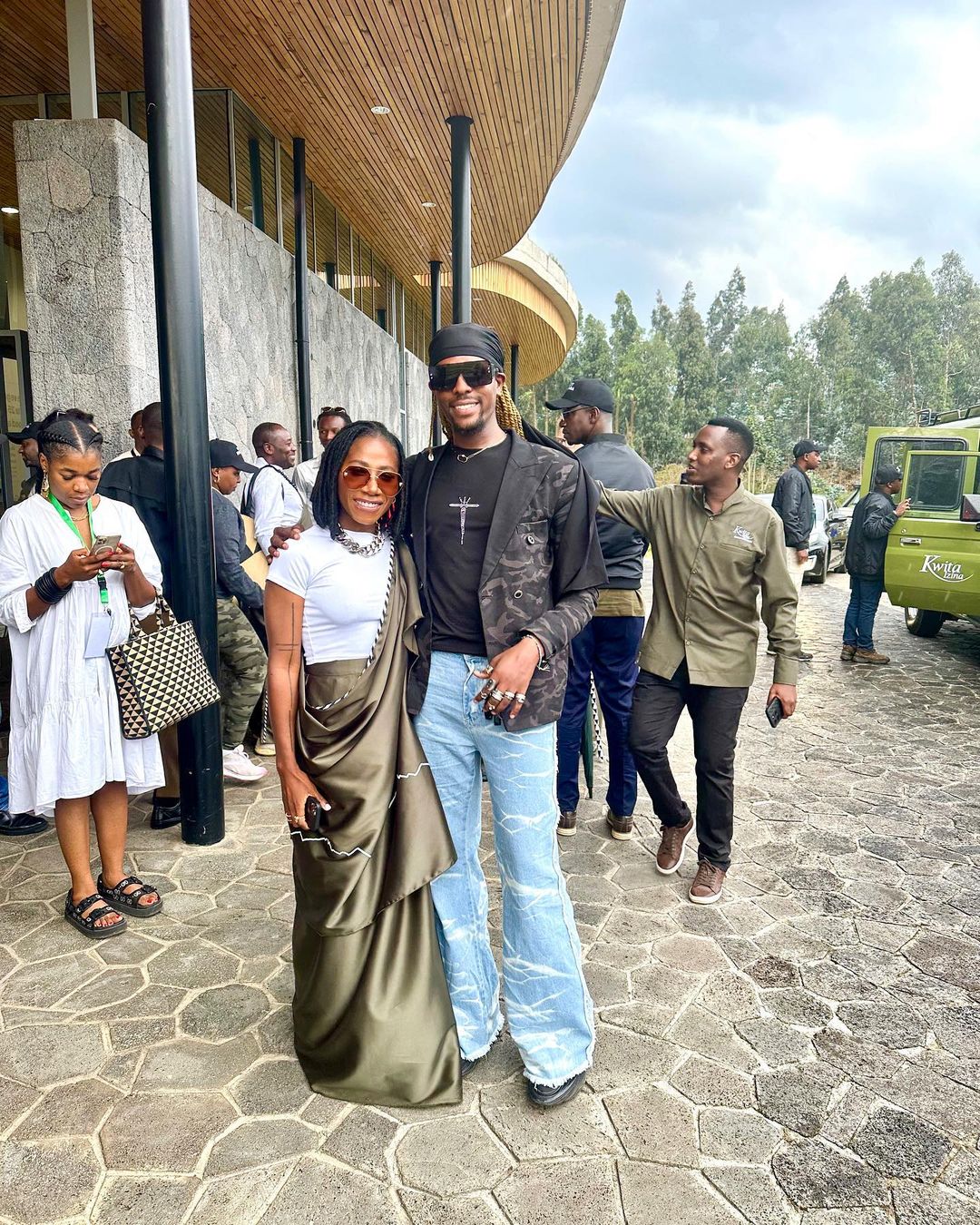
Also Read: ALMOST SOLD OUT: RECENT COLLECTION RELEASED BY TANGA DESIGNS
There is no doubt that African countries are in battle with secondhand clothes to the point where the president of Uganda told his citizens that these clothes belong to dead people, not Ugandans. On August 25th, at the opening ceremony of the Sino-Uganda Mbale industrial park, the president of Uganda, Yoweri Museveni warned Ugandans against the use of second-hand clothes otherwise called thrifts, as a move to promoting home brands and developing the country.
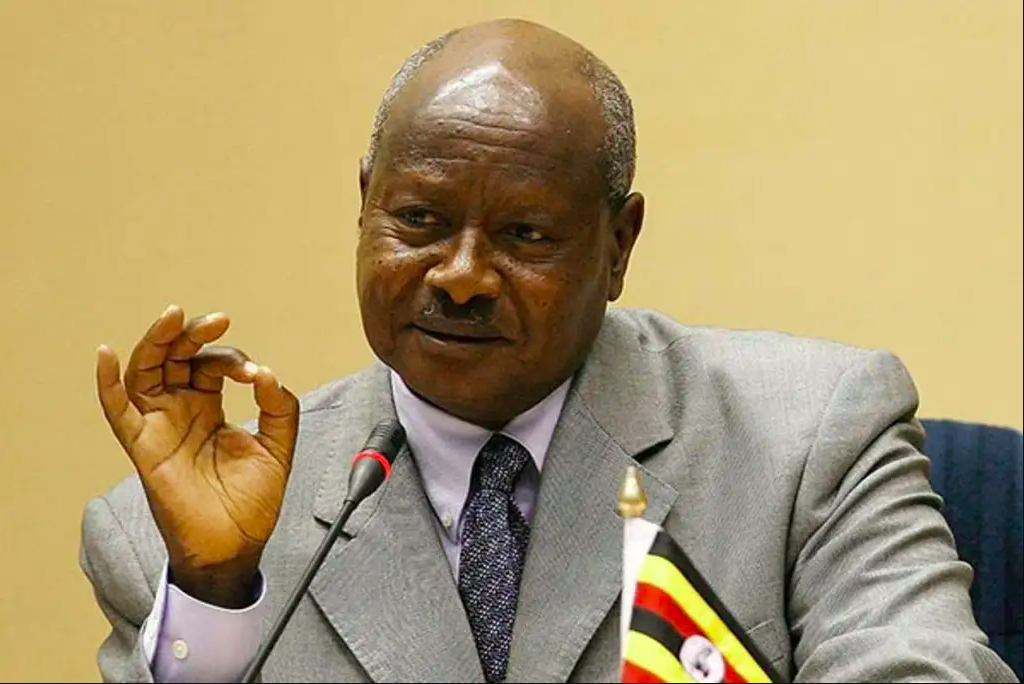 PHOTO: President of Uganda, Yoweri Museveni
PHOTO: President of Uganda, Yoweri Museveni
“Stop buying second-hand clothes. These clothes are for dead people. When they die, they organize the clothes and send them to Africa” Said Yoweri Museveni
However, many experts in fashion and textiles responded to Mr. President “But secondhand clothes don’t come from the dead. That’s not how fast-fashion systems work. People don’t die quickly enough for fast fashion, only trends do” Read a story by Bobby Kolade
President Museveni urged Ugandans to stop patronizing these second-hand clothes, adding that he has declared war on these fairly used items to create job opportunities in the textile industry. He said anyone who goes against his command will be severely dealt with.
“The clothes are shipped here for our people to wear. I wonder who collects them and brings them here. I have decided to put my foot down and say no to imported second-hand clothes. I have declared war on second-clothes to promote African wear.…Anybody who will stand in my way, I will crash him. We will not allow second-hand clothes to enter into the country anymore.” Said Yoweri Museveni
 PHOTOS: President Yoweri Museveni commissioned 16 factories at Sino Uganda-Mbale Industrial Park in Mbale City.
PHOTOS: President Yoweri Museveni commissioned 16 factories at Sino Uganda-Mbale Industrial Park in Mbale City.
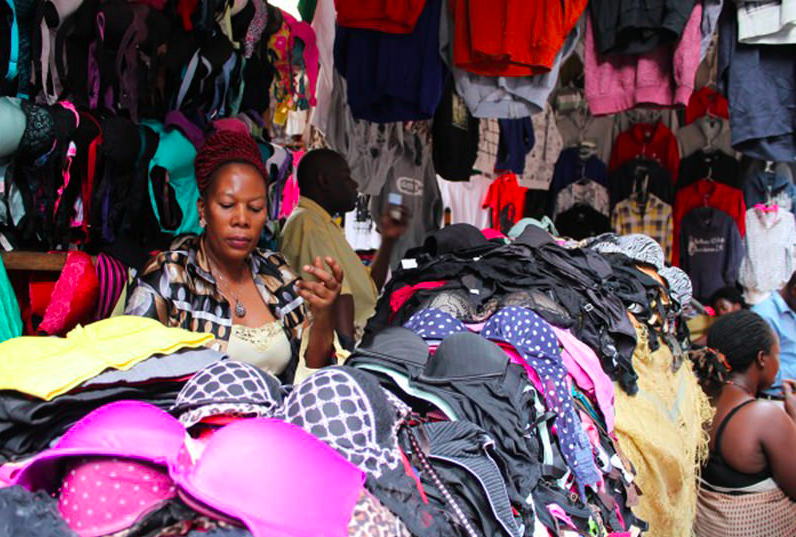 PHOTO: Second-hand clothes Shop in Kampala-Uganda
PHOTO: Second-hand clothes Shop in Kampala-Uganda
In Rwanda in 2017 the Rwanda government also banned these secondhand clothes and increased the taxation for those who would continue to import these luxury clothes according to sellers.
“Secondhand clothes are a good deal, I used to go to Nyabugogo and grab 20 pieces and move around the neighborhoods in Kigali by the end of the day, all clothes were already sold and my clients kept asking me to bring more because secondhand clothes are affordable by everyone,” Second Hand clothes seller in Kigali told the RCFS’s Media
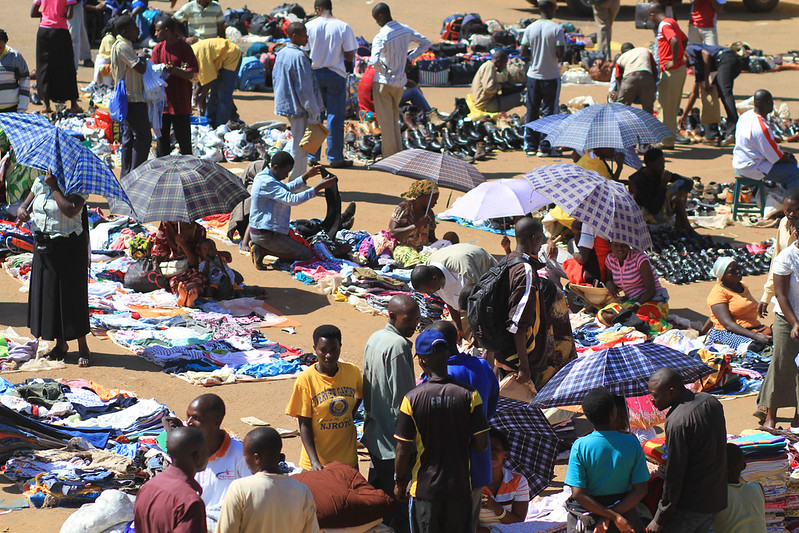 PHOTO: Second-hand clothes sellers in 2011 at, Nyabugogo Bus station and market, In Kigali-Rwanda
PHOTO: Second-hand clothes sellers in 2011 at, Nyabugogo Bus station and market, In Kigali-Rwanda
It is still hard to know who will win this battle but in Rwanda, there is a positive and negative impact on banning secondhand clothes. Positive: As of now Rwanda has more than 50 local fashion designers and citizens are getting to understand to wear made in Rwanda clothes even though some people still complaining about their prices. Negative: According to reports and statistics after banning second-hand clothes in Rwanda more than 40,000 people lost their jobs which impacted their family revenues and forced them to find other jobs to do which is hard for them as the unemployment rate in Rwanda continues to increase.
As the Rwanda fashion industry continues to gain traction globally, local fashion designers are increasingly mixing traditional ideas to come up with unique wearable trends. Rwanda's Moses Turahirwa, the creative director and founder of the Moshions brand inspired by his own cultural roots, Turahirwa pays homage to the visual storytelling tradition found in Rwanda and across the African continent.
Yesterday, on the 7th of September 2023, the known brand from Rwanda surprised fashion lovers in the capital city of Zimbabwe, Lusaka where he showcased a variety of his creations with unique touches and enjoyable colors reflecting Rwanda's culture and unique fabrics designed by the Moshions.
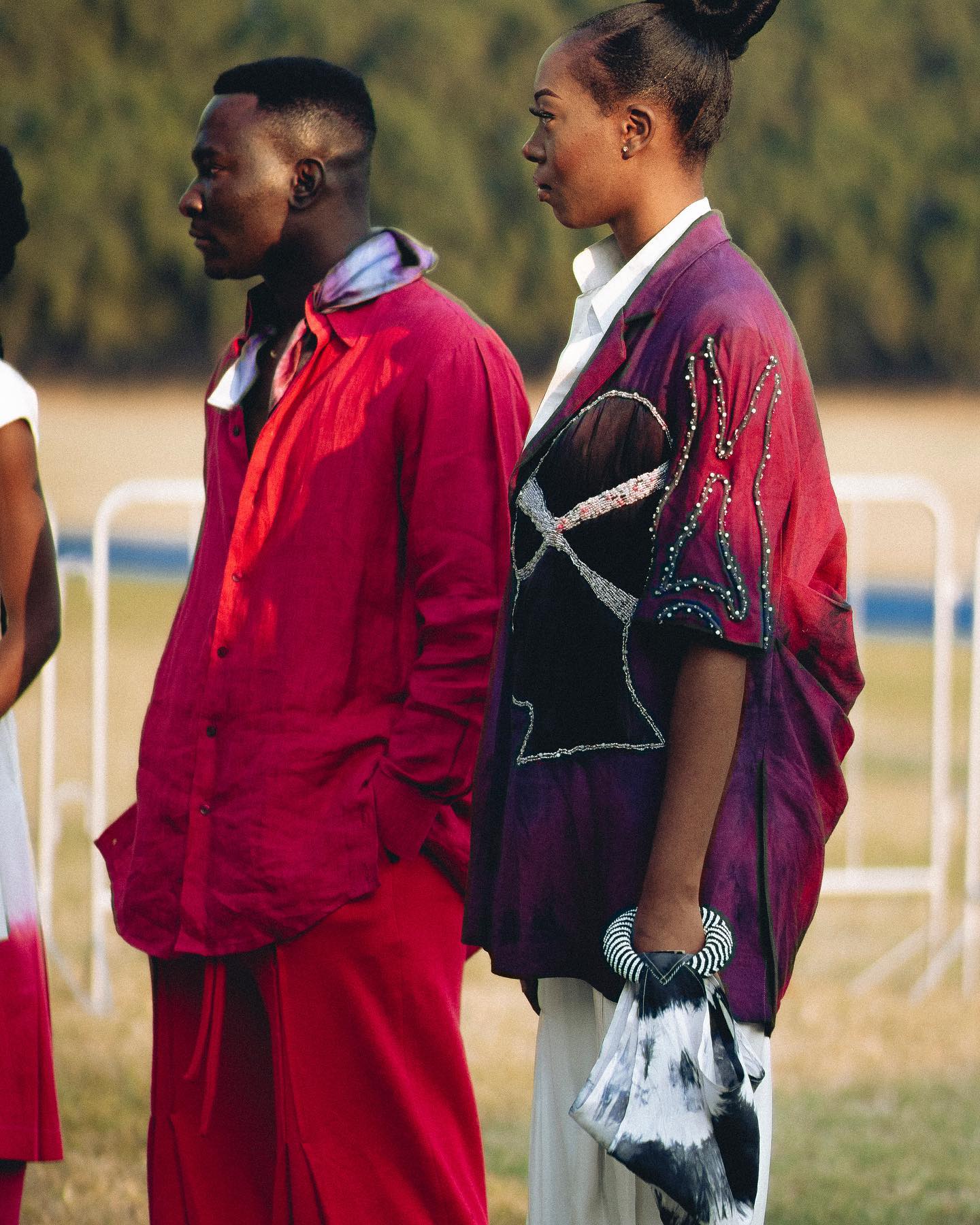 PHOTO: Designs by Moshions (September 7, 2023, in Lusaka, Zimbabwe)
PHOTO: Designs by Moshions (September 7, 2023, in Lusaka, Zimbabwe)
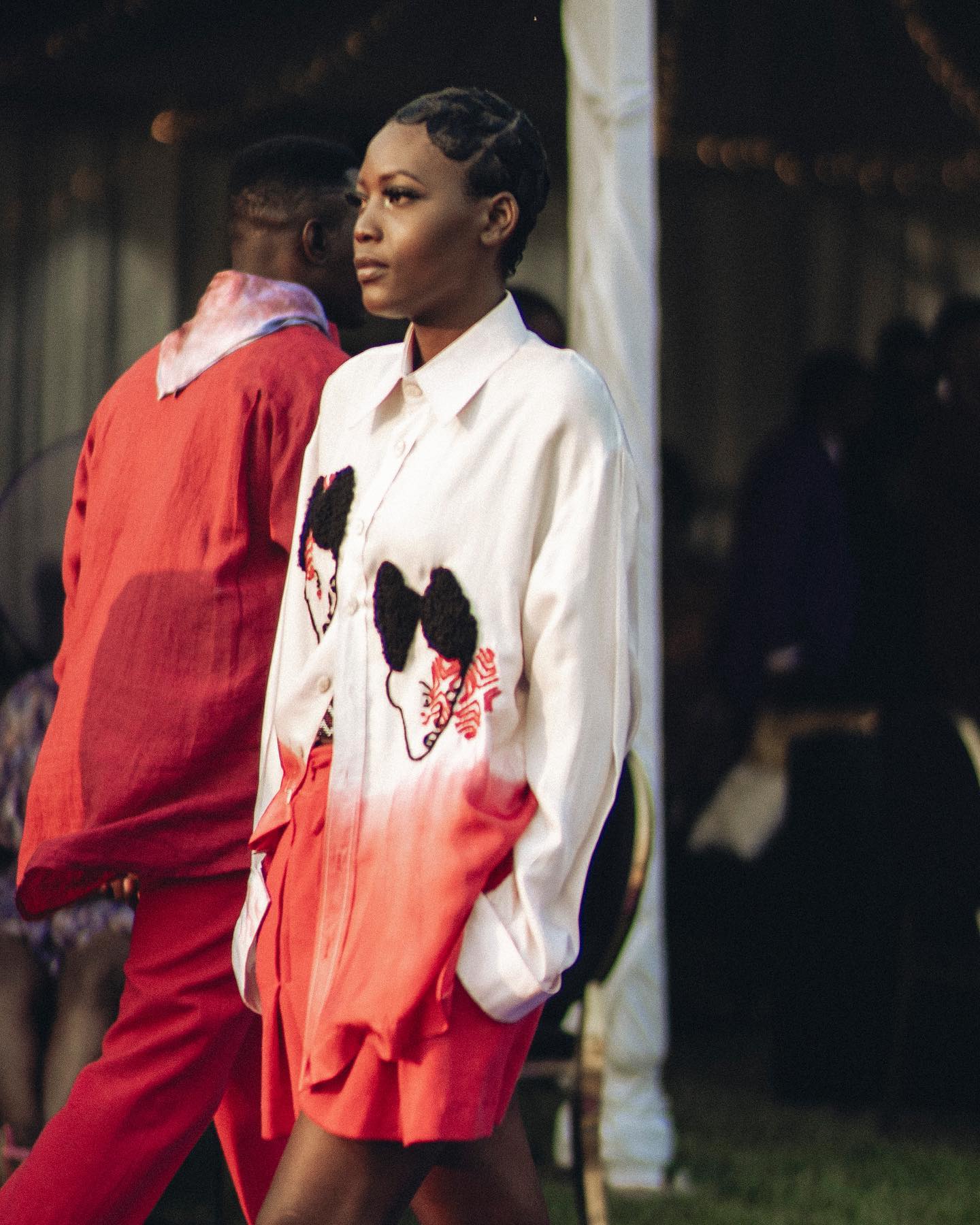 PHOTO: Design by Moshions (September 7, 2023, in Lusaka, Zimbabwe)
PHOTO: Design by Moshions (September 7, 2023, in Lusaka, Zimbabwe)
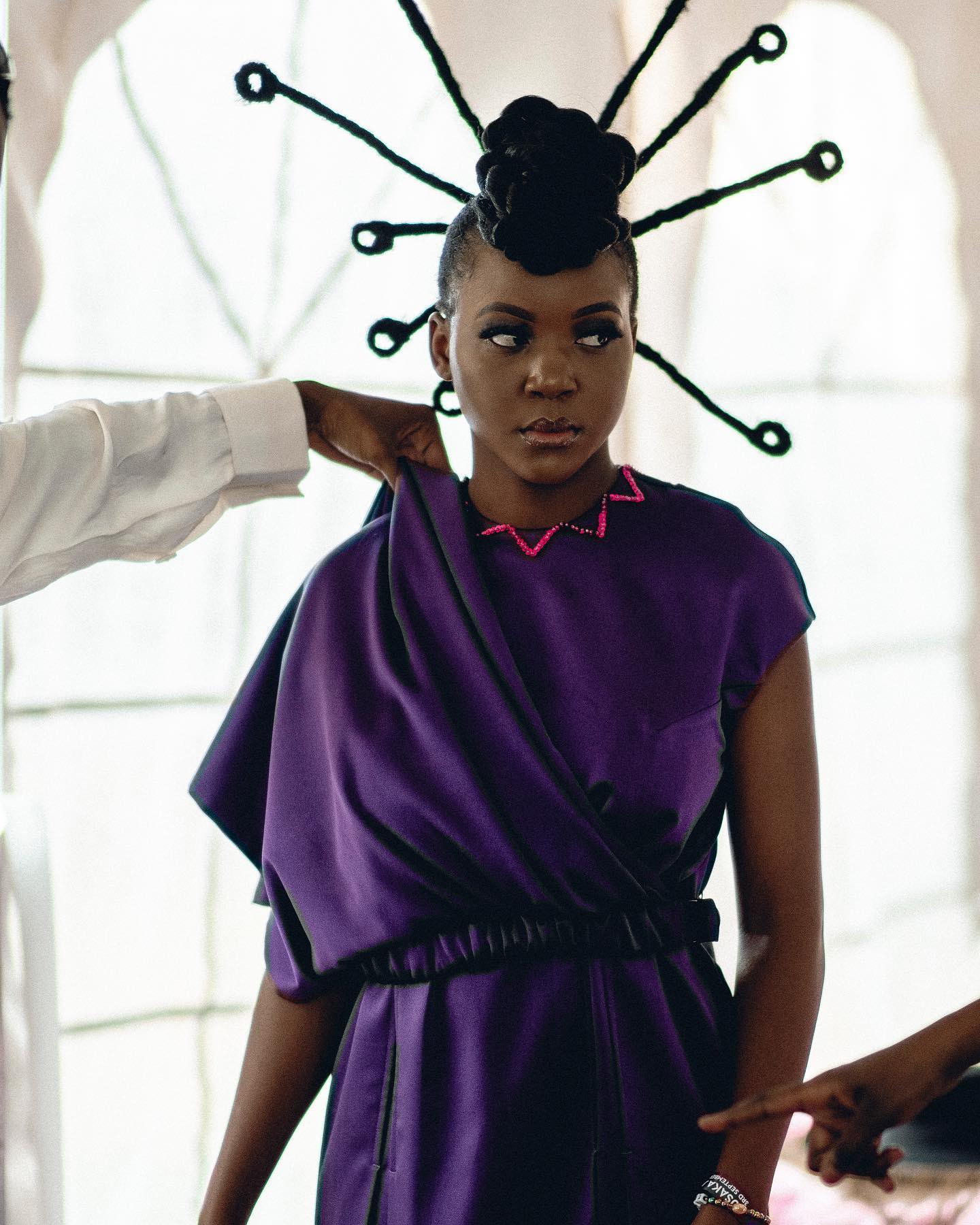 PHOTO: Design by Moshions (September 7, 2023, in Lusaka, Zimbabwe)
PHOTO: Design by Moshions (September 7, 2023, in Lusaka, Zimbabwe)
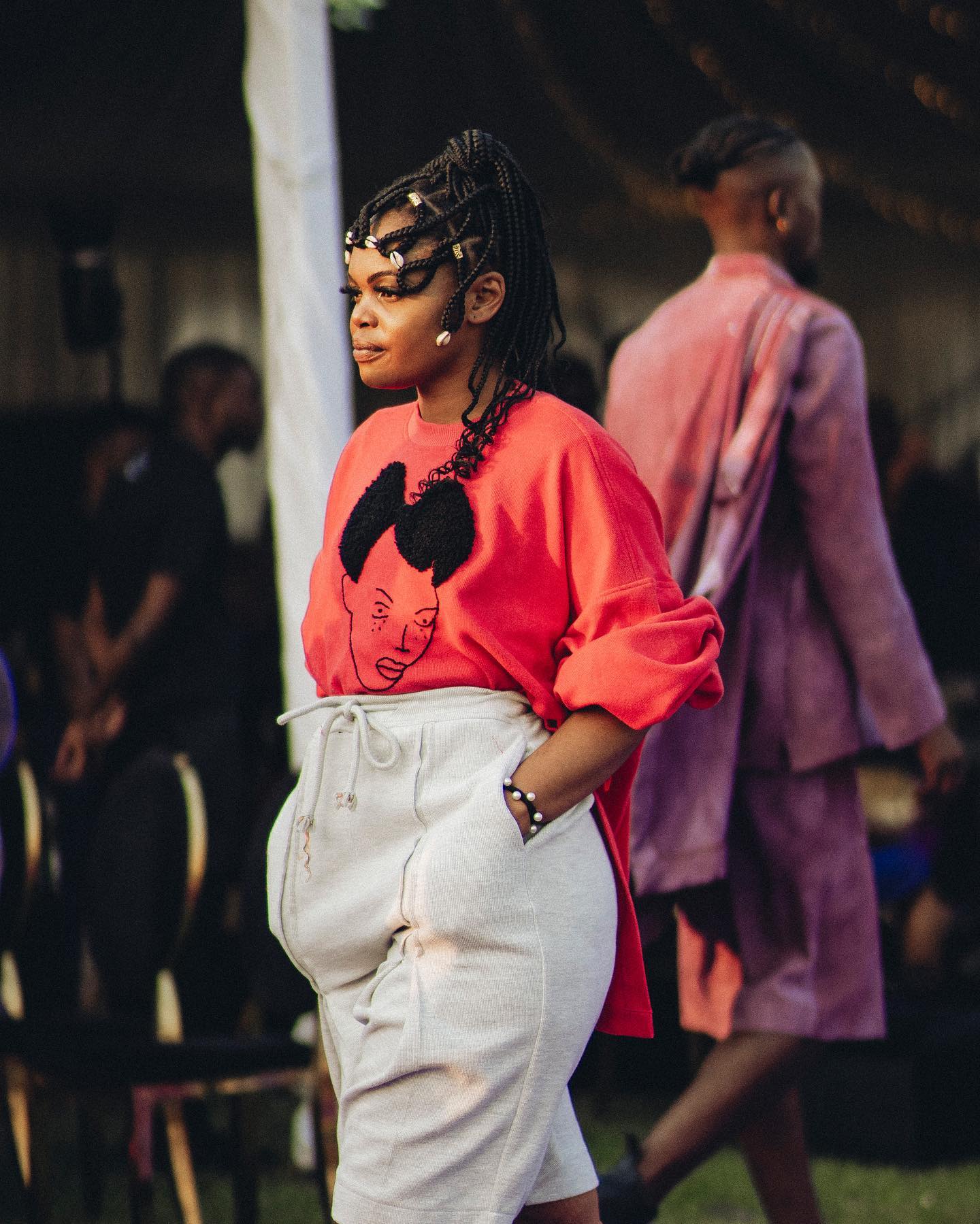 PHOTO: Design by Moshions (September 7, 2023, in Lusaka, Zimbabwe)
PHOTO: Design by Moshions (September 7, 2023, in Lusaka, Zimbabwe)
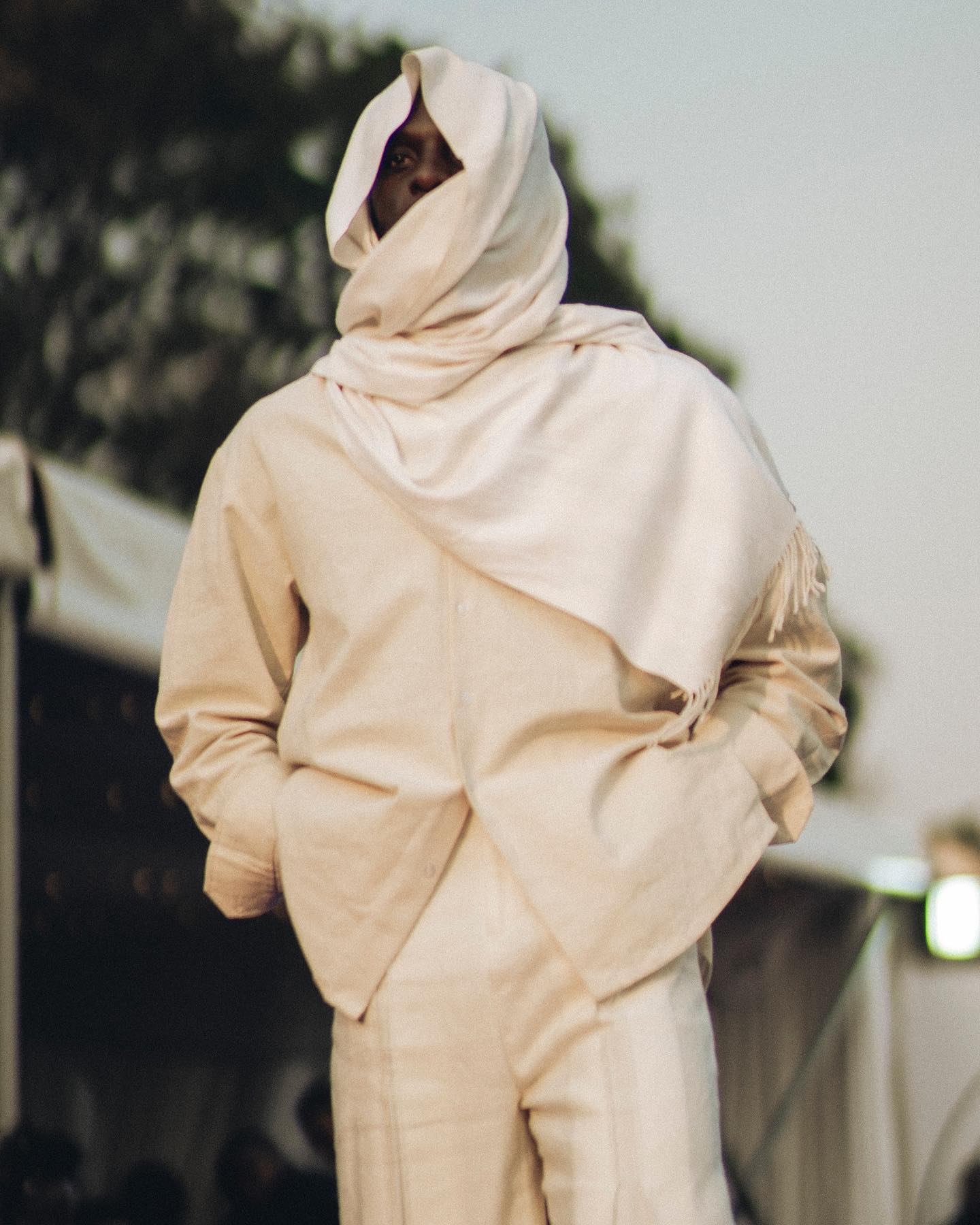 PHOTO: Design by Moshions (September 7, 2023, in Lusaka, Zimbabwe)
PHOTO: Design by Moshions (September 7, 2023, in Lusaka, Zimbabwe)
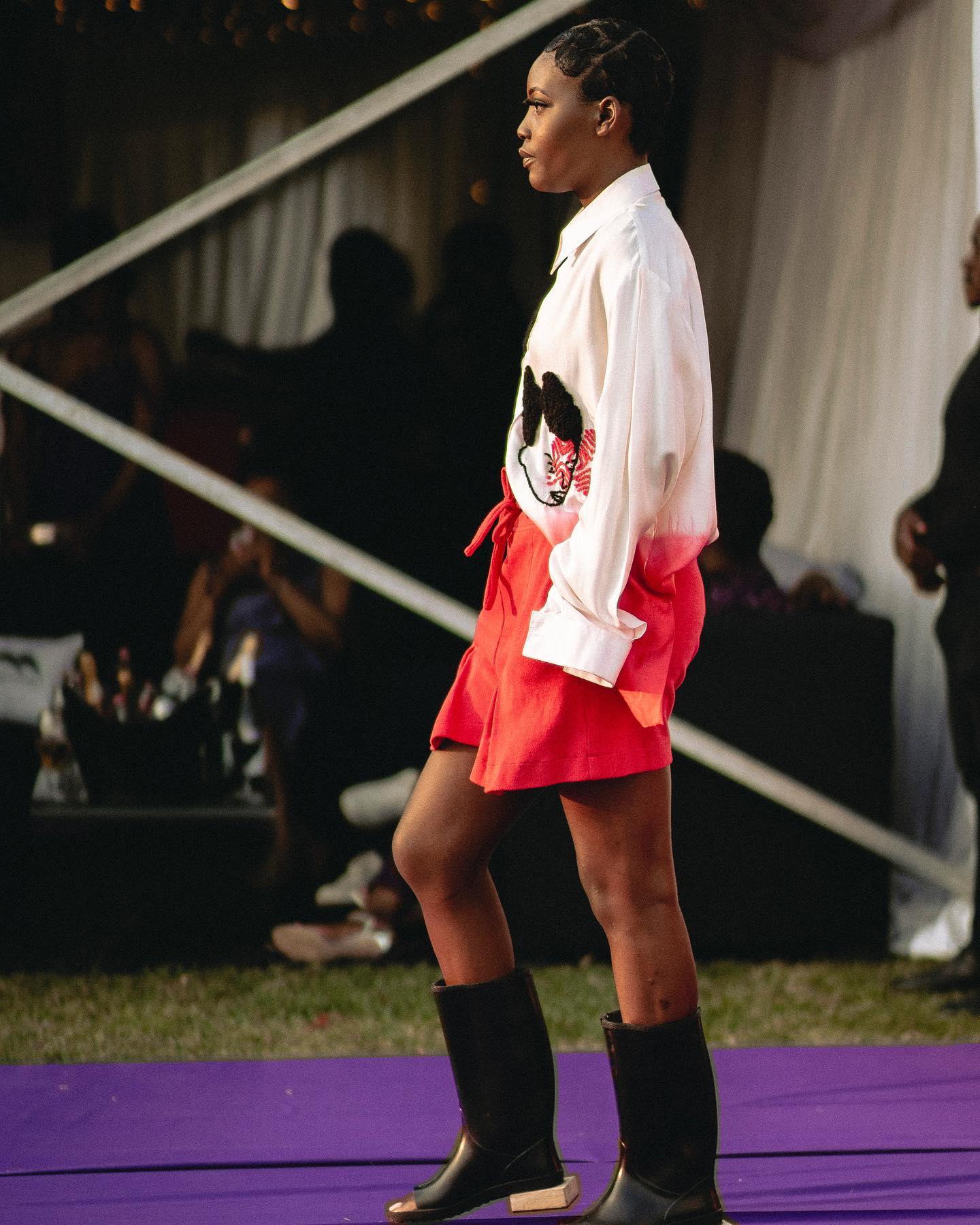 PHOTO: Design by Moshions (September 7, 2023, in Lusaka, Zimbabwe)
PHOTO: Design by Moshions (September 7, 2023, in Lusaka, Zimbabwe)
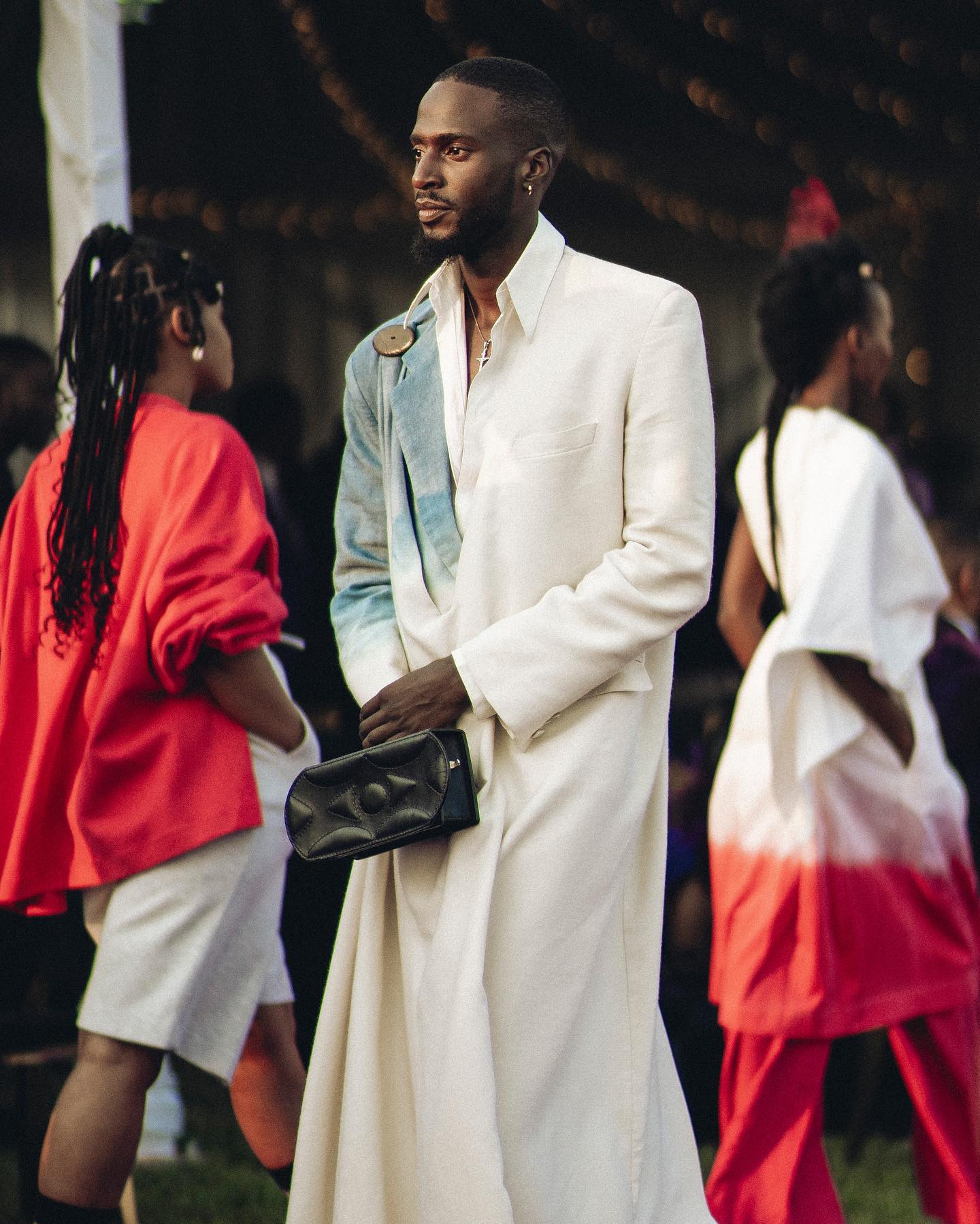 PHOTO: Designs by Moshions (September 7, 2023, in Lusaka, Zimbabwe)
PHOTO: Designs by Moshions (September 7, 2023, in Lusaka, Zimbabwe)
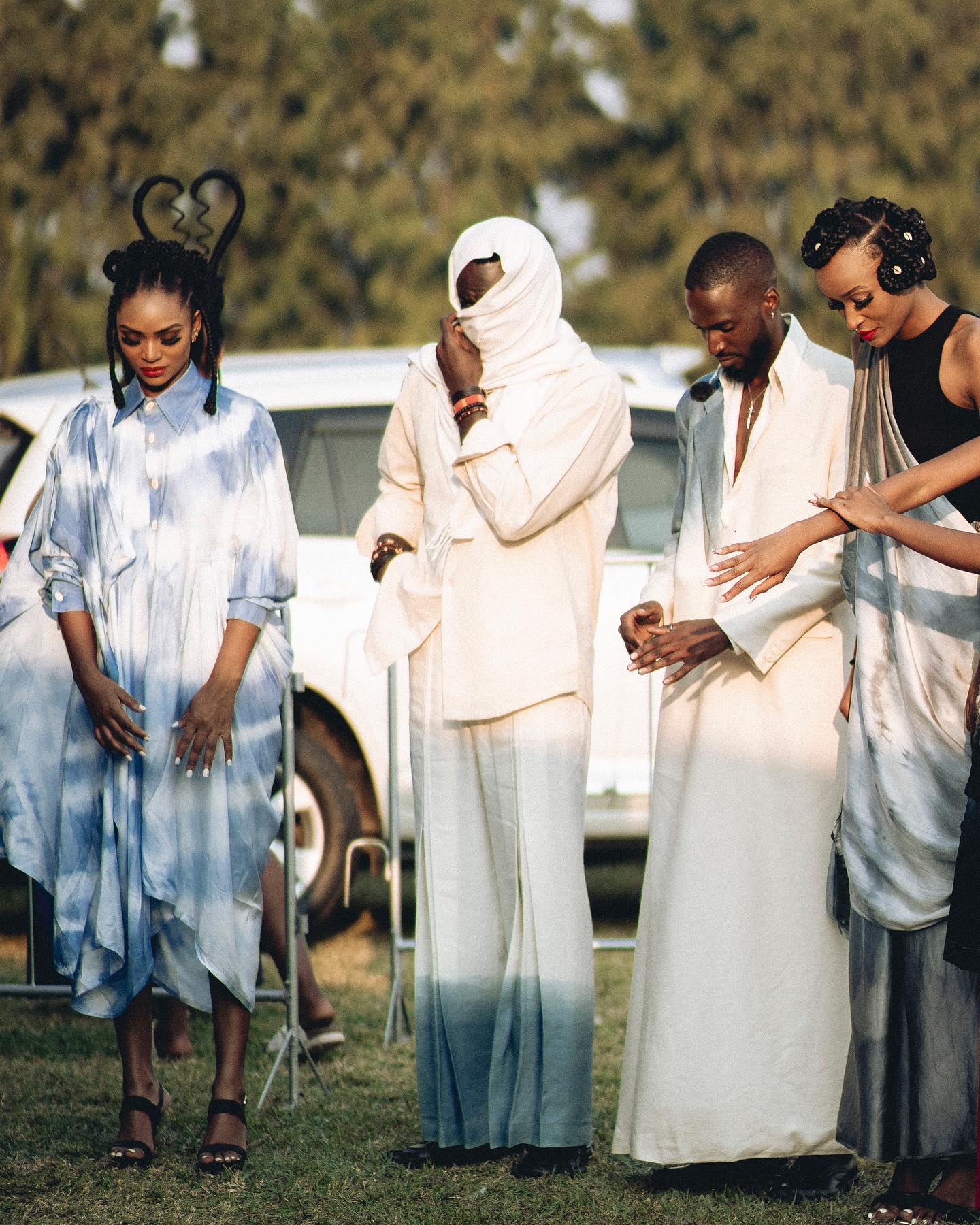 PHOTO: Designs by Moshions (September 7, 2023, in Lusaka, Zimbabwe)
PHOTO: Designs by Moshions (September 7, 2023, in Lusaka, Zimbabwe)
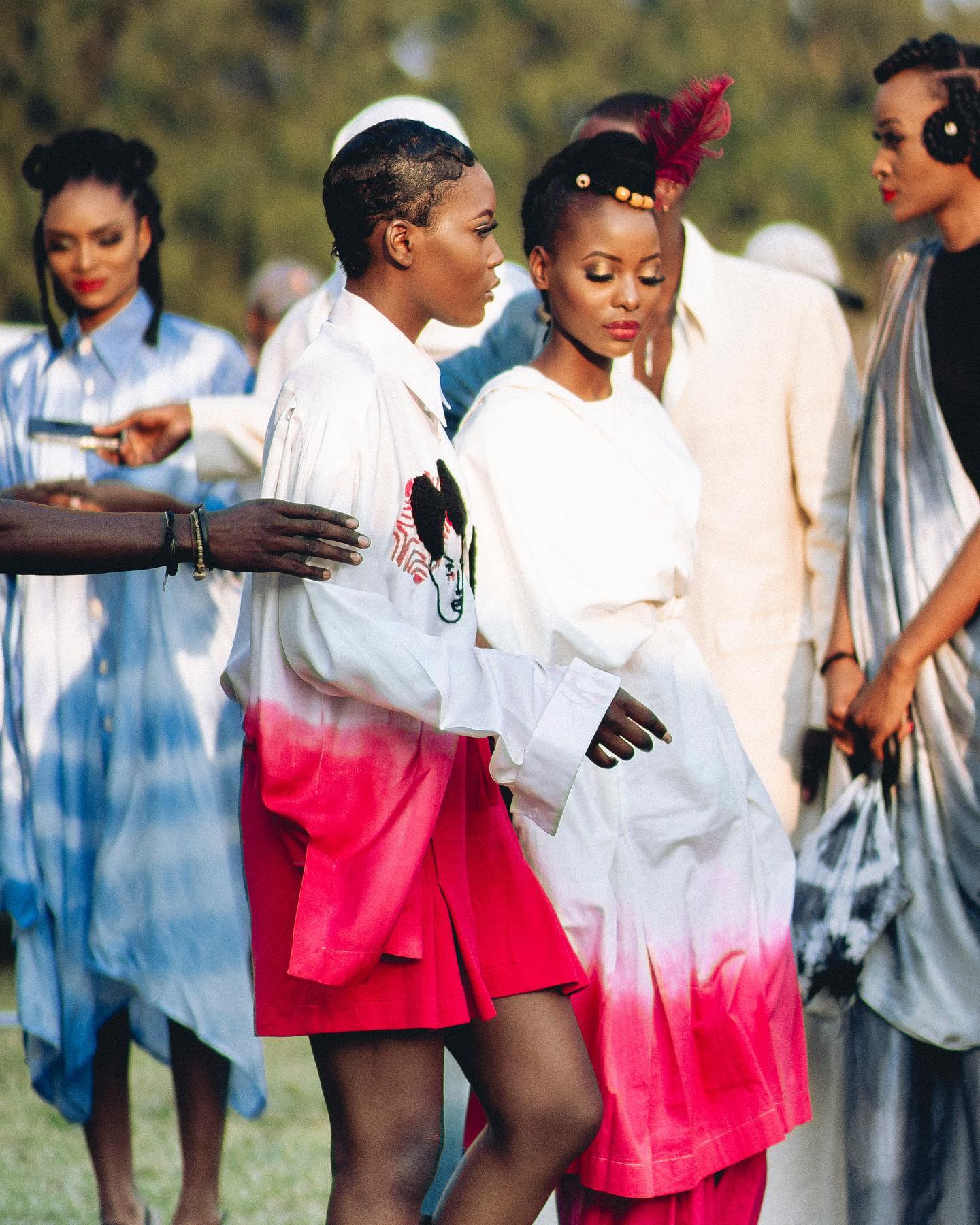 PHOTO: Designs by Moshions (September 7, 2023, in Lusaka, Zimbabwe)
PHOTO: Designs by Moshions (September 7, 2023, in Lusaka, Zimbabwe)
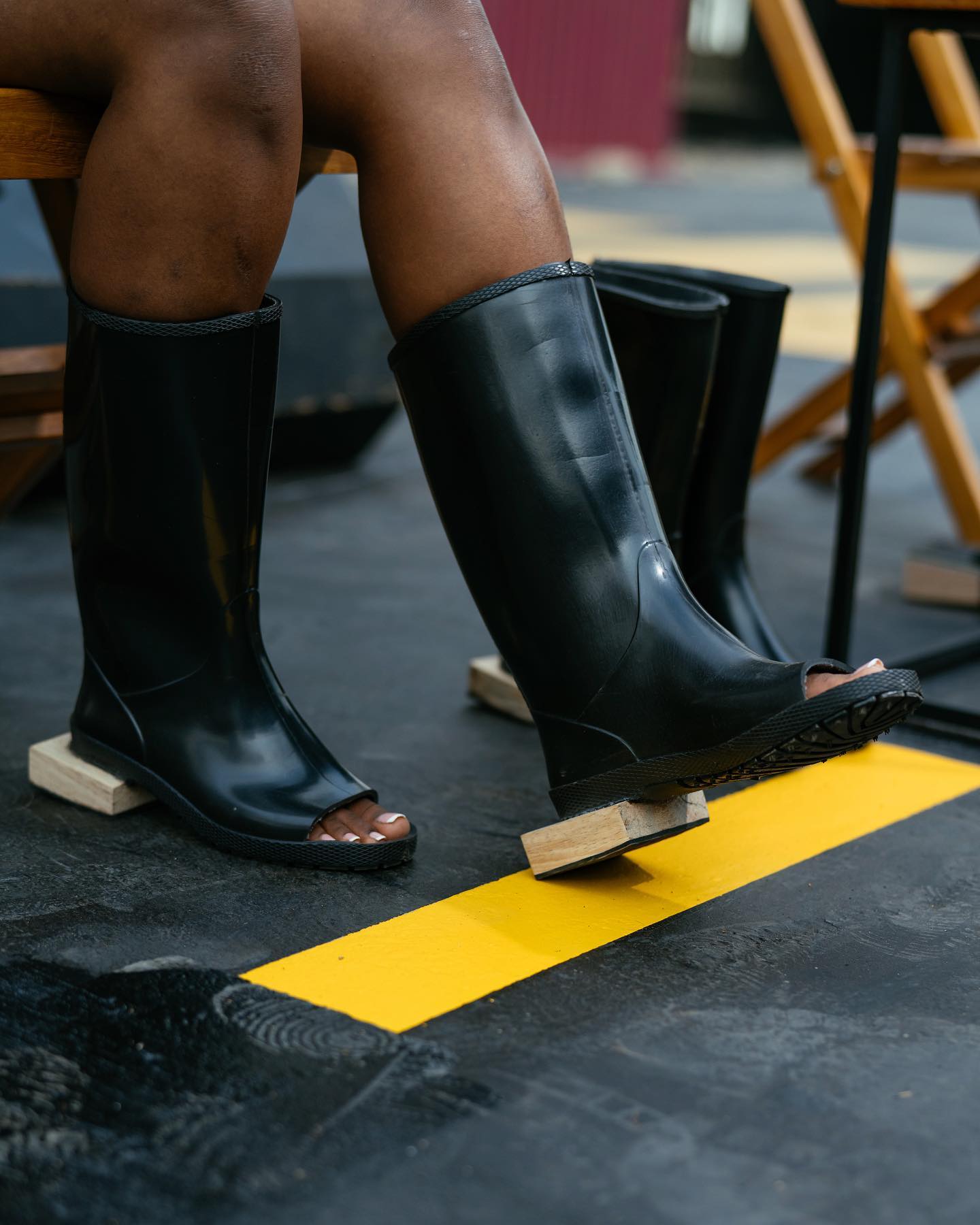 PHOTO: Shoes Design by Moshions (September 7, 2023, in Lusaka, Zimbabwe)
PHOTO: Shoes Design by Moshions (September 7, 2023, in Lusaka, Zimbabwe)
"Support each other through collection making or support one another if one has a fashion show so that we can all grow together. So, we decided to have our first edition of putting our ideas into action on October 13th, 2023. Our fashion show is aimed at empowering young fashion designers and connecting them to a wider audience" said Derrick Mugisha Spokesperson of the NFE
 PHOTO: Poster with information about the NFE2023, Designs by Maison Inkingi.
PHOTO: Poster with information about the NFE2023, Designs by Maison Inkingi.
According to Mugisha, the NFE's members will profit from this collective which will continue to welcome them to a world of Fashion where their creativity is limitless, connect potential fashion buyers with amazing local fashion designers, and fuse fashion with storytelling and NFE being a space for them to create and showcase their various inspired looks.
During the interview with the RCFS's Media, the spokesperson of the NFE answered the questions About their upcoming edition the NFE2023 scheduled on the 13th of October, and other questions about the fashion industry in general.
Journalist:
- How many fashion member designers do you have in the NFE2023 edition? Are they any international?
"We currently have 5 members including MATHEO STUDIO, SHEMA GAETAN, MAISON INKINGI, KONI CLOTHING, AND FASHION FORWARD (which will be represented by BRAND 8). And there are no international designers yet. We didn't want to include them for our first show as we are bringing it in a way of introducing NFE to people and we have limited time as it's our first edition so we didn't want the event to be that long, but we will definitely add them in our second edition next year." said Mugisha the Spokesperson of the NFE
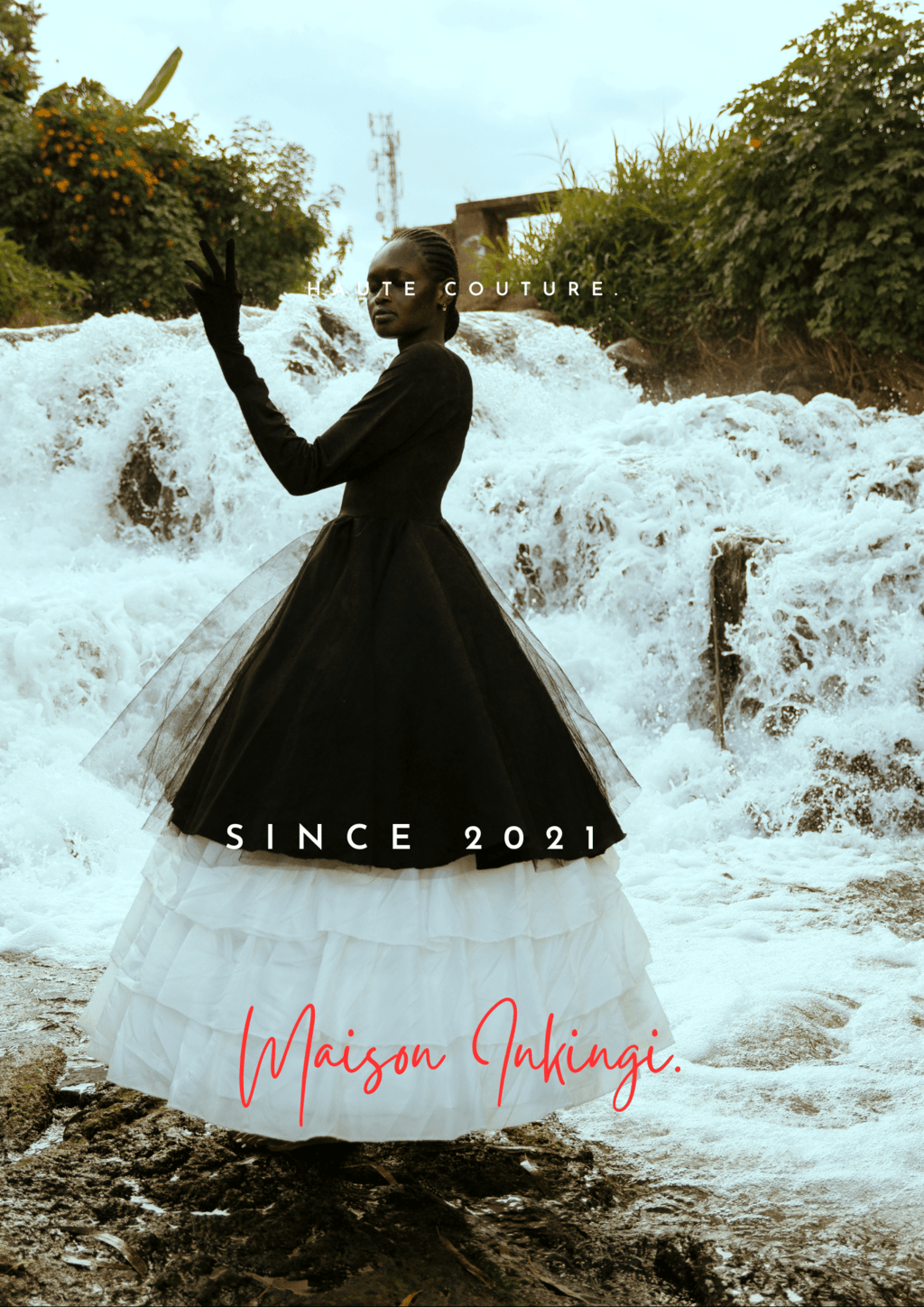 PHOTO: Designed by Maison Inkingi.
PHOTO: Designed by Maison Inkingi.
Journalist:
- We had an interview with one of your members the owner of the Matheo Brand and he told us that the NFE 2023 is going to be unique. can you tell us more about this event? Location? Price? Uniqueness?
"We said more about this event above on the first question but what we can add on is that Novelty Fashion Show is a great platform, especially for emerging designers. We believe it's going to bring exposure to many artists/creatives or Fashion designers and we believe that many will connect from the event and the event will bring an impact in one way or the other.
This event going to take place at L'ESPACE near Kigali Library or opposite the American Embassy. This event's entrance price will be 15,000RWF and the uniqueness is that most of our showcasing fashion designers will be showcasing with different styles where some have Haute couture, Ready to wear, Street, and Recycling. And also, another interesting thing is that we are all designers below 26 years of age which we believe will be inspiring to the young generation that we want to empower." Said Mugisha the Spokesperson of the NFE
Journalist:
- Some fashion lovers in Kigali have been complaining that there is a copy-and-paste among local fashion designers. Do you have this in your crew as a challenge as well? If yes, what do you do to against counterfeiting among your members?
"Well so far we don't have such a case in our collective because we believe in the beauty of creating your own which always brings us closer and grows our bond because we know that we are in a safe place and if such happens maybe in the future then we can discuss about that because we believe in unity and that's why we formed this collective NFE" ." Said Mugisha the Spokesperson of the NFE
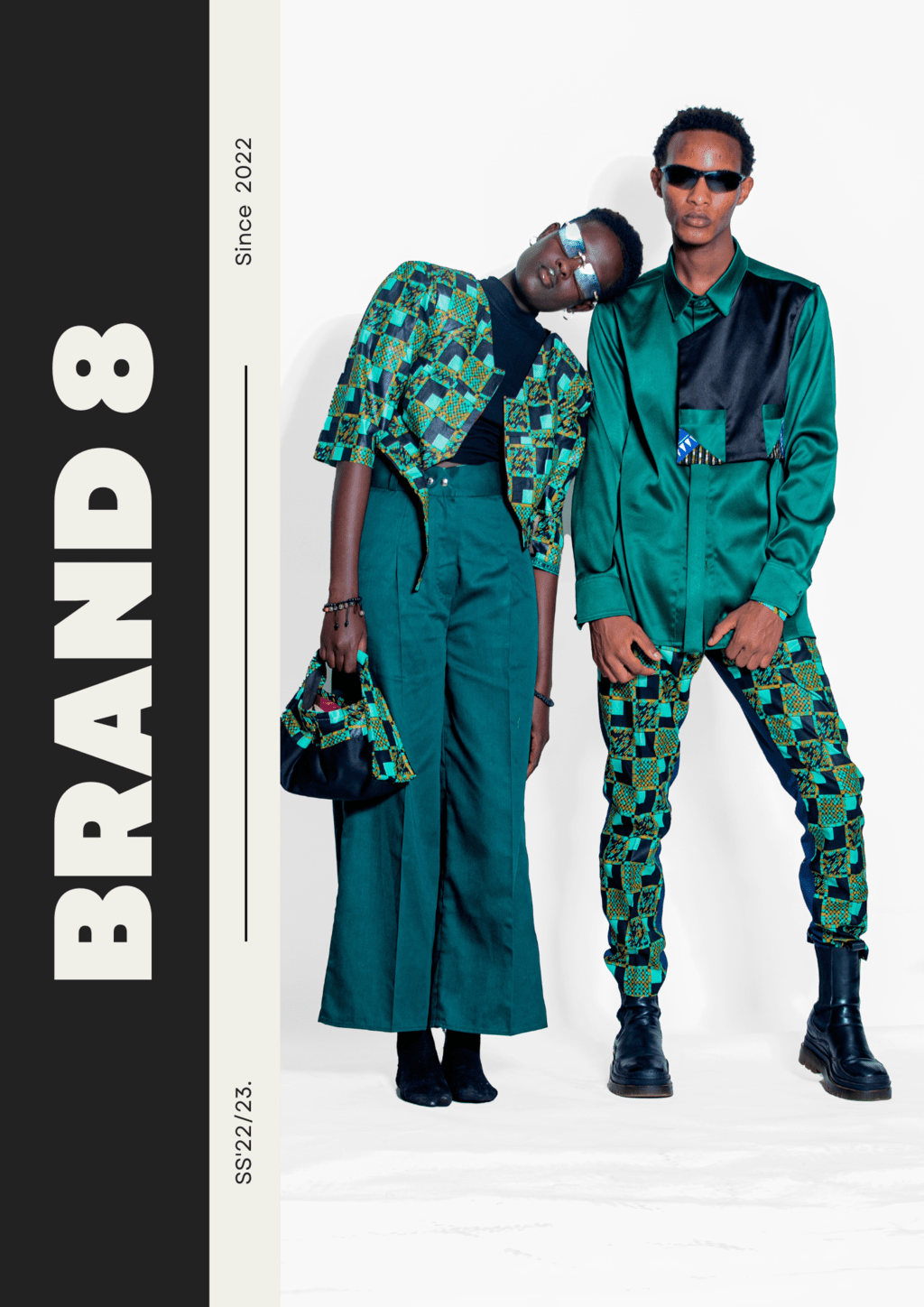 PHOTO: Designed by BRAND 08
PHOTO: Designed by BRAND 08
Journalist:
- Back to your upcoming event in October, do you have sponsors and partners? How many designers will be showcasing in that show? Each fashion designer for how many pieces?
"Our fashion show "NFE show" has few sponsors so far I think because it's our first edition but after people see the potential in us they will definitely support the next edition. Five Fashion designers will be showcasing in the event showing at least 10-20 looks/pieces." Said Mugisha the Spokesperson of the NFE
Journalist:
- How do you see the fashion industry In Rwanda in general?
"The Fashion industry in Rwanda is really thriving, everyone is trying to make something to see if all of us together can lift our Fashion industry to some great level with support from the government officials would really help in boosting it" Said Mugisha the Spokesperson of the NFE
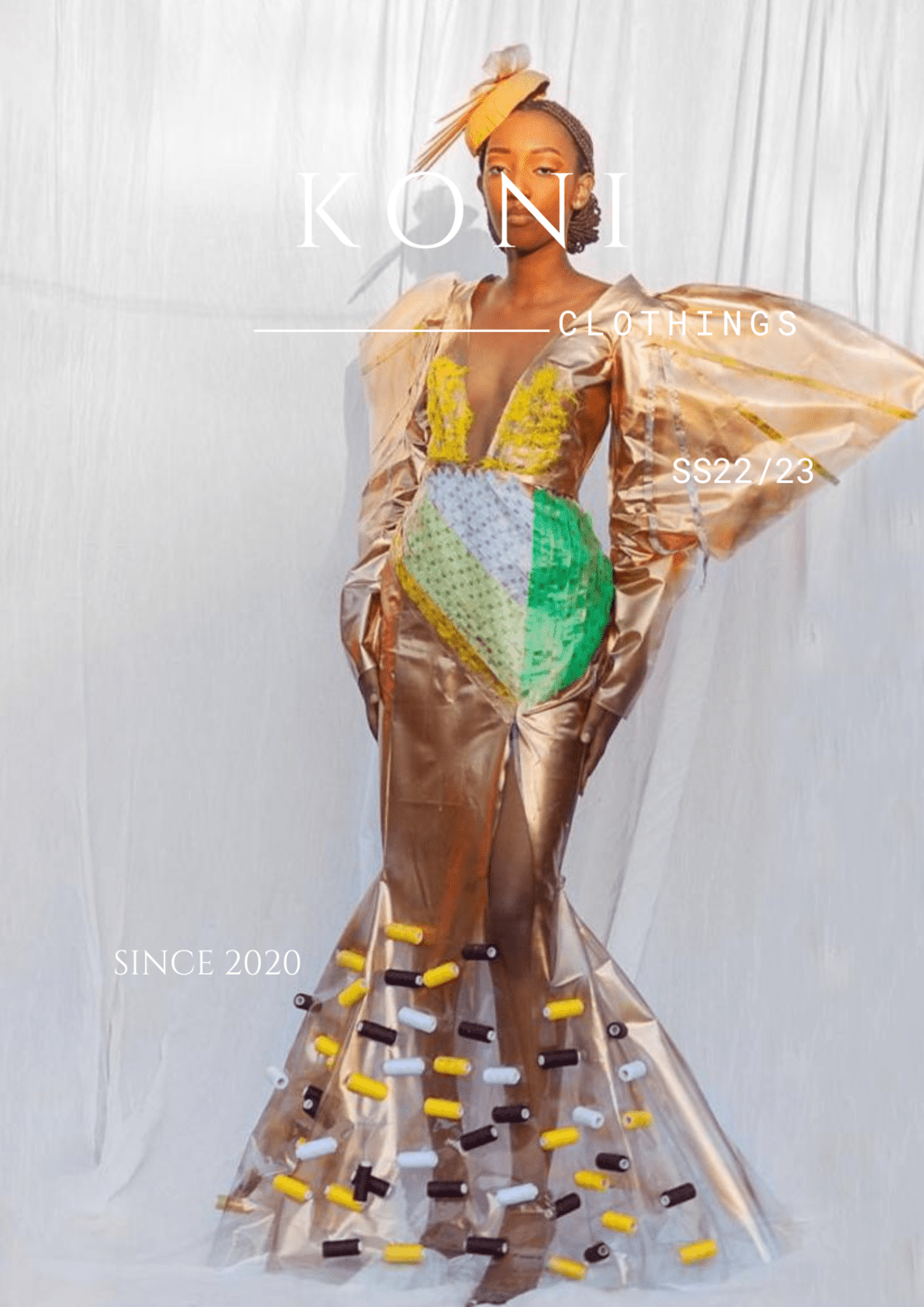 PHOTO: Designed by KONI Clothings
PHOTO: Designed by KONI Clothings
Mugisha promised that his team is ready to provide a good and unique show and has asked fashion lovers to come and support them.
"We would like to invite everyone for this fashion event it will be a great night to experience culture, beauty, and creativity. And with your support, we believe we can make a change and make a step," added Mugisha the Spokesperson of the NFE
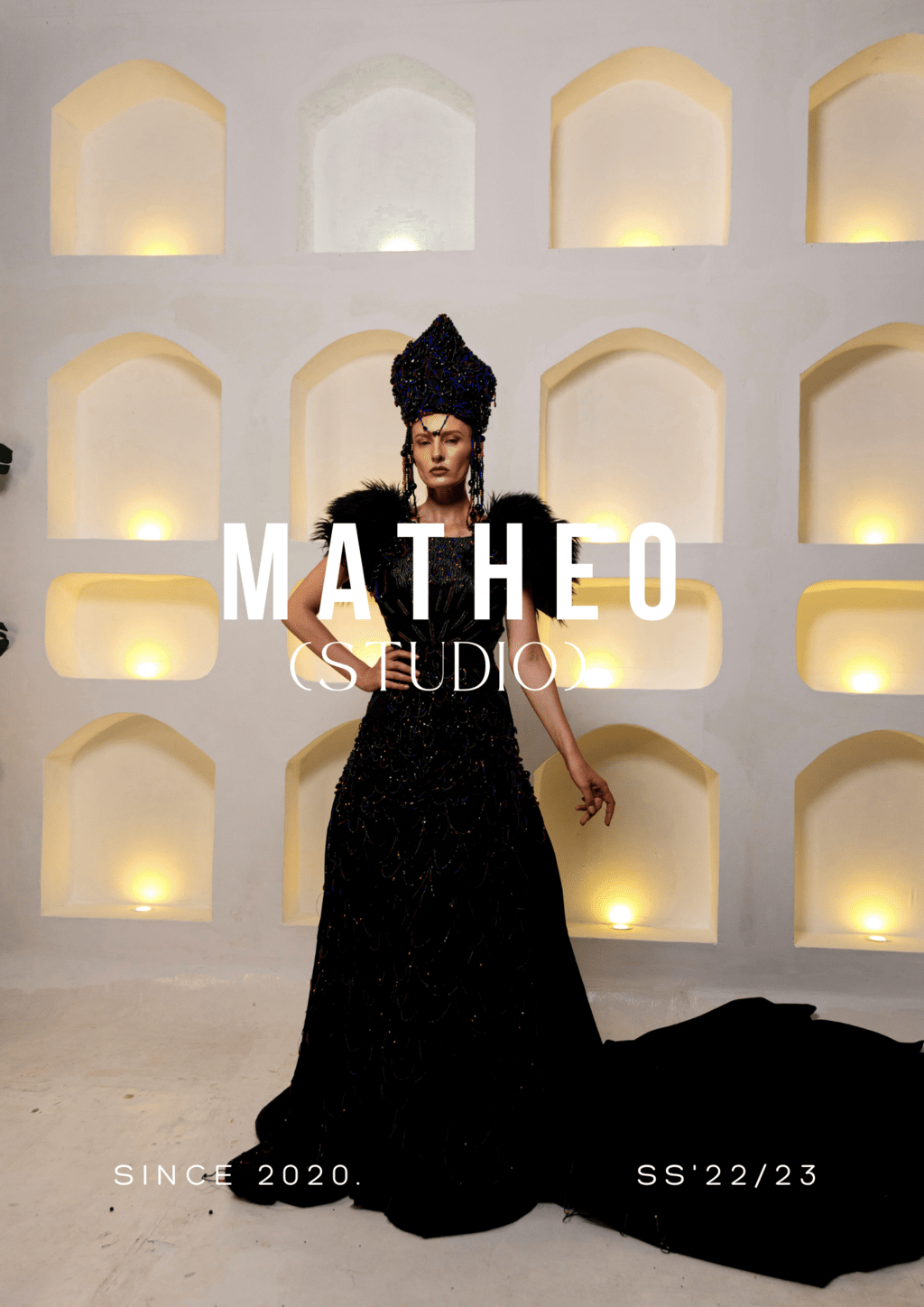 PHOTO: Designed by Metheo
PHOTO: Designed by Metheo
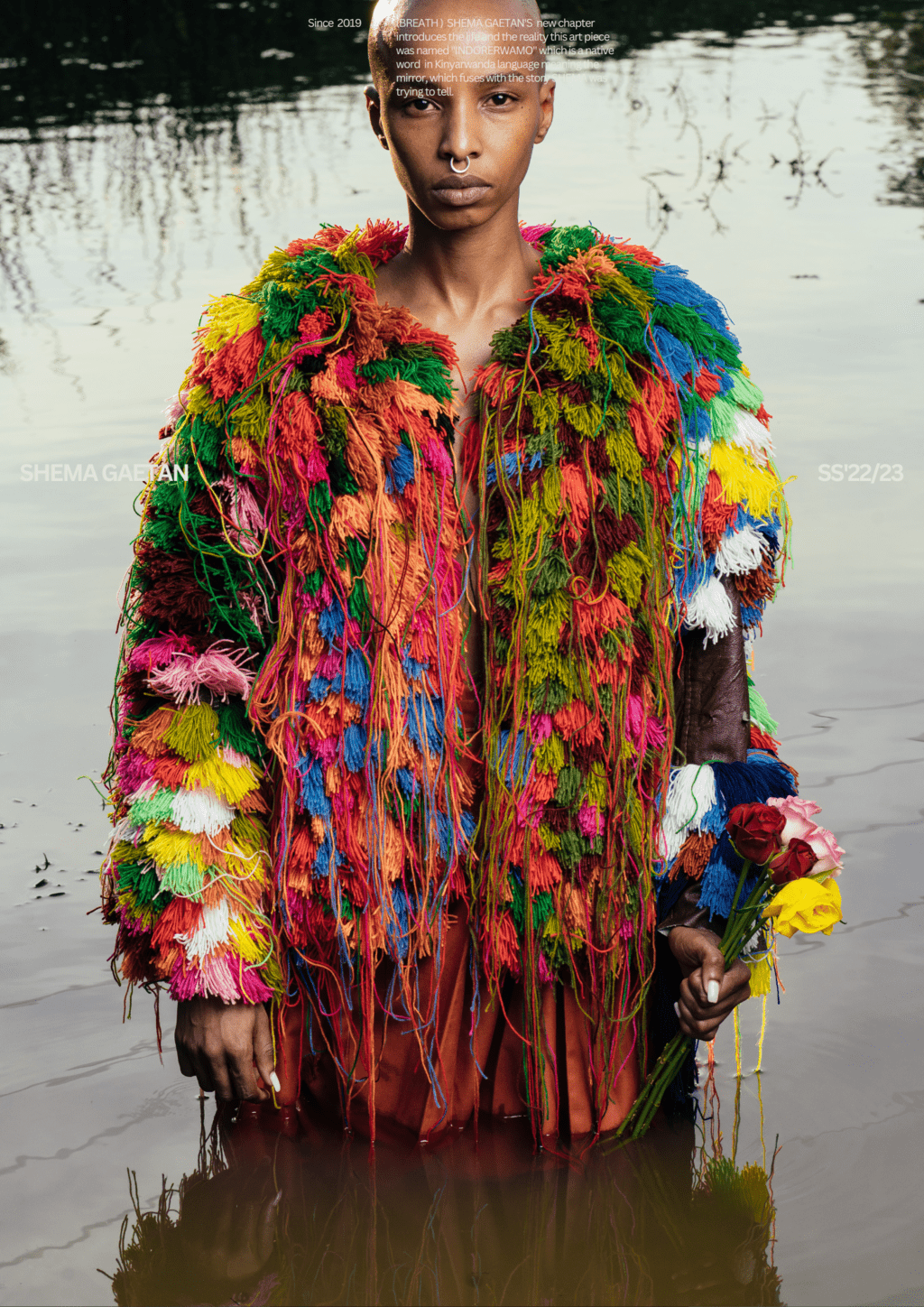 PHOTO: Designed by Shema Gaeta
PHOTO: Designed by Shema Gaeta
LATEST NEWS
Rwandan Cesta Collective handbag brand Receives Investment from Meghan Markle
04 September 2024 3957 hitsRwandan Cesta Collective handbag brand Receives Investment from Meghan Markle Cesta baskets are handwoven of locally sourced, renewable resources, by…
Moshions in Italy: A Journey of Self-Discovery
28 August 2024 4070 hitsMoshions in Italy: A Journey of Self-Discovery The INZOZI FASHION EXPERIENCE 2024, organized by Moshions, promises to be a landmark…
Who Will Win for the Miss, Mrs., and Mr. Heritage International Kenya 2024?
27 August 2024 4847 hitsWho Will Win for the Miss, Mrs., and Mr. Heritage International Kenya 2024? Two weeks ago was a busy period…
La Femme Fashion Show 2024: 4th Edition Takes Center Stage in Kinshasa
25 August 2024 4062 hitsLa Femme Fashion Show 2024: 4th Edition Takes Center Stage in Kinshasa The vibrant city of Kinshasa is set to…
Where Fashion Meets Opportunity: The ASFW 2024 Updates in Addis Ababa
24 August 2024 4095 hitsWhere Fashion Meets Opportunity: The ASFW 2024 Updates in Addis Ababa As the Africa Sourcing and Fashion Week (ASFW) 2024…
All Set for the Novelty Fashion Week 2024, 6th September
24 August 2024 4095 hitsAll Set for the Novelty Fashion Week 2024, 6th September The vibrant city of Kigali is buzzing with anticipation as…
FASHION SHOPS
